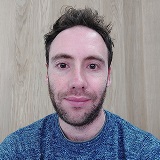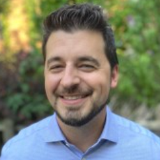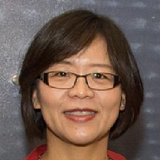講演者
Filter by:
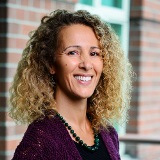
Yasmina Abdiche, PhD, Senior Vice President, Exploratory Research, OmniAb Inc.

Yasmina is an internationally recognized and innovative scientific leader in the field of antibody discovery and biosensor technology with twenty years of experience in protein engineering and biopharma. She has authored over 50 peer-reviewed publications, had 25 patents granted in the therapeutic antibody space including a market-approved drug for migraine (Ajovy) and a Phase 3 investigational drug for bladder cancer (Sasanlimab), presented over 60 times as an invited speaker globally, and has been involved in numerous industry-wide collaborations and scientific advisory groups. After a twelve-year career at Pfizer where she held positions of increasing responsibility from Principal Scientist to Research Fellow, more recently, Yasmina has held senior management roles at biotechnology companies and contract research organizations including Carterra (CSO), ImmunoPrecise Antibodies (CSO), ALX Oncology (VP Protein Science), Revelar (CSO and Co-Founder), and FairJourney Biologics (CTO). During her time as CSO at Carterra, she co-founded its antibody screening biosensor platform (the LSA) which has helped transform label-free interaction analysis in early-stage drug discovery. Yasmina has a master's degree in chemistry and a PhD in biological chemistry from Oxford University and did post-doctoral studies in biophysical interaction analysis at the University of Utah.

Julyana Acevedo, PhD, Scientist II, Analytical Development, Sangamo Therapeutics, Inc.

Julyana Acevedo is a scientist in the analytical development department at Sangamo Therapeutics, a genomics medicine company. At Sangamo, she has established and developed potency and purity assays to ensure strength and safety of AAV-based gene therapies. For this work, she has utilized methods such as bioassays, ELISAs, ddPCR and CE-Western among others to characterize AAV drug products for several programs. Julyana obtained her PhD in molecular biology from the University of Southern California. She has been involved in analytical development for biologics since 2020, with broad experience in early/ late phase analytical development and CMC.
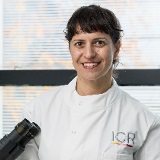
Chloé Ackaert, PhD, Senior Scientist, Immunogenicity, IQVIA Laboratories

Chloé Ackaert is a pharmacist by training (Catholic University of Leuven 2009) and obtained her PhD at the University of Salzburg (Austria) for the research on the impact of nitration on the immunogenicity of birch pollen allergens in 2013. She first joined ImmunXperts in the start-up phase and continued academic research at the Free University of Brussels (2015-2018) working on the immunogenicity of Nanobodies. Afterwards, she joined ImmunXperts again where she is a senior scientist in the immunogenicity team, collaborating both on the client-based projects as well as on the continuous basic research projects to elucidate immunogenicity-related questions.

Rahmad Akbar, PhD, Senior Data Scientist, Antibody Design, Novo Nordisk

At Novo Nordisk, Rahmad enables patients to realize their greatest potential by catalysing antibody design. He leverages experimental data, molecular simulation, and artificial intelligence to build computational oracles and to design antibody therapeutics faster, smarter, and cheaper.

Padma Akkapeddi, PhD, Scientist, Antibody Discovery & Protein Engineering, Denali Therapeutics, Inc.


Tero-Pekka Alastalo, CEO, Avenue Biosciences Inc

An experienced life science entrepreneur based in San Francisco, CA, USA. Tero-Pekka Alastalo (MD, PhD) is the CEO of Avenue Biosciences with 12+ years’ experience in life science startups and +10 years of clinical and translational research experience. His previous roles include heading North American operations at CardioSignal and co-founding Blueprint Genetics, which was acquired in 2020.

Richard Altman, MS, Field Application Scientist, Life Science Solutions, Thermo Fisher Scientific

Rich Altman has 30 years of experience in protein expression and production. In early 2019, he joined Thermo Fisher Scientific as a Field Application Scientist. Previously, he worked for several pharmaceutical companies, including Amgen, Alexion, Bayer, and Upjohn, on the cloning, expression, purification and characterization of recombinant proteins. This work supported both small-molecule high-throughput screening and protein therapeutic efforts. He received his MS degree from the University of Pittsburgh School of Medicine in the Department of Molecular Biology and Biochemistry.

Jan Terje Andersen, PhD, Professor, Department of Pharmacology, University of Oslo; Research Group Leader, Department of Immunology, Oslo University Hospital

Jan Terje Andersen is a professor in biomedical innovation at University of Oslo, and a research group leader at Oslo University Hospital. He is heading the Laboratory of Adaptive Immunity and Homeostasis, which is a member of PRIMA - a Center of Excellence in Precision Immunotherapy funded by the Research Council of Norway. His laboratory is studying the cellular processes and molecular interplay underlying the functions of the two most abundant proteins in blood, albumin and IgG. By combining structural and biophysical approaches with cellular and in vivo studies, the in-depth knowledge is used in design of novel molecules with improved functions. The laboratory is extensively collaborating with biotech and pharmaceutical companies. Andersen has obtained the Fridtjof Nansen Prize for Early Career Achievements and is an alumni member of the Young Academy of Norway. He is also a co-founder of Authera AS.
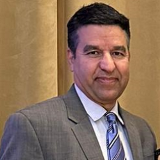
Mehdi Arbabi Ghahroudi, PhD, Senior Research Officer, Immunobiology & Human Health Therapeutics, National Research Council Canada

As a former member of camelid heavy chain only discovery team in Belgium and a leading scientist in the field of Camelidae single-domain antibodies (sdAbs), Dr. Arbabi have significantly contributed towards the development of Camelid single-domain antibody technology and establishment of proof-of-principle of VHH/sdAbs/Nanobody as novel antigen-binding reagents for the first time. These antibody domains are now the leading class of therapeutic molecules to treat cancer and infectious diseases. Dr. Arbabi have been involved in a dozen research projects aiming at the development of therapeutic molecules against cancer and infectious disease, most importantly the development of anti-Campylobacter nanobodies for the treatment of diarrheal illness which is in phase II clinical trial by Lumen Bioscience. Dr. Arbabi has also been co-leading another research project to develop anti-CD22 CAR-T cells using nanobodies and this project have received more than $1.5 M CAD funding and its preclinical phase is now approval by Health Canada. He has also been part of the recently awarded Multiple Myeloma and OICR grants (over $1M) to NRC, Ottawa U and OHRI. His scientific investigations have so far resulted in 16 patents and 50 peer-reviewed scientific articles and book chapters. Dr. Arbabi was awarded an NRC-IBS industrial partnership award in 2011 for my contributions to human sdAb technology development which led to collaborative work with Novartis, an NRC Outstanding Achievement Award in 2016 for the IGF1R BBB-crossing antibody work and an NRC intellectual property award for the development of anti-CD22 CAR-T cell in 2020.
.tmb-0.jpg)
Marina Bacac, PhD, Head, Cancer Immunotherapy, Roche Innovation Center, Zurich
.tmb-0.jpg)
Marina leads one of the Cancer Immunotherapy Departments at Roche Innovation Center Zurich and oversees the Discovery Reverse Translation activities. Within such roles, Marina leads interdisciplinary pre-clinical and translational science teams focused on the development of next-generation cancer immunotherapy drugs and Reverse Translation efforts leveraging learnings from the clinics and deepening understanding of therapy’s activity and resistance.
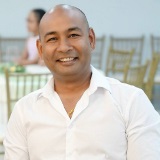
Hemanta Baruah, PhD, Founder & CEO, Aakha Biologics

Dr. Hemanta Baruah founded Aakha Biologics in 2021 and is currently the president and CEO of the company. Aakha Biologics is an immuno-oncology company that is engaged in developing novel bispecific antibodies for potential treatment of multiple solid tumor indications.
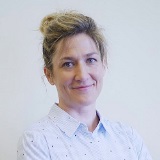
Marie-Eve Beaulieu, PhD, Co-Founder & CSO, Drug Development, Peptomyc SL

Dr. Beaulieu is the co-founder and CSO at Peptomyc, a biotech company developing mini-protein therapeutics for cancer treatment. PhD in Pharmacology with a focus on structural biology of proteins, Marie-Eve has led the preclinical pharmaceutical development of OMO-103, the first direct MYC inhibitor to successfully complete a clinical trial showing safety and clinical activity in human patients. Together with the co-founder Dr. Laura Soucek, Marie-Eve designed the company strategy, built the team and fundraised public >11MEur and private ~30MEur capital. She is now in charge of the company's pipeline development and biomarker programs. Marie-Eve has co-authored 8 patent applications, 30 peer-reviewed publications, and 4 book chapters (ORCID 0000-0001-5224-8436). She was awarded several competitive fellowships (e.g., CREFSIP scholarship, MITACS, and FRSQ postdoctoral awards) and contributed to the company’s scientific and business excellence as testified by several local and international awards (e.g., BioFit, best company initiative at AJIEC, EIT Health Headstart, J&J StartUpSlam at BioEurope, and the highly competitive H2020 SME Instrument and EIC Accelerator).
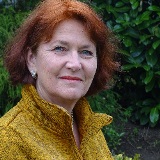
Karoline B. Bechtold-Peters, PhD, Director, Science & Technology, Drug Product Develoment Biologics, Novartis Pharma AG

Dr. Karoline Bechtold-Peters is pharmacist and received her doctorate from the Ludwigs-Maximilians-University of Munich in Pharmaceutical Technology in 1994 for a thesis in the field of enteric-coated pancreatin pellets. In 1994, Karoline started at Boehringer Ingelheim in Ingelheim as Head of Laboratory in Solid Dosage Forms, focusing on powder inhalation therapeutics. In this context, Karoline was instrumental in the development of the blockbuster Spiriva. In 2000, she moved to the Business Unit Biopharmaceuticals of Boehringer Ingelheim and thus to Biberach to build-up Formulation Development of Therapeutic Proteins. In 2003 she was appointed 2003 Head of Global Clinical Supplies, Aseptic Process Development and Process Transfer. After several years in this position, Karoline moved to Basel, Switzerland, in 2011, to join Hoffmann La-Roche and was assigned Head of Drug Product Clinical Supply Center Basel within Global Biologics Europe and was responsible for the production of biopharmaceutical clinical supplies both for Roche and Genentech. It became her core task to ramp up the brand new clinical lines for sterile vials and syringes covering initial inspections and initial batch production from 2011 to 2013. The expansion of the production to Antibody-Drug-Conjugates followed. In 2016, Karoline joined Novartis Pharma AG in Basel to focus on more strategic and future-looking issues of Biopharmaceuticals as Senior Strategy and Technology Leader Pharmaceutics within Biologics Technical Development & Manufacturing (BTDM) and the team “BioFuture”. Since the reorganization of the Biologics business, Karoline has been part of the Scientific Offices Drug Product Development within Global Biologics & Cell and Gene Therapy as Director Science & Technology, representing the focus on Innovation and External Engagement. Karoline is member of the board of directors of International Association for Pharmaceutical Technology (APV). Besides this she is active in several international organisations such as EBE/EFPIA, AAPS and PDA, and is frequently invited to contribute to conferences and papers or books.
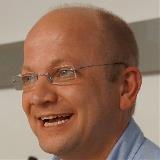
Imre Berger, PhD, Professor of Chemistry and Biochemistry, Max Planck Centre Director, University of Bristol

Imre Berger was trained at Leibniz University Hannover (Germany), MIT (USA) and ETH Zurich (Switzerland), Imre held faculty positions at ETH and EMBL before joining University of Bristol, UK in 2014. AT Bristol, he is Professor and Chair in Biochemistry and Chemistry, Director of the Bristol synthetic biology research centre BrisSynBio and Co-Director of the Bristol biodesign institute BBI. Imre published more than 100 papers in leading journals, co-founded three biotech companies and won several distinctions including the Swiss Technology Award, the Swiss Venture Award (2nd prize), the DeVigier Foundation Award and a Wellcome Trust Senior Investigator Award for his innovative research. Since 2019, Imre Berger is Investigator of the European Research Council (ERC) and Founding Director of the Max Planck Bristol Centre for Minimal Biology.
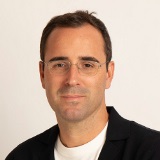
Gonçalo Bernardes, PhD, Professor, Chemistry, University of Cambridge

Gonçalo started his independent research career in 2013 at the University of Cambridge as a Royal Society University Research Fellow. In 2018, he was appointed University Lecturer and was promoted to Reader in 2019, and to Full Professor in 2022. Gonçalo is the recipient of three European Research Council grants; and was awarded the Harrison-Meldola Memorial Prize in 2016, from the Royal Society of Chemistry, the 2020 Young Chemical Biologist Award from the International Chemical Biology Society (ICBS), the Blavatnik Award for Young Scientist in the UK in 2021, and recently the EFMC-WuXi AppTec Award for Excellence in Chemical Biology. His research group interests focus on the use of chemistry principles to tackle challenging biological problems for understanding and fighting cancer, and he has co-founded a number companies that use technologies he developed in his lab. In addition, he is a Senior Fellow at the largest global venture incubator-Flagship Pioneering, which generated Moderna.
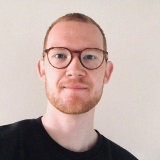
Lasse M. Blaabjerg, PhD, Scientist, Discovery Data Science, Genmab

Scientist at Genmab, Discovery Data Science. PhD from University of Copenhagen.
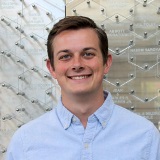
Connor Blankenship, PhD, Senior Scientist, Nabla Bio Inc

Connor is a senior scientist at Nabla Bio where he leads development of next generation antibody screening platforms to facilitate internal method development and partner projects. He focuses on scalable screening against multipass membrane proteins with mammalian cells. Connor graduated with a PhD in Pharmaceutical Science from the University of Wisconsin-Madison.
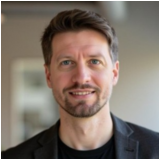
Nicola Bonzanni, CEO, ENPICOM

Dr. Nicola Bonzanni is the founder and CEO of ENPICOM, where he has spent the past nine years leading a multidisciplinary team of bioinformaticians, immunologists, machine learning scientists, and software engineers. A strong advocate for the transformative power of software and AI in pharma and biotech, he focuses on product strategies that challenge the status quo and address the practical needs of life scientists, making complex data and analyses more accessible, reproducible, and impactful.
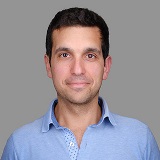
Alessio Bortoluzzi, PhD, Scientist, Merck Healthcare Satellite Lab, iBET Instituto de Biologia Experimental Tecnologica

I hold a PhD in Biochemistry from the University of Leicester, where I worked at the structural and functional characterization of a Mycobacterium tuberculosis protein. My postdoctoral research, at the University of Dundee, on characterizing and modulating interactions between epigenetic reader domains and their binding partners. I then worked as a Senior Scientist at Immunocore for nearly two years. Currently, I am a Senior Research Associate at iBET, where my main responsibility is overseeing HDX-MS experiments and operations
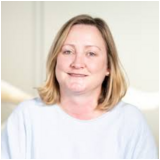
Louise Brackenbury, Science Director, Charles River Labs

Louise Brackenbury received her PhD in viral immunology from UCL, prior to post-doctoral fellowships at Southampton University (Cancer Research UK, Southampton Centre), Imperial College and Bristol University. Louise joined KWS BioTest in 2012, then Charles River in 2018 following acquisition, where she led an Immune Cell Biology Group as a Group Leader. In 2021 she moved to the role of Associate Director of Innovation at the site, with the remit to develop translationally relevant models and deliver cutting edge science to support drug discovery programs. In 2022 she became the site’s Science Director, supporting scientific excellence. With expertise in immunology and cell biology, she has led the development of a wide range of immunology-focused assays and disease models, spanning immuno-oncology, autoimmunity, the microbiome, and inflammation. Louise is also a Biologics subject matter expert, designing and leading integrated drug discovery programs.
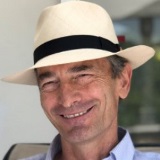
Andrew R.M. Bradbury, MD, PhD, CSO, Specifica, an IQVIA business

Andrew Bradbury is Chief Scientific Officer of Specifica. He trained in medicine at the universities of Oxford and London and received his PhD from the university of Cambridge at the MRC Laboratory of Molecular Biology under the guidance of Nobel Laureate, Cesar Milstein. He has worked in the fields of phage and yeast display, library generation, antibody engineering and Next Generation Sequencing for over thirty years. He was a Group Leader at Los Alamos National Laboratory before founding Specifica. Specifica's mission is to enable companies developing therapeutic antibodies with the world’s best antibody discovery platform.
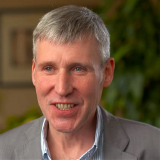
Christopher Bravery, PhD, Consulting Regulatory Scientist, Advanced Biologicals Ltd.

Christopher founded Consulting on Advanced Biologicals Ltd. at the end of 2009, in order to focus his activities within the Regenerative Medicine sector. Advbiols Ltd. provides EU regulatory services to the regenerative medicine industry in addition to business and regulatory research and analysis to identify and focus on the real barriers to commercialisation of regenerative medicine. Christopher has a PhD in xenotranplantation immunology and spent 8 years in biotech (Imutran Ltd., a Novartis Pharma AG Co., and Intercytex) before joining the MHRA as a quality (CMC) assessor (biologicals and biotechnology unit). During this time, Christopher was involved with national implementation of the new Advanced Therapies Regulation and also involved through his participation in the CHMP’s cell products working party (CPWP) in implementation at the EMA level including drafting guidelines.
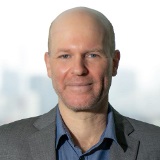
Martin B. Brenner, PhD, CEO & CSO, iBio Inc.

Dr. Brenner has a strong history of success heading drug discovery and development teams at several of the world’s leading pharmaceutical companies, including Eli Lilly, Pfizer, AstraZeneca and Merck. Most recently, Dr. Brenner served as the CSO at Pfenex Inc. Previously, Dr. Brenner served as the CSO at Recursion Pharmaceuticals. Prior to his time at Recursion, he was Vice President and Head of Research & Early Development at Stoke Therapeutics.
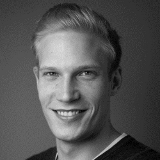
Maximilian Brinkhaus, PhD, Senior Scientist II, Discovery, argenx BVBA

Before joining the company in early 2022, I completed my PhD research in close collaboration with argenx in the lab of Gestur Vidarsson in Amsterdam. My research focused on the impact of IgG Fc and format engineering on Fc receptor interactions and the downstream effects on IgG cellular trafficking. Following my PhD, I took on a role as a translational clinical scientist, where I led research efforts supporting the clinical development of argenx’s FcRn inhibitor, efgartigimod. Since early 2024, I am group lead in R&D.
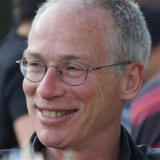
Ulrich Brinkmann, PhD, Expert Scientist, Pharma Research & Early Development, Roche Innovation Center, Munich

Dr. Ulrich Brinkmann is a member of Roche’s Large Molecule Research organization within Pharma Research & Early Development at the Roche Innovation Center Munich (Penzberg, Germany). His work focuses on protein & antibody engineering, bispecifics, and on delivery platforms for targeted payload delivery. Prior to joining Roche, he served as CSO in functional genomics and pharmacogenetics companies Xantos and Epidauros. His previous work in Ira Pastans Molecular Biology Lab at the NIH/NCI in Bethesda, USA focused on antibody stabilization and engineering technologies, and on generating recombinant immunotoxins for cancer therapy. Dr. Brinkmann is author of numerous publications and inventor of many patents covering recombinant antibodies, pharmaco- & functional genomics, immunotoxins and protein engineering technologies and applications.

Catarina Brito, PhD, Principal Investigator, Head, Advanced Cell Models Lab Animal Cell Technology Unit, iBET

I have led the Advanced Cell Models Lab of ITQB NOVA and iBET since 2014 and have been a principal investigator at ITQB since 2023. My research is primarily preclinical and translational, focusing on the microenvironment-driven modulation during targeted therapy response. My group pioneered cell-based strategies to address challenges in cancer immunotherapies and viral vector-based gene therapies. Our research centers on two main research lines: 1) Macrophage-tumor cell crosstalk within the tumor microenvironment in immunosuppression and resistance to immunomodulatory therapies; 2) Neuron-glia crosstalk in neuroinflammation and innate immune response to viral vector-based gene therapies. As a group leader, I have coordinated 18 research projects, securing competitive funding from FCT, the EC, EFPIA, and the pharmaceutical industry. With over 85 papers (27 as senior author), I have supervised/co-supervised 17 PhD students (14 concluded). I hold an MSc in Biochemistry from the University of Lisbon (2001) and a PhD in Biochemistry & Cell Biology from NOVA University of Lisbon, in collaboration with Institut Jacques Monod in Paris (2007). I did a postdoc in stem cell bioengineering at iBET (Portugal), after which I became a project manager, bridging my cell biology and cellular biotechnology expertise to develop cell-based assays for the pharmaceutical industry. www.itqb.unl.pt/research/technology/advanced-cell-models/ https://www.ibet.pt/laboratories/advanced-cell-models-lab/
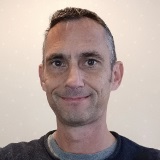
David J. Brockwell, PhD, Professor, School of Molecular and Cellular Biology, University of Leeds

Professor Brockwell is an academic in the School of Molecular and Cellular Biology and a member of the Astbury Centre at the University of Leeds in the UK. He undertook his undergraduate studies (Pharmacy) and PhD at the University of Manchester, before joining Leeds first as post-doctoral researcher and then as a Faculty member. Current research focusses on understanding the effects of force on protein structure and function and the aggregation of therapeutic and disease-causing proteins.
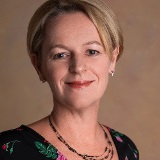
Nicola Burgess-Brown, PhD, Professorial Research Fellow, UCL, London; COO, Protein Sciences, Structural Genomics Consortium

Nicola obtained a First Class degree in Applied Biochemical Sciences from the University of Ulster in 1997, then worked as a molecular biologist for SmithKline Beecham. She received her Ph.D. in Molecular Microbiology at the University of Nottingham in 2001 and moved back to industry to work on high-throughput cloning and validation of therapeutic cancer antigens for Oxford Glycosciences and subsequently Celltech R&D. Nicola then worked at the University of Oxford for 17 years, building and leading the Biotechnology Group at the Structural Genomics Consortium (SGC) and more recently, as an Associate Professor, and Head of the Protein Production Small Research Facility (SRF) in the Centre for Medicines Discovery (CMD). From September 2021, she led the Enzymology and Protein Engineering Team at Exact Sciences Innovation in Oxford, producing proteins for cancer diagnostic research. Since January 2024, she rejoined the SGC, working as a consultant (Chief Operating Officer, Protein Sciences) coordinating protein production across the 6 SGC sites and recently started as a Professorial Research Fellow in Protein Sciences at UCL in London.

Jordan W. Bye, PhD, Principal Formulation Development Scientist I, CMC, Immunocore Ltd.

Jordan Bye earned his undergraduate degree in Biochemistry from the University of East Anglia and completed his PhD at the University of Sheffield in 2014 under the supervision of Dr. Robert Falconer. Following his PhD, Jordan held post-doctoral positions at the University of Sheffield and in Dr. Robin Curtis’ group at The University of Manchester. Jordan joined Immunocore in 2021 and is currently a senior formulation development scientist II. To-date his research has focused on studying the mechanisms by which excipients modulate protein physical and colloidal stability through use of light scattering, calorimetric, and spectroscopic techniques to develop formulations for novel bi-specific biotherapeutics.
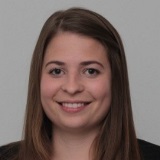
Anna Camus, PhD, Senior Scientist, Protein Engineering, Cimeio Therapeutics AG

Anna Camus serves as a Senior Scientist in Protein Engineering and Bioconjugation at both, Cimeio Therapeutics and Ridgeline Discovery in Basel, Switzerland. In this role, she is responsible for the design, generation and optimization of antibody and antibody-drug conjugates. She is leading protein engineering and bioconjugation projects from research to preclinical development. Prior to joining Cimeio Therapeutics, she completed her doctoral research at ETH in Prof. Donald Hilvert’s lab, where she focused on protein engineering of large enzyme complexes.
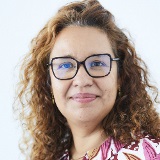
Carla Cano, PhD, Research Director, Lead Discovery, ImCheck Therapeutics SAS

Carla Cano is the Lead Discovery Director at ImCheck Therapeutics, a clinical-stage biotech pioneering innovative therapies that harness butyrophilins and ?dT cells to combat cancer and infectious diseases. In this role, she leads the Concept Design Team, driving innovative approaches that advance ImCheck's early-stage pipeline. With a robust background in immunology, Carla has contributed significantly to research in oncology, cellular stress, and HIV/Hepatitis. She earned her PhD in Immunology from Aix-Marseille University at the Centre d’Immunologie de Marseille-Luminy (CIML), followed by a Postdoctoral Fellowship and a Confirmed Young Scientist Fellowship at the Cancer Research Center of Marseille (CRCM).

Lydia Caro, PhD, Associate Director, Cell Sciences, Ichnos Sciences Biotherapeutics SA

No bio available.
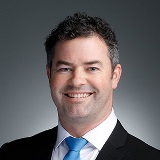
Etienne Caron, PhD, Assistant Professor, Immunobiology, Yale School of Medicine

Dr. Caron is a Canadian scientist with a background in Biotechnology and Systems Immunology. He received his PhD from the University of Montreal in Canada under the guidance of Dr. Claude Perreault and completed his education at ETH-Zürich in Switzerland under the guidance of Dr. Ruedi Aebersold. Dr. Caron is known for his international leadership and expertise in immunopeptidomics for the global analysis of MHC-associated peptides using mass spectrometry technologies. His scientific program has the potential to revolutionize the research on vaccine design, cancer immunotherapy, infectious and autoimmune diseases, including treatment of neurodegenerative diseases and aging. Dr. Caron began his career as a Principal Investigator in 2018 at the University of Montreal, Canada. In 2023, Dr. Caron was recruited by the Yale Center for Immuno-Oncology (YCIO) and the Department of Immunobiology. He is also currently a member of the Yale Center for Infection and Immunity (CII), and the Yale Center for Systems and Engineering Immunology (CSEI). Dr. Caron initiated the Human Immunopeptidome Project and was Chair from 2015 to 2020. He was the first to identify tumor-specific mutated peptides, known as neoantigens, using mass spectrometry and to develop data-independent acquisition mass spectrometry for the analysis of immunopeptidomes. He also initiated the SysteMHC Atlas Project as the first public data repository toward a community-driven global mapping of the human immunopeptidome. Dr. Caron has co-founded the start-up Neomabs Biotechnologies Inc., with the goal of transforming the treatment of childhood leukemia through targeted immunotherapies. He has also provided distinctive services to the life sciences industry through numerous collaborations with companies such as Biognosys, Flagship Pioneering, and Bruker Daltonics

Paul J. Carter, PhD, Genentech Fellow, Antibody Engineering, Genentech

Dr. Carter received a B.A. in Natural Sciences from Cambridge University and his Ph.D. in Molecular Biology under Sir Greg Winter at the MRC Laboratory of Molecular Biology in Cambridge. He then completed a postdoctoral fellowship with Dr. Jim Wells at Genentech, now a member of the Roche Group. Dr. Carter has nearly forty years of experience in biotechnology, focusing on the discovery of antibody therapeutics. He played a key role in the creation of antibody humanization methods at Genentech utilized over many years for nine approved antibody products used to treat millions of patients worldwide. Dr. Carter and collaborators invented ‘knobs-into-holes’ technology and common light chains between them used in at least six approved bispecific antibodies. He is currently a Genentech Fellow in the Department of Antibody Engineering.
- Engineering Antibody-Drug Conjugates
- Machine Learning for Protein Engineering Part 1
- Safety and Efficacy of Bispecific Antibodies, ADCs, and Combination Therapies
- Innovative CAR Therapy
- Emerging Targets for Oncology & Beyond
- Advancing Multispecific Antibodies and Combination Therapy to the Clinic
- Analytical Characterisation of Biotherapeutics
- Optimising Expression Platforms
- Engineering Antibodies & Beyond
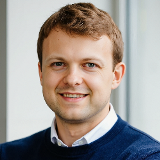
Jonathan Chamberlain, PhD, Senior Manager, Research, Protein Science Pipeline, Immunocore Ltd.

Jon joined Immunocore in 2017 following a PhD focused on biophysical characterisation of DNA-binding proteins. He currently leads a team of scientists within the Drug Discovery Protein Science department, who’s focus is engineering novel peptide-HLA engaging bispecific drug candidates for oncology and infectious disease programmes.
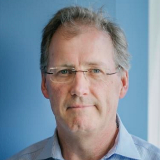
Ross Chambers, PhD, Vice President, Antibody Discovery, Integral Molecular, Inc.

Ross Chambers is the Vice President of Antibody Discovery at Integral Molecular. He pioneered the use of DNA immunization for antibody production and developed Integral Molecular’s MPS system for isolating antibodies. Dr. Chambers earned his PhD from the University of Otago, New Zealand, and did post-doctoral studies at UC Davis and Berkeley. Before joining Integral Molecular, he was the Director of R&D at SDIX and directed the discovery of thousands of commercial antibodies.
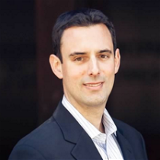
Javier Chaparro-Riggers, PhD, Executive Director, BioMedicine Design, Pfizer Inc.

Javier joined Pfizer in 2007, and is leading the BioTherapeutic Discovery department within Biomedicine Design. He is responsible for leading biotherapeutic discovery work, including lead generation and optimization, biophysical characterization, and non-GLP biotherapeutic production. During his tenure at Pfizer he worked on conventional/bispecific/trispecific antibodies, antibody-cytokine fusions, antibody drug conjugates, CAR T cells, oncolytic viruses, and mRNA therapies. Javier is interested in understanding the underlying biology of drug design and delivery and engineering solutions for challenges associated with developing the next generation of biotherapeutics.

Simon Chell, PhD, VP, Biologics Engineering, AstraZeneca

I am a leader in drug discovery, with a background in large and small molecule medicine creation. I particularly enjoy global cross-functional team leadership, and have extensive experience in innovative collaboration models, international department management and delivering major public-private alliances in life sciences research. I have led the creation of clinically impactful therapies across all major disease areas, and have a particular passion for exploring how novel data, automation and machine learning techniques can enhance biologics drug discovery and design. I obtained my PhD at Bristol University studying the function of prostaglandins in colorectal tumorigenesis. Subsequent research into fundamental tumour biology at the Babraham Institute (Cambridge, UK) and the Friedrich Miescher Institute (Basel, Switzerland) led me to joining GSK in 2007 where I led biologics drug discovery teams in roles of increasing scientific responsibility - the most recent being Senior Scientific Director for GSK’s clinical research activities in sub-Saharan Africa. I joined AstraZeneca in 2018 to lead UK & US Discovery Biology; responsible for the delivery of therapeutic programs, technological innovations and new drug formats through a multidisciplinary department incorporating cell, molecular, biochemical and protein sciences. I am currently Vice President of Biologics Engineering at AstraZeneca, where I lead an international team responsible for the discovery and early development of AstraZeneca's biologics medicines - across a portfolio including multiple drug formats (such as antibodies, multi-specifics, drug conjugates, antibody fragments, peptides and cell therapies) and multiple disease areas. My current focus is on embedding novel data, automation and machine learning-enabled capabilities within our established discovery workflows. I am a Fellow of the Royal Society of Biology, an advisory board member of Apollo Therapeutics and a General Counsel member of the European Laboratory Research Innovation Group (ELRIG).

Daniel Chen, MD, PhD, Founder & CEO, Synthetic Design Lab

Daniel S. Chen, MD, PhD, is the founder of Engenuity Life Sciences and founder and CEO of Synthetic Design Lab, former Vice President, Global Head of Cancer Immunotherapy Development at Genentech/Roche and former Chief Medical Officer for IGM Biosciences. He received a BS degree in Biology from the Massachusetts Institute of Technology (1990), a PhD in Microbiology & Immunology (1996) and MD (1998) from the University of Southern California. His PhD work and publications focused on “Early Events in Coronavirus Infection.” Daniel completed an Internal Medicine Residency and Medical Oncology Fellowship at Stanford University (2003). He went on to complete a Post-doctoral fellowship with Mark Davis in Immunology, where he was a Howard Hughes Medical Institute Associate. He also ran the metastatic melanoma clinic at the Stanford Cancer Center from 2003-2006. In that time, he studied human anti-cancer immune responses pre- and post- cancer vaccination and cytokine administration to determine why anti-tumor immune responses were not more clinically effective. He received a U19 grant to develop better immunologic tools to interrogate human immune responses and ultimately patented the MHC cellular microarray to detect and functionally characterize antigen-specific T cell states. He continued as Adjunct Clinical Faculty at Stanford from 2006-2016, where he cared for melanoma patients. At Genentech from 2006-2018, Daniel focused on the clinical development of anti-angiogenic, antibody drug conjugates and immune modulatory targeted therapies in both early and late Development, as well as the diagnostic tools to aid their development. This included leading the clinical development for atezolizumab, a PD-L1 inhibitor, from the time the program was in research through IND, Phase I, Phase II, Phase III, to filing and approvals in multiple indications worldwide. At IGM Biosciences, Daniel focused on the development of novel engineered multivalent therapeutics and helped lead this from pre-clinical to having multiple therapeutics in the clinic in Phase I/II. He is a reviewer for Nature, Immunity, Journal for Immunotherapy of Cancer and Clinical Cancer Research, served on the Board of Directors for SITC, has been a recurring session organizer and session chair for PEGS Europe on engineered therapeutics since 2019, gave the keynote presentation at the AACR NCI EORTC Annual Meeting 2014 and presented at the US Congressional Briefing on Immuno Oncology in 2017. He has continued to publish with academic and industry collaborators in the field of cancer immunotherapy, including the often-referenced Chen and Mellman manuscripts, “Oncology meets Immunology: the Cancer-Immunity Cycle,” “Elements of cancer immunity and the cancer-immune set point” and the Hegde and Chen manuscript “Top 10 Challenges in Cancer Immunotherapy.”
- Engineering Antibody-Drug Conjugates
- Machine Learning for Protein Engineering Part 1
- Innovative CAR Therapy
- Emerging Targets for Oncology & Beyond
- Advancing Multispecific Antibodies and Combination Therapy to the Clinic
- Analytical Characterisation of Biotherapeutics
- Optimising Expression Platforms
- Engineering Antibodies & Beyond
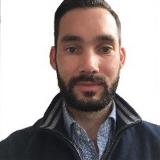
Mathieu Cinier, PhD, CSO, Affilogic

Affilogic is a privately-owned biotech company specialized in discovery and development of a novel class of protein therapeutics called Nanofitins. Since joining Affilogic in 2011, Dr. Mathieu Cinier successfully led 60+ Nanofitin generation programs for a wide range of applications, and Nanofitin-based biotherapeutics are currently being developed in collaboration with Sanofi, Takeda Pharmaceutical and other undisclosed international pharmaceutical companies. He also applied its extensive protein engineering knowledge to expand the potential of the Nanofitin technology and is now assuming the position of Scientific Director.
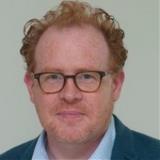
Mark Cobbold, PhD, Vice President, Oncology Early Discovery, AstraZeneca Pharmaceuticals

Mark Cobbold, MD, PhD, is Vice President of Discovery in Oncology at AstraZeneca. Mark leads a team responsible for efforts spanning basic immunology through to early-phase drug development in immuno-oncology, immune engagers and cell therapy. He is passionate about driving innovation at AstraZeneca and building synthetic immunity using either cellular engineering or biotherapeutics. In 2019, AstraZeneca welcomed Mark from Massachusetts General Hospital, where he served as an associate professor of medicine at Harvard Medical School, with an interest in cancer immunotherapy. Prior to joining MGH in 2015 he trained as a physician scientist in clinical immunology and tumor immunology. Over the years Mark has cofounded a number of companies including SeraScience, PhosImmune, Revitope Oncology, Gritstone Oncology, GigaMune, and C-Reveal Therapeutics.
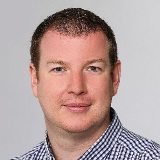
David Cole, Head of Research, Accession Therapeutics Inc.; Honorary Professor, Cardiff University

Dave is an expert in immuno-oncology and is currently Head of Research (executive team member) at Accession Therapeutics, a clinical stage Biotech developing disrupting precision medicine approaches for solid tumors. During his industrial career, Dave has focused on leading research for the discovery and validation of novel drug candidates, plus the development of collaborations with academia and industry. During his academic career, Dave worked as a principal investigator and Wellcome Trust Fellow at Cardiff University, studying the nature of T cell antigen recognition after receiving his D.Phil in Molecular Immunology from the University of Oxford. Dave is currently an Honorary Professor at Cardiff University and, to date (2025), has published over 115 research articles (~50 as lead/senior author).
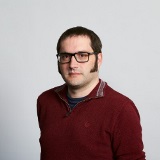
James Cooke, PhD, Associate Director, Bicycle Therapeutics

Dr. Cooke is an experienced 20-year science professional in both academia and industry. Currently an Associate Director at Bicycle Therapeutics where he started as a Research Scientist more than 8 years ago. He currently leads a large team of scientists working with Bicycle's phage display platform. In this role, his group focuses on the identification of new Bicycle peptides to fuel the drug development pipeline across many different disease areas. He is also passionate about developing those around him, and seeking new ways to innovate with Bicycle's exciting and versatile technology. Dr. Cooke holds a PhD from the University of Newcastle upon Tyne, and had post-doctoral training at Queen Mary University London and the MRC in Cambridge.
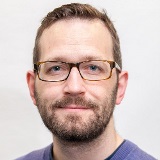
Christopher Cooper, DPhil, Founder, Protein Sciences, Enzymogen Consulting

Chris joined CHARM Therapeutics, an AI-driven biotech company as Director and Head of Protein Sciences in 2022. CHARM’s research focuses on novel approaches for cancer drug discovery using protein and ligand co-folding algorithms for hard-to-drug targets. Prior to this, Chris was the Director of Protein Science at Peak Proteins, but for most of his career he studied the biochemistry and structural molecular biology of DNA repair and replication. He was a Senior Lecturer in Biological Sciences at the University of Huddersfield for 6 years and performed his postdoctoral research at the University of Oxford, working at the Structural Genomics Consortium and Sir William Dunn School of Pathology. During this period Chris was also a College Lecturer in Biochemistry at The Queen’s College, and a Junior Research Fellow at Linacre College.
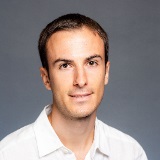
Gabriele Corso, PhD, Co-founder and CEO, Boltz

Gabriele is the co-founder and CEO of Boltz, a company building the AI models and software tools to enable a new era in drug discovery and biological research. Gabriele received his PhD at the MIT Computer Science and Artificial Intelligence Laboratory where he developed state-of-the-art models for biomolecular modeling, including DiffDock, Boltz-1 and Boltz-2.

Christian N. Cramer, Senior Principle Scientist, Discovery ADME, Novo Nordisk A/S

Biochemist by training and obtained in 2018 PhD at University of Copenhagen (Denmark) in analytical protein chemistry using LC-MS for mapping of complex disulfide bonds in biopharmaceuticals. Joined the Discovery ADME department at Novo Nordisk A/S in 2018, and has since been driving new data solutions for metabolism identification (MetID), LC-MS bioanalysis of peptides, proteins and protein conjugates and an in-house plasma protein binding (PPB) assay.
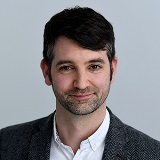
Marc Davies, PhD, Vice President R&D, Leucid Bio

Marc received his PhD from the laboratory of Dr. John Maher at King’s College London, where his research focused on the development and pre-clinical assessment of CAR T-cells targeting the extended ErbB family. This product is now under investigation in an investigator-led Phase I clinical trial for patients with relapsed/refractory head and neck cancer. Following a post-doctoral position at University College London developing CAR T-cells for haematological malignancies, Marc returned to KCL, where his research focused on enhancing CAR T-cell efficacy against solid tumours. During this period, Marc developed a number of new technologies, including the novel 'adaptor' CAR structure that would become the flagship asset for Leucid Bio. Marc joined Leucid Bio in May 2021 as VP of R&D, to develop and manage their burgeoning pipeline and to help with the clinical translation of their lead asset for the treatment of solid tumours, LEU011.
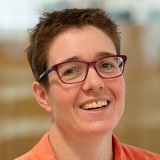
Charlotte M. Deane, PhD, Professor, Structural Bioinformatics, Statistics, University of Oxford; Executive Chair, Engineering and Physical Sciences Research Council (EPSRC)

Charlotte Deane, MBE, is a Professor in the Department of Statistics at the University of Oxford, Executive Chair of the Engineering and Physical Sciences Research Council (EPSRC) and Co-Founder of Dalton Tx. During the COVID-19 pandemic, she served on SAGE, the UK Government’s Scientific Advisory Group for Emergencies, and acted as UK Research and Innovation’s COVID-19 Response Director. In 2025, Charlotte was elected as a Fellow of the International Society for Computational Biology (ISCB). At Oxford, Charlotte leads the Oxford Protein Informatics Group (OPIG), which works on diverse problems across immunoinformatics, protein structure and small molecule drug discovery using statistics, AI and computation to generate biological and medical insight. Charlotte’s research focuses on the development of novel algorithms, tools and databases which are openly available to the community. They are widely used in both academia and industry and embedded in pharmaceutical drug discovery pipelines. She is a member of several advisory boards and has consulted extensively with industry, having also established a consulting arm within her research group as a way of promoting industrial interaction and use of the group’s software tools. Charlotte is part of the team leading OpenBind, a £8 million government-backed consortium aiming to create the world’s largest open dataset of drug-protein interactions to accelerate AI-driven drug discovery. She also serves as one of five experts advising the UK Government’s new AI for Science strategy, which aims to boost AI adoption across research and accelerate scientific discovery.
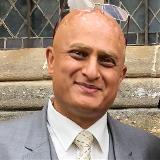
Mahendra P. Deonarain, PhD, Chief Executive & Science Officer, Antikor Biopharma Ltd.

Dr Deonarain studied at Imperial College and Cambridge University where he carried out PhD research into protein engineering. From 1997-2011 Dr Deonarain was a Principle Investigator at Imperial College in Antibody Technology, which led to some novel technologies being developed commercially. Dr Deonarain now retains an honorary position. He has published over 80 papers and patents in protein/antibody engineering/conjugates. In 2014, he co-founded Antikor Biopharma where he is the CEO leading a team to develop the next-generation of antibody-fragment based ADCs
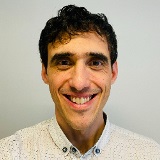
Maarten Dewilde, PhD, Assistant Professor, Therapeutic & Diagnostic Antibodies, Catholic University Leuven

Maarten Dewilde obtained his PhD in Pharmaceutical Sciences at the University of Leuven (KU Leuven), Belgium, in 2008 by studying the structure-function relationship of Plasminogen Activator Inhibitor-1. Next, he continued his career in a Belgian biotech company (Ablynx, currently Sanofi). As a Scientist Team Leader at Ablynx, he was enrolled in the Discovery Department and served as the Lead Scientist on several therapeutic development programs. After spending six years at Ablynx, he returned to academia in 2014, where he was enrolled as a Staff Scientist at the Flemish Institute for Biotechnology (VIB) in the laboratory of Prof. Bart De Strooper. Here, together with his team, he started to develop novel strategies to deliver biological drugs over the blood-brain barrier (BBB). In late 2017, he joined VIB’s newly founded translational research unit, VIB Discovery Sciences, as Expert Scientist Biologics to shape their therapeutic biologics discovery platform and develop multispecific antibodies in the field of immuno-oncology, while continuing his BBB-related research. In October 2020, Maarten Dewilde started his own research group as an Assistant Professor at the University of Leuven, at the Laboratory for Therapeutic and Diagnostic Antibodies (LTDA). In 2021, he became a board member of PharmAbs, the antibody innovation, incubation, and valorization platform at the University of Leuven. In 2023, he became the head of LTDA. The focus of LTDA is on antibody gene therapy as a technology platform, blood-brain barrier-related research to deliver proteins, nucleotides, and viruses to the brain, and developing next-generation multispecific biologics mainly in the field of neurological disorders and immuno-oncology.
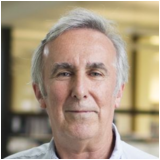
Alan Dickson, Prof Biotechnology & Dir, Ctr of Excellence in Biopharmaceuticals, Univ Of Manchester

Alan J Dickson is Professor of Biotechnology at the University of Manchester’s Institute of Biotechnology and Director of the Centre of Excellence in Biopharmaceuticals. His research focuses on molecular and systems-level strategies-such as chromatin analysis, omics, and mammalian cell engineering-to improve bioproduction of therapeutic proteins and viral vectors. He leads interdisciplinary collaborations across academia and industry to advance bioprocessing and biopharmaceutical development.

Arndt Dietrich, Sr Expert DSP Dev, Bioprocess Development, Wacker Biotech GmbH

Dr. Arndt Dietrich is Senior Expert in Downstream Processing Development at Wacker Biotech. Arndt is trained in protein chemistry and production with a strong background in protein folding and protein analyses. For more than 20 years he has developed DSP processes for recombinant proteins produced in E. coli.
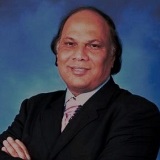
Rakesh Dixit, PhD, DABT, CEO & President, Bionavigen Oncology, LLC and CSO, TMAB Therapeutics, Regio Biosciences

Rakesh Dixit is an accomplished executive, inventor, and scientist with over 35 years of success with top biotechnology and pharmaceutical companies, including Merck, Johnson & Johnson, and Medimmune - AstraZeneca. Currently, he is President and CSO of Regio Biosciences and Bionavigen, LLC. He is a Board Member of Regio Biosciences and a key member of multiple scientific advisory boards. Rakesh is also a chief adviser and consultant for more than 20 companies worldwide. His biopharmaceutical peers selected Rakesh as one of the 100 Most Inspiring People in the Pharmaceutical Industry by PharmaVOICE in 2015. Rakesh received the Most Prestigious Award of Long-Standing Contribution to ADCs by World ADC (Hanson-Wade), 2020. From 2006 to 2019, Rakesh was a Global Vice President of the Biologics R&D at Medimmune - AstraZeneca. Rakesh has unique expertise in developing biologics (e.g., monoclonal antibodies, bispecific biologics, antibody-drug conjugates, fusion proteins, peptides, gene and cell therapies, etc.) and small-molecule biopharmaceuticals. His areas of expertise include discovery, early and late preclinical development, safety assessment, DMPK, and translational sciences. Dr. Dixit conducted extensive graduate and post-graduate training in Pharmacology/Toxicology-Biochemistry with both Indian and USA institutions (e.g., Case Western Reserve University, Medical College of Ohio, University of Nebraska) and is a Diplomate and Board Certified in Toxicology from the American Board of Toxicology, Inc. since 1992.
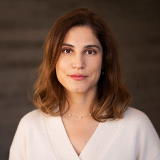
Ivana Djuretic, PhD, Founder & CSO, Asher Biotherapeutics

Co-founded Y combinator funded biotech start up; Immunology and immuno-oncology leader; Broad experience from discovery to preclinical and translational development including cell therapies and large molecules; Experienced manager and mentor of a team interfacing with protein engineering to select targets and develop appropriate modalities to candidate selection, IND submission and early clinical studies; Experience with hiring new teams, leading already established teams, and working cross-functionally on setting the research strategy and focus, and implementing and accelerating timelines; Track record of advancing the scientific understanding while driving projects to go/no-go decisions; bringing programs to the clinic in record time.
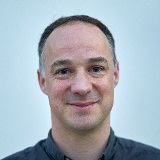
Roger B. Dodd, PhD, Director, Biologics Engineering, AstraZeneca

Roger conducted his doctoral studies at the University of Cambridge in the field of structural biology, applying X-ray crystallography to the study of the ubiquitination system. He then conducted post-doctoral research at the Institute of Cancer Research and University of Cambridge in the field of membrane protein crystallography, before joining AstraZeneca as a Protein Scientist in 2016, where he has led antibody discovery and engineering for a number of projects across therapeutic areas. He now leads the AZ Biologics Engineering biologics production team located at AstraZeneca’s Discovery Centre in Cambridge, UK.
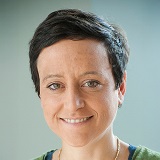
Valérie Dutoit, PhD, Senior Scientist, Faculty of Medicine, University of Geneva

Dr. Valérie Dutoit is a tumor immunologist dedicated to the development of immunotherapeutic approaches for GBM. She completed her PhD in immunology at the Ludwig Institute for Cancer Research and the University of Lausanne in 2003. Dr Dutoit is currently Privat-Docent at the Faculty of Medicine of the University of Geneva (UNIGE). She is also a member of the Department of Oncology at the Geneva University Hospital (HUG), where she is responsible for the Tumor Biobanking platform, a platform collecting samples from patients involved in several clinical trials and research projects with the aim to facilitate patient-oriented research. She participated in the development of a novel multipeptide vaccine for GBM, which has been tested in patients with GBM. She aims at understanding how immunotherapy can be combined with standard of care and what is the impact of the GBM tumor microenvironment on antitumor immune responses. She is currently working on the development of cell therapy for GBM patients with CAR T cells, together with the team of Prof. Migliorini from the UNIGE.
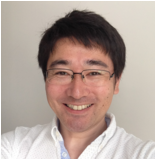
Takashi Ebihara, COO, GeneFrontier Corporation

Takashi is COO of GeneFrontier Corporation (GFC) since 2010, focusing on cell-free technology, especially the PURE system. He earned a Ph.D. in cell-free protein expression system from Tokyo Institute of Technology in 2000, and co-founded GFC in 2003 after working in venture capital in life science industry.
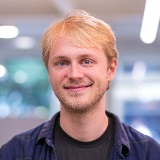
Isaac Ellmen, Researcher, Oxford Protein Informatics Group, University of Oxford

Isaac Ellmen is a DPhil student in the Oxford Protein Informatics Group (OPIG) at the University of Oxford. His research, in collaboration with Recursion Pharmaceuticals, focuses on the the design of efficient hybrid sequence + structure models for proteins and antibodies. Prior to joining OPIG, Isaac completed a BMath in Combinatorics & Optimization and an MSc in Biology at the University of Waterloo.

Ryan Emerson, PhD, Vice President, Data Science, A Alpha Bio Inc.

Ryan Emerson is a computational biologist with over a decade of experience designing algorithms and pipelines for analyzing high-throughout sequencing data at scale and building machine learning models with large sequence datasets. He has led the development and launch of computational infrastructure for multiple platform technologies and clinical products. As Vice President of Data Science at A-Alpha Bio, Ryan leads the development and application of AlphaBind, utilizing the immense size and quantitative resolution of AlphaSeq data to build ML models that accelerate the design and optimization of new therapeutics.
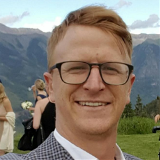
M. Frank Erasmus, PhD, Head, Bioinformatics, Specifica, an IQVIA business

M. Frank Erasmus is the head of bioinformatics at Specifica, Inc. where he specializes in the use of next-generation sequencing technologies and software development to aid in the design of and selection from therapeutic antibody libraries. Formerly, Frank was awarded a national fellowship from the National Cancer Institute for his translational research associated with B cell precursor acute lymphoblastic leukemia conducted at the Spatiotemporal Modeling Center and Los Alamos National Labs. He brings over 13 years of experience in both biotechnology and academic settings in the development and characterization of therapeutic antibodies using theoretical modeling, bioinformatics, and experimental approaches.
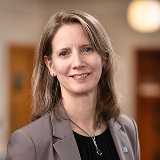
Amelie Eriksson Karlstroem, PhD, Professor & Head, Protein Science, School of Engineering Sciences in Chemistry, Biotechnology & Health, KTH Royal Institute of Technology

Amelie Eriksson Karlström is Professor of Molecular Biotechnology at KTH Royal Institute of Technology, where her research is focused on protein engineering, affinity technologies and bioconjugation chemistry for diagnostic and therapeutic applications. She has a PhD in Neurochemistry and Neurotoxicology from 1997 after studies on solid phase peptide synthesis methodology at Stockholm University. After postdoctoral studies during 1997-1999 at the Scripps Research Institute, La Jolla, CA, where she was working on catalytic antibodies and display technologies, she started her independent research career at KTH. As a professor at KTH, Amelie Eriksson Karlström has led a number of academic research projects and has been actively involved in several collaborative projects with industrial partners.
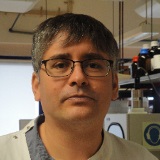
Jose Escandell, PhD, Principal Scientist, Sanofi Satellite Lab & Animal Cell Technology Unit, iBET

Jose Escandell did his doctoral degree in Valencia (Spain) at the Faculty of Pharmacy in the field of drug discovery. He received postdoctoral training at various prestigious research institutes, such as the Gray Institute at the University of Oxford. In 2019 he joined the Animal Cell Technology Unit at Instituto de Biologia Experimental e Tecnológica (iBET) as a senior scientist. His current research interests are in the area of gene therapy, including streamlining the cell line development processes and optimizing production systems by improving the cell hosts through cell engineering approaches.
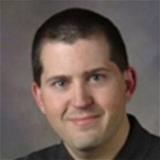
Dominic Esposito, PhD, Director, Protein Sciences, Frederick National Laboratory for Cancer Research

Dr. Esposito is currently the Director of the Protein Expression Laboratory (PEL) and Project Lead for the RAS Reagents Core at the Frederick National Laboratory for Cancer Research in Frederick, Maryland. The 38 employees in the PEL clone, express, and purify proteins from a variety of host organisms in support of the NCI RAS Initiative and for investigators at the National Institutes of Health. In addition, the PEL invents and develops novel technologies for improving protein expression and production, focused heavily on baculovirus expression technology and combinatorial cloning. Prior to his role as director, Dr. Esposito led the Clone Optimization Group in the PEL for nine years and was responsible for the generation of over 15,000 expression clones, 400 new expression vectors, and several technological innovations in protein expression. Dr. Esposito received his B.A. in Chemistry at La Salle University in Philadelphia, and his Ph.D. in Biochemistry in the laboratory of Dr. John Scocca at the Johns Hopkins University Bloomberg School where he studied bacteriophage site-specific recombination. Dr. Esposito then worked as a postdoctoral fellow in the laboratory of Dr. Robert Craigie at the NIDDK, where he studied the protein-DNA interactions involved in the HIV integration reaction. Prior to joining the FNL in 2001, Dr. Esposito worked for three years as a Staff Scientist in the Protein Engineering group at Life Technologies, where he helped to develop the Gateway recombinational cloning system. Dr. Esposito has published over 100 peer-reviewed manuscripts in the fields of protein expression and DNA recombination.
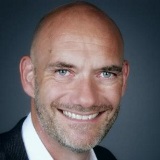
Andreas Evers, PhD, Associate Scientific Director, Antibody Discovery & Protein Engineering, Global Research & Development Discovery Technology, Merck Healthcare KGaA

Since October, 2020, Dr. Andreas Evers has worked computer-aided assessment and optimization on NBEs at Merck Healthcare KGgaA. He obtained his PhD in Computational Chemistry with Professor Gerhard Klebe at Philipps University of Marburg in 2000. He joined Sanofi in 2003, first working in the area of computer-aided drug design on “small molecule” projects and later on therapeutic peptides and proteins. His research activities include implementation and application of in silico and AI approaches to design new molecules with the desired target activity and developability properties.

Monica L. Fernandez-Quintero, PhD, Staff Scientist, Integrative Structural and Computational Biology Department, Scripps Research Institute

Monica Fernández-Quintero studied Theoretical Chemistry at the University of Innsbruck. During her PhD she demonstrated how molecular dynamics simulations can improve the structure prediction of proteins, i.e., antibodies and ion channels. Already since her Bachelor thesis 2015 Monica is working on the dynamics of antibodies and graduated in 2020. She already authored several papers, gave talks, and presented posters on international conferences featuring various aspects of antibody and T-cell receptor dynamics. Since 2023 she joined the lab of Prof. Andrew Ward, combining structural biology with physics-based machine learning approaches to characterise protein-protein binding interfaces, facilitating the design of antibodies and de-novo proteins.
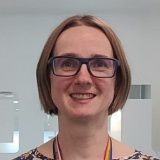
Helena Maja Firczuk, PhD, Group Leader, Protein and Cellular Sciences, GSK

After completion of the PhD in biochemistry, I spent over a decade conducting academic research in the field of systems biology of eukaryotic protein synthesis pathway. In 2018, I moved to GSK to utilize my expertise to modernize protein generation pathway.
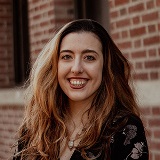
Christina Floristean, Researcher, AlQuraishi Laboratory, Colombia University

Christina Floristean is a PhD student in the AlQuraishi Lab at Columbia University, where she also earned her BS and MS in Computer Science. As part of her work with the OpenFold Consortium, her current research involves developing open source state-of-the-art structure prediction models, with a particular interest in memory and speed optimizations. Prior to her PhD, Christina worked as a software engineer at the New York Genome Center, where she contributed to the development and maintenance of key laboratory software systems and tools supporting clinical diagnostics and genomic research.
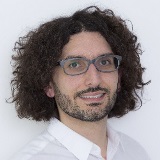
Vito Foderà, PhD, Associate Professor, Biophysics, University of Copenhagen

Vito Foderà received his Ph.D. in Physics (2009) from the University of Palermo (Italy), with a project focused on (in)stability and self-assembly mechanisms of peptides and proteins. In 2009 he was appointed as a Research Associate at the Cavendish Laboratory at the University of Cambridge (UK). In 2012 Vito was awarded the Marie Curie IEF for Career Development grant that allowed him to join the Dept. of Drug Design and Pharmacology (University of Copenhagen). In 2016 he became tenured Associate Professor of Biophysics at the Department of Pharmacy, University of Copenhagen, where he established his research group. His main focus is on protein self-assembled structures and he aims at translating the fundamental knowledge on these systems into novel high-impact applications in advanced materials for nanomedicine, protein drug formulations and protein-related neurodegenerative diseases. In 2018 he is recipient of the Villum Young Investigator award and is the PI of the related 5-year initiative “ProSmart”, focused on the understanding of structural heterogeneity in protein self-assembled materials via advanced microscopy approaches and X-ray and neutron techniques. Vito´s group works in close connection with both international collaborators in academia, large-scale facilities and national and international industrial entities. He is author of > 60 manuscripts.

Rachel Fong, Senior Director, MPA Commercial Operations, Integral Molecular

Rachel Fong is the Senior Director of Commercial Operations, Membrane Proteome Array, at Integral Molecular, with over 10 years of experience at the company. Rachel manages relationships with customers, collaborators, and partners for MPA projects. As a founding member of the scientific team that launched this platform, she brings a unique perspective that helps guide partners from initial discussions to successful project completion. Rachel joined Integral Molecular in 2010 and is a co-author on over a dozen publications.
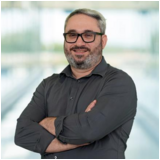
David Fradkin, Field Application Scientist, Sartorius

David holds a MSc degree in Biotechnology from Hebrew University in Jerusalem. With over a decade of experience in supporting customers across various biotechnological platforms, David began his career at Eldan Electronic Equipment, coordinating international marketing and sales operations in Russia and the CIS. He then spent 10 years at Biological Industries Ltd, focusing on imaging and cellular analysis platforms. Following the acquisition of Biological Industries by Sartorius, David joined Sartorius as an application specialist for Octet BLI technology in Israel, contributing to the Sartorius South Europe Bioanalytics department.
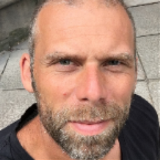
Björn L. Frendeus, PhD, CSO, BioInvent International AB

Björn Frendéus is the CSO of BioInvent, a Swedish Biotech developing antibody-based treatments for cancer immunotherapy. Björn got his PhD studying innate immune responses to microbial infection. Over the past decades, he has developed a strong interest in understanding the complex biology of antibodies in relation to their targets, and applying his knowledge to develop better antibody-based medicines. Björn’s team conceived and developed the F.I.R.S.T platform from which BioInvent’s current pipeline has emerged. This includes the Company’s proprietary clinical-stage anti-FcgRIIB (BI-1206 and BI-1607) and anti-TNFR2 programs (BI-1808), BT-001 - a clinical-stage oncovirally encoded Treg depleting anti-CTLA-4 antibody co-developed with French vaccine company Transgene, and F.I.R.S.T TAM that BioInvent recently partnered with Pfizer on to develop novel antibodies and targets to tumor-associated myeloid cells with the aim to overcome resistance in the tumor microenvironment. BioInvent is closely collaborating on several of its programs with the Cancer Sciences Division in Southampton, UK, where Björn is a visiting professor. Björn chairs the Swedish Foundation for Strategic Research (SSF)’s expert review committee on Infection Biology.
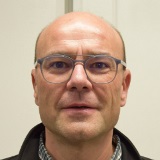
Wolfgang Friess, PhD, Professor & Chair, Pharmaceutical Technology & Biopharmaceutics, Ludwig-Maximilians-Universitaet Muenchen

Dr. Wolfgang Frieß holds a position as Professor for Pharmaceutical Technology and Biopharmaceutics at the Ludwig-Maximilians-University Munich since 2001. He received his PhD in Pharmaceutical Technology in 1993 and his Pharmacy degree in 1989 from the University of Erlangen. . He worked several years in academia and industry both in Germany and the US. His primary research goal is formulation of biologics. This includes i) new analytical tools, specifically for protein aggregates, ii) understanding the effect of interfacial stress on aggregation including new surfactants, iii) impact of processes in fill and finish, and iv) characterization and optimization of the primary packaging. An important aspect of his work is freeze-drying of proteins, considering the process with respect to understanding phenomena during freezing and primary drying and the formulation. He has published over 250 research papers, patents and book chapters.
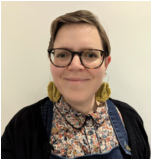
Emilie Fritsch, Senior Principal Scientist I - Automation, Syngenta

I currently lead the Automation team within Syngenta's Microbial Technologies group at Jealott's Hill, UK. With a Ph.D. in Molecular and Cellular Biology from the University of Strasbourg, France, I have a background in molecular and synthetic biology. For the past decade, I have specialised in developing automated solutions for biological research, bridging the gap between traditional biology and cutting-edge automation technologies. As part of my role, I leverage my dual expertise in automation and biology to accelerate Syngenta Biologicals' lead generation pipeline, driving efficiency through enhanced throughput and process optimisation.
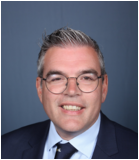
Jeremy Fry, Dir Sales, Sales, ProImmune Ltd

Jeremy Fry is an experienced leader with a background in immunology and gene therapy, bringing more than two decades of expertise in driving scientific innovation and commercial strategy. He earned his DPhil from the University of Oxford, where his research focused on immunological tolerance in transplantation. As Director of Sales at ProImmune, Jeremy leads global business development for cutting-edge immunomonitoring technologies, including MHC multimer reagents and T cell epitope mapping solutions. His work plays a pivotal role in advancing research in infectious diseases, vaccine development, and immune profiling. Passionate about bridging the gap between bench science and real-world applications, Jeremy fosters collaborations that accelerate the progress of immune-based therapeutics.
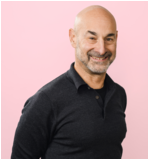
Eric Furfine, CEO & CSO, Mosaic Biosciences Inc

Eric brings experience in leadership roles in biotechnology and pharmaceutical companies to the role of Chief Executive and Scientific Office at Mosaic. He is a visionary leader and drug hunter in the biotech and pharmaceutical industry. As CSO and President of R&D at Eleven Biotherapeutics, his leadership drove an IPO that financed Phase 3 clinical studies and a lucrative licensing deal on a second therapeutic asset. His building the Adnectin protein therapeutic discovery platform at Adnexus resulted in the acquisition of the company by BMS, where subsequently five adnectins were advanced into clinical studies. As VP Preclinical Development at Regeneron, he played pivotal roles in developing game-changing drugs, such as Eylea. Eric received his PhD in Biochemistry from Brandeis University

Norbert Furtmann, PhD, Head of AI Innovation, Large Molecules Research, Sanofi

Upon finishing his studies in Pharmaceutical Sciences, Dr. Furtmann pursued his interdisciplinary Ph.D. thesis in Computational Life Sciences and Pharmaceutical Chemistry at the University of Bonn, focusing on computer-aided design, synthesis, and biological evaluation of protease inhibitors. After starting his professional career at Merck KGaA as Principal Scientist, he joined Sanofi in 2016 as Lab Head for Bioinformatics within the Biologics Research department. Currently, Dr. Furtmann is heading the Data Science & Computational Design group to support the discovery of next-generation protein therapeutics.
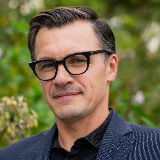
Fernando Garces, PhD, Co-Founder and CEO, BioGlyph

Fernando is a recipient of the 2015 Scripps CHAVI-ID Young Investigator Award for outstanding contributions to the development of an anti-HIV-1 vaccine to elicit broadly neutralizing antibodies against this virus. His research career started when he was awarded an international PhD fellowship to join the University of Barcelona, Spain, in 2004. After finishing his PhD in Biotechnology, he moved to the Institute of Cancer Research in London, UK, where he started his postdoctoral research to work on proteins involved in the DNA repair and to unveil molecular mechanisms that made possible their application as oncologic targets. In 2012, he joined the Professor Ian Wilson’s lab at The Scripps Research Institute, where he became an expert in understanding the molecular details that mediate the antibody-protein recognition such as the glycoprotein-gp160 located on the surface of the HIV-1 trimer. In 2016, Fernando Garces joined Amgen Research to build & lead a team of Protein Engineering with focus on the design of a new generation of large and non-native molecules with high therapeutic value - Multispecifics.
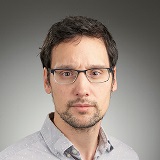
Francis Gaudreault, PhD, Associate Research Officer, Human Health Therapeutics, National Research Council Canada

Francis obtained his PhD in Biochemistry from University of Sherbrooke in 2015, during which he developed a molecular docking program for docking small molecules to flexible protein or RNA targets. While doing his PhD studies, Francis co-founded a successful IT company for automating the management of scientific conferences. Francis joined the National Research Council (NRC) of Canada in 2016, where he has taken part in and led various efforts in the discovery and engineering of antibodies or other biologics. In such efforts are included the structure prediction of antibodies alone or in complex, the affinity assessment of antibody-antigen complexes, and the detection of antibody developability issues. Francis is leading the technical efforts in using artificial intelligence for antibody discovery.
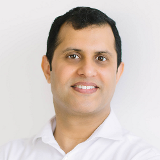
Nimish Gera, PhD, Vice President, Biologics, Mythic Therapeutics

Nimish Gera is the Vice President of Biologics at Mythic Therapeutics leading multiple projects to engineer and develop novel antibody and antibody-based drugs in oncology and immuno-oncology. Prior to Mythic, Nimish has over fifteen years of experience in antibody and protein engineering with five years leading bispecific antibody programs in several disease areas such as rare diseases, oncology, and immunology at Alexion Pharmaceuticals and Oncobiologics. Nimish received his PhD degree in Chemical and Biomolecular Engineering from North Carolina State University and a B.Tech degree in Chemical Engineering from Indian Institute of Technology, Guwahati.
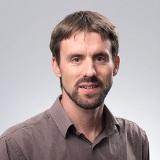
David Gfeller, PhD, Associate Professor, Oncology, University of Lausanne

David Gfeller was trained as a Physicist and obtained his PhD in Theoretical Physics at EPFL. He then transitioned to Computational Biology as a post-doc at the University of Toronto and the Swiss Institute of Bioinformatics. For the last 10 years, David Gfeller is leading a mixed experimental and computational research group at the Department of Oncology at the University of Lausanne. The overarching aim of David Gfeller's research is to establish robust and predictive model of cancer immune cell interactions, with a strong focus on deciphering TCR epitope recognition specificity.
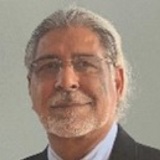
Tariq Ghayur, PhD, Tariq Ghayur Consulting, LLC; Entrepreneur in Residence, FairJourney Biologics

Dr. Ghayur retired from AbbVie (July 2021) and works as an independent consultant. He has 30+ years’ experience leading multi-disciplinary and cross-therapeutic area Biologics discovery programs and developing novel Biologics platforms. Several biologics programs resulted in clinical development candidates. Dr. Ghayur led the team that pioneered the discovery and development of the Dual - variable - Domain -Ig (DVD-Ig) and other multi-specific platforms. Dr. Ghayur also led the team that defined the uptake, intracellular trafficking, and lysosomal degradation of anti-TNF mAbs/DVD-Ig, resulting in the concept of anti-TNF-ADC (next-Gen anti-TNF). In addition, Dr. Ghayur proposed and helped implement several corporate-wide (Abbott & AbbVie) initiatives to foster cross-functional/cross-TA collaborations to bring forward innovative concepts/programs.
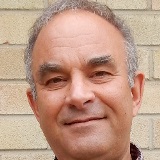
Opher Gileadi, PhD, Head, Protein Science, Structural Genomics Consortium (SGC), Karolinska Institute

Opher Gileadi is heading the Protein Science team at the Structural Genomics Consortium (SGC) unit at the Karolinska Institute, Sweden. Opher obtained his PhD at the Hebrew University in Jerusalem, followed by a postdoc at Stanford and a Senior Scientist at the Weizmann Institute, where he studied mechanisms of transcription in yeast. He was one of the founding group leaders at the SGC at the University of Oxford, where his team established a pipeline of cloning and expression of human proteins for structural studies, resulting in more than 1300 new protein structures. His group studied a diverse selection of proteins, including DNA helicases and nucleases, transcription factors, protein kinases, signaling proteins and genes linked to Alzheimer’s disease. The SGC is strongly committed to providing basic knowledge on under-studied human proteins, enabling their evaluation as potential drug targets and generating the key reagent to initiate small-molecule development.

Adi Goldenzweig, CoFounder & CTO, Scala Biodesign

During her doctoral work at the Weizmann Institute, Adi developed the PROSS protein stability design method, leading to numerous publications and patents for designing stable, cost-effective biologics and enzymes. As part of her work, Adi designed a malaria vaccine immunogen which is now in advanced clinical trials. Adi holds a B.Sc. in Chemistry and Life Sciences from Tel-Aviv University. For the past three years, Adi has co-founded Scala Biodesign and serves as its CTO, leading engineering, product development, and strategy. She manages R&D and product teams, bringing together top talent from the protein design industry.
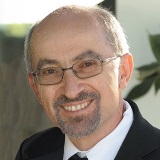
Victor S. Goldmacher, PhD, CSO, R&D, ImmuVia

30+ year experience in targeted cancer therapeutics, antibody technologies, and the biology of apoptosis Pivotal role in the discovery of three FDA approved anti-cancer biologics (ElahereTM, SarclisaTM and KadcylaTM) Started as Assistant Professor of Pathology - Harvard Medical School & Dana-Farber Cancer Institute, followed by many years at ImmunoGen, Inc. Currently CSO at ImmuVia, Inc.
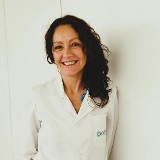
Maria Gonzalez Cao, PhD, Chair, Melanoma Medical Oncology Unit, Oncology Institute Dr. Rosell, Dexeus University Hospital

Dr. María González-Cao is the Chair of the Medical Oncology and Translational Research Melanoma Unit at the Institut Oncològic Dr. Rosell, University Hospital Dexeus, Barcelona. She leads the development of investigator-initiated clinical trials, focusing on innovative immunotherapy strategies for cancers with limited treatment options and for special populations, including patients living with HIV. Dr. González-Cao has directed numerous independent research projects within the institute’s molecular laboratory, with a focus on targeted therapies and immuno-oncology in melanoma and lung cancer. She also serves as principal investigator in multiple Phase I, II, and III clinical trials sponsored by leading pharmaceutical companies. Since 2018, Dr. González-Cao has held the role of Scientific Secretary of the Spanish Melanoma Group (GEM), where she coordinates translational research projects emphasizing biomarker correlation with systemic therapy response and resistance, utilizing tissue and liquid biopsies. She has authored over 100 peer-reviewed publications, including top-tier journals such as JAMA Oncology, The Lancet, Nature Communications, Annals of Oncology, and Journal for ImmunoTherapy of Cancer. She is the principal and corresponding author of over 20 independent publications and has presented her work internationally. Dr. González-Cao earned her MD from the University of Navarra (1994), where she also completed her oncology residency (2000) and PhD (2006), focusing on molecular analysis of residual disease in melanoma. In 2016, she earned a Master’s degree in the Pathogenesis and Treatment of HIV Infection from the Autonomous University of Barcelona.

Christian Graf, PhD, Fellow, Scientific Office, Novartis Technical R&D Biologics

Christian Graf is a Fellow/Senior Expert at Novartis Technical R&D Biologics and is based in Munich/Germany. He is a chemist by training and obtained his PhD in biochemistry from Heidelberg University (ZMBH) in Germany, studying protein folding and conformational changes of chaperones using mass spectrometric and biophysical methods. In 2009, he joined Novartis Pharma AG in Basel, Switzerland, as a Senior Scientist for protein characterization in the Biologics Analytical Research & Development organization, mainly responsible for the early- and late-phase MS characterization of therapeutic antibodies. He had then several roles as Lab head and Principal Scientist in the Integrated Biologics Profiling unit in Basel, supporting early characterization and developability assessment of numerous innovative biologics pipeline projects. In 2017, he joined the Novartis Analytical Characterization team in Oberhaching near Munich/Germany where he supported the characterization and technical development of biosimilar and clinical NBE candidates, and several innovation and new technology projects. In 2022, Christian has taken on a new role as Innovation Strategy Lead in the Scientific Office of the Global Biologics Analytical Development organization.

Amanda Grimm, Sr Segment Marketing Mgr, Segment Marketing, GenScript USA Inc

Amanda Grimm is a seasoned life sciences professional with a diverse background spanning immunopathology research, immunoassay development, manufacturing, and commercialization. Since joining GenScript in 2021, she has led strategic marketing initiatives for the company’s antibody drug discovery portfolio, helping researchers accelerate their therapeutic development. Before transitioning into marketing, Amanda worked extensively in immunopathology research, focusing on animal diseases and the development of immunoassays for both research and commercial applications. Her expertise extends to product management of automation technologies and diagnostics, giving her a well-rounded perspective on the scientific and business aspects of biopharma innovation. At GenScript, Amanda drives portfolio education and global marketing campaigns to support researchers in navigating the complexities of antibody drug development. She is passionate about translating cutting-edge technologies into impactful solutions that empower scientists to bring novel therapeutics to market.
Amanda holds dual Bachelor of Science degrees in Microbiology and Biochemistry, as well as a Professional Science Master’s (PSM) from Washington State University.

Maria Groves, PhD, Senior Director, AstraZeneca

Maria is an industry recognized expert and leader in antibody display technologies and protein engineering and has >20 years of experience in this field. Maria has worked in Academia, Biotech and Biopharmaceutical roles and has diverse knowledge base which spans from molecular biology through to large scale protein production. As a project leader, she has also successfully led antibody therapeutics from research phase into clinical trials. As Laboratory Head for the CRUK AstraZeneca Antibody Alliance, she collaborates with CRUK and the academic community to deliver a portfolio which spans different types of cancer with mAbs carrying antagonistic, Immuno-oncology, agonistic and ADC mechanisms of action. The Alliance team are working to get the best possible outcome for therapeutic and diagnostic programmes with the long-term goal of benefiting cancer patients.
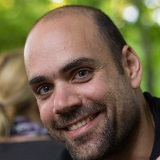
Alexander Haas, PhD, Head, Biologics Core Technologies, Roche Diagnostics GmbH

Alexander Haas, cell biologist by training, joined Roche in 2008 and has held multiple positions within the company. Since 2019, he has led the Biologics Core Technology department in Roche's Large Molecule Research (LMR) unit at pRED, based in Penzberg, Germany. His focus is on advancing biologics research and development, contributing to Roche's innovative efforts in the field.

Benjamin J. Hackel, PhD, Professor, Chemical Engineering & Materials Science, University of Minnesota

Ben Hackel is a Professor of Chemical Engineering and Materials Science at the University of Minnesota. He earned degrees in chemical engineering from the University of Wisconsin (B.S., advised by Eric Shusta) and MIT (PhD, advised by Dane Wittrup) and performed postdoctoral research in the radiology department at Stanford University (Sam Gambhir). Since its inception, the Hackel lab has applied protein engineering technologies to develop physiological molecular targeting agents for molecular diagnostics and targeted therapy, with a focus on oncology and infectious disease.
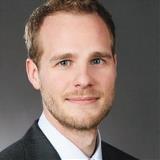
Maximilian Hartl, PhD, Scientist & Lab Manager, Pharma Research & Early Development, Roche Diagnostics GmbH

2001-2006: Diploma in Biochemistry at the Universities of Bayreuth & Stockholm; 2006-2009: Graduate School “Lead Structures in Cell Function” within the Elite Network of Bavaria; Thesis: Foamy Virus Enzymes - Activity, Regulation and Resistance; 2009-2011: Post-Doc at the University of Bayreuth, Structural Biology, Topic: Retroviral Enzymes and Mechanisms of Resistance; 2011-2014: Junior Group Leader at the University of Bayreuth, Structural Biology, Topic: Cross Sensitivity to the Major Birch Pollen Allergen and Its Relatives; 2014-2020: Senior Scientist at Roche Pharma Research & Early Development as Group Leader in Downstream Processing at the Roche Innovation Center Munich; Since 2020: Principal Scientist at Roche Pharma Research & Early Development as People Lead in Biochemistry at the Roche Innovation Center Munich.
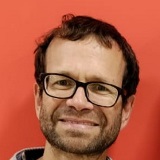
Tzvika Hartman, PhD, Senior Vice President, Computational, Biolojic Design Ltd.

Tzvika is SVP Computation at Biolojic Design. He has an experience of 30+ years in computer science research and software engineering. He started his career in an Elite intelligence unit in the IDF as a mathematics researcher. Following that he did his first degree in mathematics and computer science in Bar-Ilan University, and his post-graduate studies in the Weizmann Institute. The Masters focused on computational complexity, and the PhD on algorithms for bioinformatics, mainly DNA sequencing and genome rearrangements. During his studies he worked as a part-time software engineer in Orbotech. Following that he spent 2.5 years as a postdoc researcher in the Weizmann Institute and Bar Ilan, focusing on algorithms for bioinformatics. He worked 13 years at Google Tel-Aviv as a software engineer and researcher. In the first 8 years he worked on various projects and products such as search engine infrastructure and quality, Google Trends, and routing optimization of Google's internal data center network. Following that, he initiated, founded and managed Google Tel-Aviv's Health group for 5 years, leading various projects such as de-identification of healthcare data, extracting information from medical notes, predictions based on EHR of ICU patients and more.
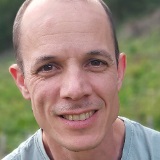
Dirk Haubert, PhD, Associate Director, Biologics, Novartis Pharma AG, Switzerland

Dirk Haubert works as Associate Director in the Technical R&D Biologics department of Novartis Pharma AG in Basel, Switzerland. He leads a team of analytical experts developing analytical methods for support of in -process, release and stability testing for biological molecules from early clinical stages to late-phase clinical development and market application. Dirk holds a PhD in Biology and Immunology from the Cologne University, Germany and brings more than 10 years’ experience in the field of analytical development for new biological entities, biosimilars and cell and gene therapies.
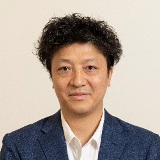
Hiroki Hayashi, Researcher, Discovery Pharmacology, Chugai Pharmaceutical Co Ltd.

Hiroki Hayashi is a distinguished scientist in the Discovery Pharmacology department at Chugai Pharmaceutical. With over 15 years of experience in immunology and cancer immunotherapy research, he specializes in immunotherapy target identification/validation and preclinical drug development. Hiroki joined Chugai Pharmaceutical in 2017, bringing his extensive expertise to the company's innovative drug discovery programs. His current research focuses on developing next-generation immunotherapies, including novel immune checkpoint inhibitors and multi-specific antibodies for cancer treatment.
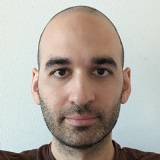
Hooman Hefzi, PhD, Associate Professor, Advanced Mammalian Cell Engineering Group, Department of Biotechnology and Biomedicine, Technical University of Denmark

Hooman Hefzi is an Associate Professor at the Technical University of Denmark leading the Advanced Mammalian Cell Engineering group. The group’s focus is optimizing biologics production through data-driven improvements to host cell lines, leveraging high-dimensional omics data and AI/ML classifiers for target identification. Previously, he led the Omics and Modeling Team in Biologics Technical Development at Biogen. Hooman received his Ph.D. in Dr. Nathan Lewis’s lab at UC San Diego.
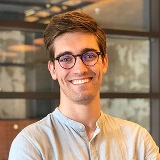
Ryan Henrici, MD, PhD, Vice President, Discovery Medicine, BigHat Biosciences

Ryan is a physician-scientist with expertise in infectious diseases and hematology and Director of Translational Research at BigHat Biosciences. He is also an Associate Scholar of Global Health and Lecturer at the University of Pennsylvania School of Medicine. He originally trained in structural biology and X-ray crystallography at Penn State University and subsequently earned his PhD in Infectious and Tropical Diseases from the London School of Hygiene & Tropical Medicine and MD from the University of Pennsylvania. At BigHat, Ryan leads target identification, antibody discovery, and lead optimisation using a variety of techniques supported by machine learning methodologies. His research group is developing BigHat’s therapeutic pipeline from concept through development.
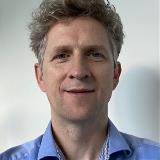
Timothy Hickling, PhD, Former, Investigative & Immunosafety Chapter, Roche

Tim currently contributes to immunogenicity risk and mitigation strategies for large molecules at Roche, from early discovery projects to those in clinical development and post-marketing. During the last ten years he has contributed immunology expertise to the development of an in silico immunogenicity model, with the purpose of improving predictions of clinical immunogenicity for drug candidates. Tim previously worked on vaccine development and holds a PhD in Immunology from the University of Oxford.
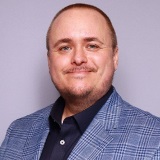
Nathan Higginson-Scott, PhD, CTO, Seismic Therapeutic

Nathan Higginson-Scott, PhD, is the CTO and SVP of Drug Creation at Seismic Therapeutic, which uses protein structure-augmented machine learning to discover life-changing medicines for autoimmune diseases. He has over 15 years of experience developing innovative biologics drugs and technologies in academia and industry. Previously, he was VP of Biotherapeutics at Pandion Therapeutics, where he helped grow the company from its early stages to an acquisition by Merck, and held various positions at Pfizer, co-inventing a proprietary bispecific platform and leading antibody optimization and drug discovery projects. Nathan also played a key role in developing antibody-based capabilities at Verily Life Sciences and began his career in antibody technology at Imperial College London. He is passionate about creating a safe and inclusive work environment, and he also volunteers as a suicide and crisis intervention counselor for The Trevor Project, supporting LGBTQ+ youth in crisis.
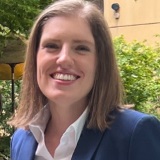
Jen Hofmann, PhD, Senior ML Scientist, Prescient Design, Genentech

Jen is a Senior Machine Learning Scientist with Prescient Design, Genentech, where she works on therapeutic antibody design and optimization. Her research is centered primarily around developability and high concentration property prediction, combining both machine learning and physics-based methods. Prior to joining Genentech, Jen was a NSF Graduate Research Fellow at Stanford University, where she obtained her PhD in chemical engineering under Profs. Roseanna Zia and Gerald Fuller. She obtained her BS at MIT-also in chemical engineering-working under the late Professor Jim Swan.
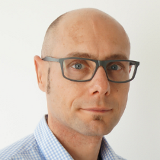
Andreas Hollenstein, PhD, Principal Scientist, Immunosafety, Roche

Andreas holds an MS in Biochemistry/Molecular Biology and a PhD in (Radio) Oncology from ETH Zürich. He conducted his postdoctoral research in adoptive cell therapy at the Dutch Cancer Institute in the lab of Ton Schumacher. Subsequently, he focused on antibody discovery and lead optimization at Genmab NL. Since 2020, Andreas has served as a scientist in immunosafety at Roche in Basel.
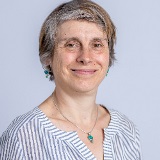
Lovisa Holmberg Schiavone, PhD, Director, Protein Sciences, Structure & Biophysics, Discovery Sciences, R&D, AstraZeneca

Dr. Lovisa Holmberg Schiavone is a Director of Protein Science and Discovery Sciences, at AstraZeneca R&D in Gothenburg, Sweden. She received her PhD in biochemistry from Stockholm University, followed by a postdoc at the University of California, Santa Cruz and Assistant Professor at Södertörn University in Stockholm. Her academic career focused on ribosomes and translation. In 2005, she joined the Structural Genomics Consortium (SGC) at the Karolinska Institutet in Stockholm. During her time at the SGC, she was responsible for one of the target teams solving structures of human proteins of medical relevance. Since joining AstraZeneca in 2007, Dr. Holmberg Schiavone has been leading different teams responsible for supplying proteins for small molecule projects and other drug modalities. Dr. Holmberg Schiavone´s interests span across discovering new targets and prosecuting novel target classes in drug discovery. Dr. Holmberg Schiavone is very interested in annotating protein production data so that it follows the F.A.I.R guding principles and be applied to build predictive models to predict recombinant protein expression. She is exploring this together with Data Sciences and Quantitative Biology colleagues at AstraZeneca, and external partners such as the EBI.

Karin Hrovatin, Bioinformatic Scientist, Merck KGaA

Karin Hrovatin is a Bioinformatic Scientist at Merck KGaA within Group Digital Innovation. She has a broad interest in leveraging computational methods for solving biology-related challenges. Currently, she focuses on digital protein design and Bayesian optimization, and she has past experience in single-cell data integration.
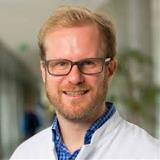
Michael Hudecek, MD, Professor, Cellular Immunotherapy of Malignant Diseases, University of Wuerzburg

Univ. Prof. Dr. med. Michael Hudecek performed medical training at the University of Leipzig, Germany, where he also commenced his specialist training in hematology and oncology. In 2007, Michael joined the Fred Hutchinson Cancer Research Center in Seattle as a post-doctoral research fellow, where he trained in the laboratory of Prof. Stanley R. Riddell and worked on identifying and validating novel tumor antigens in hematologic malignancies, the design and functional optimization of chimeric antigen receptor (CAR) constructs, as well as defining optimal cellular compositions of CAR T-cell products. In 2012, Michael was recruited to the Universitätsklinikum Würzburg, Germany, where he established a translational research program on CAR T-cell immunotherapy. At present, this program comprises physicians, scientists, doctoral students, master students and technicians in a multidisciplinary, international team that performs cutting-edge research with focus on novel transformative CAR technologies, and first-in-man clinical application of novel CAR-T products. Michael is an extraordinary member of the Bavarian Academy of Sciences, and recipient of the 2017 Artur Pappenheim Award of the German Society for Hematology and Medical Oncology.

Bushra Husain, PhD, Senior Director, Assay, Profiling and Pharmacology, AstraZeneca

I am a PhD biochemist with over 12 years of experience in pharmaceutical companies and academia. My research has focused on functional characterization of novel format antibodies, engineered proteins, as well as AAVs for the delivery of novel cargos. Over the years I have worked on the design and functional assessment of antibodies with diverse mechanisms of action, such as immune cell engagers, ADCs, stromal targeting multi-specific antibodies, targeted radioligand therapies, cytokine grafts, and others. I have served as a project champion for multiple large molecule programs, managing milestones from target ideation to lead selection and development. In addition to my experience in protein engineering and assay development, I have contributed to the development of sophisticated cell-surface receptor characterization techniques that were used to identify and validate novel large molecule targets, and that have also resulted in a number of high impact publications.

Catherine Hutchings, PhD, Independent Consultant

Catherine has spent over 28 years acquiring significant depth of experience in antibody drug discovery and platform applications, working for cutting-edge biotech and pharma companies, such as Cambridge Antibody Technology and Heptares Therapeutics. She has been engaged as an independent consultant since 2015, providing scientific and strategic consultancy to pharma, biotech and investors, with a particular focus on GPCRs, ion channels, transporters, immuno-oncology, platform positioning and target/product evaluation. Catherine graduated with BSc Hons in Genetics and Cell Biology from University of Manchester, UK, and a PhD in Biochemistry and Applied Molecular Biology from UMIST, UK.
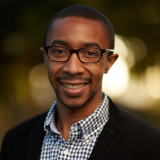
Edward B. Irvine, PhD, Postdoctoral Scientist, Sai Reddy Group, Laboratory for Systems and Synthetic Immunology, ETH Zürich

Dr. Edward Irvine is a Postdoctoral Scientist at ETH Zurich in the laboratory of Prof. Sai Reddy. His research integrates immunology, protein engineering, and machine learning to develop novel platforms to predict and rationally engineer immune function. Dr. Irvine completed his PhD in the Biological Sciences in Public Health at Harvard University, where he utilized systems immunology and antibody engineering strategies to investigate antibody-mediated control of Mycobacterium tuberculosis. His work has contributed to a deeper understanding of the antibody features that drive protective immunity, with findings published in journals such as Nature Immunology, Nature Microbiology, and Science Advances.
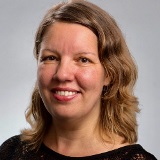
Melita Irving, PhD, Group Leader, Ludwig Institute for Cancer Research, University of Lausanne

Melita Irving, originally from Canada, has been working in Lausanne, Switzerland in the field of T cell engineering since 2007. In 2013, she became a group leader for T cell engineering at the Ludwig Institute for Cancer Research of the University of Lausanne. Her research focuses on the development of function and safety enhanced TCR and CAR T cells and concomitant harnessing of innate and adaptive immunity to augment the control of solid tumors.
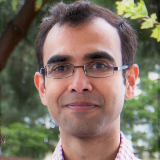
Tushar Jain, PhD, Principal Scientist, Computational Biology, Adimab LLC

Tushar Jain is currently a Director of Computational Biology at Adimab. For the past 12 years at Adimab, Tushar has worked on developing machine learning and statistical models to predict developability characteristics of antibodies, and designing antibody libraries with favorable downstream and PK characteristics. In addition, Tushar has a keen interest in interpreting insights obtained from such approaches using structural models to better drive our understanding of antibody behavior.
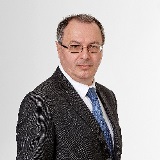
Philippe H. Jais, MD, PhD, President & CSO, Eukarys SAS

Philippe Jaïs, MD, PhD, MSc, is a human molecular geneticist and biotechnology researcher. After an academic career, he held various research leadership positions in the biotechnology and pharmaceutical industry. He is the founder of Eukarÿs and the inventor of the C3P3 artificial expression system. He published over 50 research article and filled +10 patents.
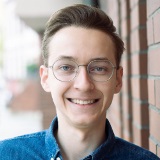

Lukas is a PhD student at Columbia University, supervised by Prof. Mohammed AlQuraishi, where he works with the OpenFold Consortium on open-source structure prediction models. His primary research interest lies in developing new protein-ligand co-folding architectures, aiming to improve their generalization to unseen targets and efficiency for high-throughput screening. Lukas holds B.S. and M.S. degrees in Biochemistry from Heidelberg University, where he conducted prior research in protein crystallography and probabilistic modeling of antibody screening campaigns.
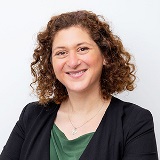
Zahra Jawad, PhD, CEO & Founder, Creasallis

Zahra Jawad is the CEO and Founder of Creasallis, an antibody engineering company looking at improving the penetration of antibodies into solid tumours. The company was founded in 2022 and has undergone two fundraising rounds with a recent seed round raise in February 2025. Creasallis has won several startup awards in 2022 and 2023. Zahra has previously engineered antibodies at Agenus, LifeArc, GSK and Domantis for a number of therapeutic areas. She did her PhD in Protein Engineering at the University of Cambridge.

Andrea Junyan Ji, PhD, Senior Scientist, Pharmaceutical Development, Genentech, Inc.

Staff Scientist in Pharmaceutical Research & Development at Roche/Genentech where she leads overall stability and comparability strategies from early stage development to IMA. She has 20+ years of experience in analytical and formulation development of various dosage forms including liquid, lyo, topical and combination products, manufacturing investigation, process validation and tech transfer.
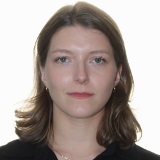
Anna Jirovec, PhD, Scientist, SOTIO Biotech a.s.

Dr. Anna Jirovec joined SOTIO Biotech in July 2024 as a Scientist on the Pharmacology team. She leads preclinical pharmacological studies evaluating CAR-T cells and bispecific antibody-drug conjugates. Dr. Jirovec earned her Ph.D. in Immunology from the University of Ottawa, where her research focused on tumor immunology and vaccine development. Prior to joining SOTIO, she worked at the Public Health Agency of Canada and completed a postdoctoral fellowship in CAR T cell manufacturing process development.
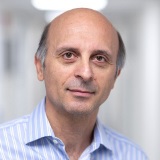
Anastasios Karadimitris, PhD, MRCP, FRCPath Langmuir Chair in Haematology and Consultant Haematologist Co-Director, Centre for Haematology Director, Hugh and Josseline Langmuir Centre for Myeloma Research Centre for Haematology, Department of Immunology and Inflammation, Imperial College London Department of Haematology, Hammersmith Hospital Imperial College Healthcare NHS Trust

No bio available.
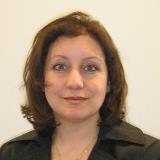
Sophia N. Karagiannis, PhD, Professor, Translational Cancer Immunology & Immunotherapy, Kings College London

Professor Sophia Karagiannis is a translational cancer immunologist with academic and biotechnology experience in the USA and UK. She heads a cancer antibody discovery team focused on the crosstalk between patient immunity and cancer and on the design of novel therapeutic agents. Key areas of research center on patient-derived B cells and their expressed antibodies, Fc-engineered antibodies of different isotypes, and antibody-drug conjugates for cancer therapy. Her group is the first to design, evaluate and translate anti-tumour IgE class antibodies from concept to clinical testing. Sophia is founder of Epsilogen Ltd, the first immuno-oncology company dedicated to developing IgE-based anti-cancer agents.

Akila I. Katuwawala, PhD, Scientist II, Computational Biology, Adimab LLC

Akila Katuwawala is Computational Biology Scientist at Adimab. He is interested in applying Machine Learning algorithms and computational modeling for diverse applications such as the optimization of antibody discovery and characterization workflows, design of synthetic antibody libraries, enhancement of protein expression and assessment of antibody off-target binding.

Hitto Kaufmann, PhD, Chief Scientific & Technology Officer, Hansa Biopharma

Dr. Hitto Kaufmann has served as Chief Scientific Officer at Pieris Pharmaceuticals since 2019. He is a biopharma leader with over 20 years of experience in research, development, and manufacturing. His track record includes the development of approximately 100 biological therapeutic entities and many projects advanced by him actively steering strategic partnerships. At Pieris, he was responsible for leading research, technical development, data sciences as well as drug supply while overseeing early-stage projects and alliance management. Additionally, Dr. Kaufmann played an integral role in transforming the company's approach to development and advancement of new drug candidates. He currently serves as a member of the Scientific Advisory Board of Instituto de Biologia Experimental e Tecnologica (iBET), a private, non-profit organization in Portugal specializing in biology research and drug discovery/bioprocess development services. Prior to joining Pieris, Dr. Kaufmann spent five years at Sanofi, where he held several executive positions in Industrial Affairs and R&D. During this time, he led efforts to build a strong cross-divisional end-to-end technology platform for Sanofi Biologics that included several strategic deals. He also led the Global Biopharmaceutics Development, managing over 700 employees across three sites tasked with drug substance and drug product technical development, analytics, clinical supply and release. Before his tenure at Sanofi, Dr. Kaufmann spent more than a decade at Boehringer Ingelheim, and prior to his departure was the Vice President of Process Sciences in the Biopharmaceuticals division. He began his career as a Research Scientist at the Walter and Eliza Hall Institute in Melbourne. Dr. Kaufmann received his Ph.D. in Natural Science, focusing on cell culture technology, at the Swiss Federal Institute of Technology in Zurich. He earned his Master of Science degree in biotechnology from the Technical University of Braunschweig and the Scripps Research Institute.. Prior to joining Pieris, Dr. Kaufmann held several executive positions at Sanofi and Boehringer Ingelheim. Dr. Kaufmann obtained his PhD in Natural Science, at the Swiss Federal Institute of Technology in Zurich and a Master of Science degree in Biotechnology from the Technical University of Braunschweig and The Scripps Research Institute. He currently serves as Vice Chairman of the European Society for Animal Cell Technology and as a member of the Scientific Advisory Board of IBET, Portugal.
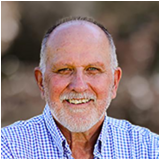
James Keck, Presidents Innovation Fellow & Sr Dir, Innovation & Product Dev in JMCRS, The Jackson Laboratory

Dr. Keck is the Senior Director for Innovation and Product Development at The Jackson Laboratory and a recent recipient of JAX’s Presidential Innovation Fellow Award. In this role, he is responsible for developing and driving cutting-edge immuno-oncology and autoimmune platforms and services to empower preclinical drug developers across the globe, as well overseeing internal and external collaborations that may lead to new JAX product offerings. Dr. Keck’s role is pivotal to JAX’s objective to expand scientific solutions to genomic medicine as he strives to deliver novel offerings based on proprietary capabilities in humanized mice and genomics to facilitate discovery and development of new ways to treat human disease. These humanized mice are immune compromised and engrafted with human hematopoietic stem cells or PBMCs to establish mice expressing a human immune system. For immuno-oncology, they can be further engrafted with human tumor PDXs or cancer cell lines, allowing us to test the latest immune modulators in mice containing human tumors and immune systems. For autoimmune diseases, he is developing humanized mice for diseases such as colitis and lupus. Presently, he is leading JAX’s efforts to further expand the immunotherapy offerings by developing immune-toxicity platforms to evaluate cytokine release syndrome in context of efficacy for bispecific antibodies and CAR T therapies. These novel assays give reproducible, holistic toxicity and efficacy data showing multi-tissue and multi-organ responses mimicking human pathophysiology in diverse populations. Prior to joining JAX, besides leading drug discovery efforts in oncology, he has been part of: business development teams; interacting with collaborators in industrial and academic centers, and clinical teams; co-authoring clinical investigator brochures; FDA progress reports; and clinical protocols.
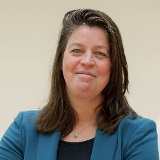
Kristel Kemper, PhD, Director, Translational Research, Genmab BV

Kristel Kemper earned her PhD in 2012 from the University of Amsterdam, the Netherlands, with her thesis titled "Molecular Identification and Targeting of Colorectal Cancer Stem Cells." During her postdoctoral research at the Netherlands Cancer Institute in Amsterdam, she explored resistance mechanisms to the BRAF inhibitor vemurafenib using melanoma patient-derived xenografts. In 2017, Dr. Kemper joined Genmab as a Scientist, where she was responsible for the development of therapeutic antibodies with an emphasis on oncology. She now serves as the team lead for the Translational Research Group at Genmab. In this capacity, she oversees the design and implementation of translational strategies for novel antibody compounds in preclinical and early clinical development, including the formulation of biomarker strategies for first-in-human trials.
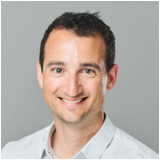
Pieter Kennis, Senior Principal Scientist, Large Molecule Research , Sanofi

Pieter is a Senior Principal Scientist at Sanofi, where he leads a team responsible for high-throughput screening and characterization of biologics using binding and functional assays. With over 15 years of experience in biotechnology, he has developed deep expertise in NANOBODY® discovery and assay development. After earning his Master’s degree in Industrial Engineering - Biotechnology in 2008, Pieter began his career at Ablynx, later integrated into Sanofi in 2018. In his early roles, he contributed to multiple therapeutic programs and built extensive experience in the functional screening and characterization of NANOBODY® molecules. He also played a key role in automating segments of the discovery workflow. Pieter’s career has progressed through roles of increasing responsibility, from Lab Scientist to heading a group of close to 20 (Lab) Scientists. Throughout his career, he has led discovery campaigns, managed cross-functional teams, and driven innovation in assay technologies. His work continues to support the evolution of next-generation biologics workflows through scientific excellence and collaborative/cross-boarders leadership.
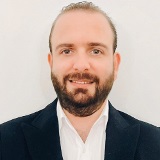
Somar Khalil, PhD, Principal Scientist, Analytical Research & Development, GSK

Somar Khalil is a Principal Scientist at GSK Vaccines within the Mass Spectrometry and NMR group in Analytical Research & Development. He specializes in MS-based proteomics and mRNA analytics, with a focus on host-cell protein monitoring, glycoproteomic, and the development of advanced LC-MS methods for vaccine and biologics characterization. He has led method development across diverse platforms and actively integrates statistical modelling and data science into CMC analytics.
.tmb-0.jpg)
Astero Klampatsa, PhD, Group Leader, Cancer Therapeutics, Institute of Cancer Research
.tmb-0.jpg)
Dr Astero Klampatsa (PhD) is a Team Leader in Cancer Immunotherapy at the Institute of Cancer Research, London, UK. She graduated with a BSc in Biological Sciences and an MSc by Research in Biomedicine from Lancaster University. She was awarded a PhD in Research Oncology in 2011 from Queen Mary’s College, University of London, UK. As a postdoctoral fellow, she gained expertise in CAR T cell immunotherapy and immunobiology of thoracic cancers at King’s College London, UK, and at the University of Pennsylvania, USA. Since 2019, Dr Klampatsa has been leading her own team, the Thoracic Oncology Immunotherapy Group, focusing on developing novel CAR T cell therapies for mesothelioma and lung cancer, as well as the immunobiology of these malignancies for identification of markers of response to immunotherapy.
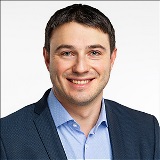
Boris Klimovich, PhD, Senior Scientist, R&D, BiconY Therapeutics

Boris Klimovich is a Senior Scientist at BiconY Therapeutics and a Postdoctoral Researcher at the CCU Translational Immunology, University Hospital of Tübingen. He leads the discovery of bi- and multispecific antibodies, including CD3 bispecifics, checkpoint inhibitors, and immunocytokines for cancer therapy. He is a co-inventor of a patented IL-15-based immunocytokine platform designed to improve safety and efficacy. He obtained his PhD in Molecular Oncology from the University of Marburg and previously managed an industrial laboratory focused on antibody discovery and manufacturing.

Harald Kolmar, PhD, Professor and Head, Institute for Organic Chemistry and Biochemistry, Technische Universität Darmstadt

Harald Kolmar is full professor at the Technische Universität Darmstadt, Germany where since 2005 he heads the Department of Applied Biochemistry. He holds a PhD and habilitation in biochemistry and molecular genetics from University of Tübingen and Göttingen. His current scientific interests mainly focus on protein engineering and design, nanobiotechnology, antibody engineering, chemical biology and development of tailor-made peptides and proteins for applications in diagnostics and therapy.

Eric Krauland, PhD, President & CSO, Adimab LLC

Dr. Eric Krauland is the Chief Scientific Officer and President of Adimab and has been with the company for 18 years. Dr. Krauland has worked in numerous roles at Adimab since 2007 and was a key contributor in the development of Adimab's platform. He received his PhD in Biological Engineering from the Massachusetts Institute of Technology in 2007 and his BS/MSE in Biomedical Engineering from Johns Hopkins University.

Dan Bach Kristensen, PhD, Scientific Director, Symphogen

Dan Bach Kristensen holds a Ph.D. in biology and B.Sc. degree in chemistry. Dan is specialized in protein chemistry and mass spectrometry, which he initially applied in the field of proteome research in Japan and later in Denmark. For the last 20 years Dan has been working with analytical characterization in the biopharmaceutical industry, on projects ranging from early discovery through to product registration. Clinical indications include bleeding disorders, neutropenia, autoimmune diseases and oncology. Dan currently works as a Scientific Director at Symphogen, which is specialized in the development of antibody-derived formats, including antibody-drug conjugates and bispecific antibodies, for the treatment of cancer and other indications.
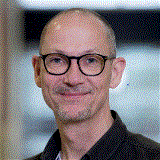
Peter Kristensen, PhD, Associate Professor & Head of Biotechnology, Chemistry & Bioscience, Aalborg University

The research of Peter Kristensen is centered on the technical development and application of methods that allow Darwinian evolution of proteins using directed evolution technologies. The main scientific contributions have more specifically been in the area of recombinant antibodies and methods of isolating such antibodies from large libraries. In addition Peter Kristensen was the first to develop technologies which allow isolation of proteins with improved stabilities from large libraries of mutants. The interest to make technological developments based on recombinant antibodies and for manipulating protein stability and activity, were initiated while Peter Kristensen performed his post doc at the MRC-LMB in Cambridge in the group of Nobel Laureate Sir Greg Winter. However to justify technological development, the technology developed should be able to provide new insight or solve important problems and here we have especially focused attention at finding novel biomarkers which can be used in characterization of important human conditions, such as age related diseases and rare circulating cells in the blood, just to mention the most relevant example. Most recently the research has involved the use of non-natural amino acids for immobilization and conjugation of recombinant antibodies and proteins of industrial interest and novel biosensors building on recombinant antibody technology. In the general field of Protein Engineering, we are working on optimising enzymes which can be used in the green production of bioplastics from fatty acids.

Stefan Kubick, Dr. habil. Free University of Berlin, CEO B4 PharmaTech GmbH

Dr. Kubick is CEO of the company B4 PharmaTech GmbH, a startup company on the campus of the “Freie Universität Berlin”, focused on the production of bioorthogonal systems for protein labeling. Prior to that, he was the international affairs officer and head of the department “Cell-free and Cell-based Bioproduction” at the Fraunhofer IZI-BB in Potsdam-Golm. Dr. Kubick is also a scientific advisor for the scienova GmbH.
He gained his PhD in Molecular Biology and Physiology from the University of Stuttgart-Hohenheim, Germany. During his postdoctoral research in the Institute of Pharmacology at the Freie Universität Berlin, he was involved in the characterization of cellular functions of G protein-mediated signal transduction processes. In 2000 he moved to RiNA GmbH, Berlin, to work as a senior scientist on the development and commercialization of novel solutions in the field of cell-free protein synthesis and labeling. In collaboration with the companies Qiagen and Roche he developed a novel eukaryotic in vitro translation system. Since 2010 he has led a large group at the Fraunhofer IBMT and became head of the department “Cell-free Bioproduction”. His laboratory exploits cell-free protein synthesis as a versatile tool for functional genomics, e.g. cell-free synthesis of antibodies, membrane proteins and glycoproteins, as well as chip-based protein synthesis and translational regulation. Dr. Kubick is also a lecturer at the Freie Universität Berlin and the University of Potsdam. He is an affiliate of the Technical University of Berlin and Lecturer at the University of Applied Sciences, Berlin, Germany. In addition, Dr. Kubick is a member of the Faculty of Health Sciences, joint Faculty of the Brandenburg University of Technology Cottbus-Senftenberg, the Brandenburg Medical School Theodor Fontane and the University of Potsdam, Germany.
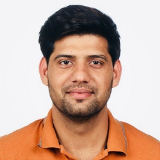
Anand Kumar, PhD., Senior Scientist, Bio Structure and Biophysics, Integrated Drug Discovery, Sanofi

Anand Kumar is a senior scientist at Integrated drug discovery, Sanofi R&D. He got his master’s degree in life sciences from JNU, New Delhi, India. He then joined the Pasteur Institute, Paris to pursue his Ph.D. in structural biology under the guidance of Dr. Nicolas Reyes, where he delved into the emerging field of cryo-EM. His doctoral research focused on understanding the mode of action of anti-CD20 therapeutic antibodies using cryo-EM. He did a one-year post-doc where he solved the structures of Solute Carrier (SLC) transporters. In 2021, he joined Sanofi as a Cryo-EM scientist to support the drug discovery acceleration and cryo-EM platform.

Anil Kumar, KACTUS

Anil Kumar holds a Ph.D. in Protein Engineering from NTU, Singapore, and brings over a decade of experience in biopharmaceutical R&D, with expertise in protein design and therapeutic innovation for immune-oncology and autoimmune indications.
Prior to joining KACTUS Bio, Anil served as Director of Antibody Discovery and Protein Engineering at ImmunOs Therapeutics in Switzerland, where he spearheaded the development of next-generation HLA and monoclonal antibody based therapeutics. His team successfully advanced multiple immune-oncology programs, including the company’s lead candidate IOS-1002 into Phase 1 clinical development for solid tumors.
At KACTUS Bio, Anil blends his deep scientific expertise with strategic business development, aiming towards building partnerships and delivering high-quality recombinant proteins and GMP-grade enzymes to accelerate drug discovery and development efforts.
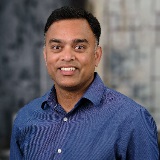
Vinodh B. Kurella, PhD, Biotherapeutic Computational Modeler, Takeda Pharmaceuticals, Inc.

Vinodh Kurella is a Senior Scientist (Biologics computational modeler) in Biotherapeutic Engineering Group (BE) within Global Biologics at Takeda (Cambridge, USA). Experienced in structure-based antibody/protein design and optimization. Previously had range experiences at various biotech companies in different modalities such as gene therapy, biologics, and CAR T designs. Post-doctoral training at Harvard Medical School/Dana Farber in Dr. Wayne Marasco laboratory in antibody engineering and graduate training from Louisiana State University (LSU-HSC) in the field of protein X-ray crystallography in David Worthylake laboratory.
.tmb-0.jpg)
Lenka Sadilkova, PhD, Head, Preclinical R&D, Mablink
.tmb-0.jpg)
Dr. Lenka Kyrych Sadilkova has joined Mablink Bioscience in early 2022, as the Head of Preclinical Research and Development. Previously, since 2013, she worked at SOTIO Biotech as a scientist involved in several projects during the formation of the company development pipeline. Since 2016, she worked as a lead scientist and later as a director pharmacology responsible for non-clinical development of several antibody-drug conjugates, with the first one currently in Phase I. In the past, she held several positions in the field of Bioconjugation and Recombinant Proteins with academic institutions. She has worked for 6 years at Czech Academy of Sciences and for 4 years as a scientific lead in the Laboratory of Clinical Pharmacology in one of the Czech largest hospitals. Her work was focused on recombinant antibody engineering, animal vaccination strategies, and vaccine development as well as on research projects related to pharmacokinetic and pharmacodynamic modelling of selected standard of care regimens in geriatric patients with translational overlaps. She has received her PhD in biochemistry, molecular biology, and gerontology with several publications in peer-reviewed journals.
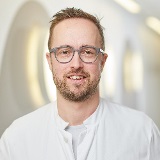
Nico Lachmann, PhD, Head, Klinik für Pädiatrische Pneumologie, Allergologie und Neonatologie, Medizinische Hochschule Hannover

Dr. Nico Lachmann is a leading researcher in the field of immunology and regenerative medicine, with a primary focus on macrophage biology and cell-based therapies derived from pluripotent stem cells. His scientific work is dedicated to understanding the molecular and cellular mechanisms governing macrophage development, function, and therapeutic potential, especially in the context of disease modeling and immunotherapy. Dr. Lachmann's research explores innovative approaches to harness induced pluripotent stem cells (iPSCs) to generate functionally specialized immune cells, including macrophages, dendritic cells, and other mononuclear phagocytes. By combining advanced genetic engineering techniques with cutting-edge regenerative methodologies, his team develops next-generation cell therapies aimed at treating inflammatory diseases, solid tumors, and hematologic malignancies.
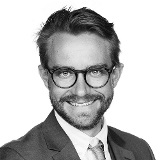
Andreas H. Laustsen, M.Sc.Eng, PhD, Center Director & Professor, Center for Antibody Technologies, DTU Bioengineering, Technical University of Denmark

Professor Andreas Hougaard Laustsen-Kiel (1987) heads the Center for Antibody Technologies at the Department of Biotechnology and Biomedicine at the Technical University of Denmark (DTU) and is a co-founder of the biotech companies, Biosyntia, Antag Therapeutics, Chromologics, VenomAid Diagnostics, Combotope Therapeutics, Agrobiomics, Bactolife, and the spinout Y-king Biologics. He holds a PhD from the University of Copenhagen and an M.Sc.Eng. from DTU. He is recognized as Denmark’s Coolest Engineer (Engineer The Future), was listed on Forbes 30 under 30 in 2017, and was a Top 35 Innovator under 35 by MIT Technology Review 2017. He has published 100+ peer reviewed scientific articles, is cited 5000+ times (Google Scholar), is a co-inventor of 15 patent families, and has (co-)raised EUR 200 million for research and entrepreneurship. He is recognized as an excellent scientist by being a fellow of the Young Academy of Europe (YAE), the Young Academy of Denmark (DUA), the Young Academy of Technology, Science, and Innovation (YATSI), the Danish Academy of Technical Sciences (ATV), and by being a recipient of an ERC Starting Grant, multiple ERC PoC grants, and a Villum Young Investigator grant. In the last 3 years, he has received the 3 most prestigious Danish research excellence awards for scientist with a PhD age of <15 year, incl. the Silver Medal for Excellent Basic Research by the Royal Danish Academy of Sciences and Letters, the Lundbeck Young Investigator Prize, and the Elite Research Prize from the Danish Ministry of Higher Education and Science.
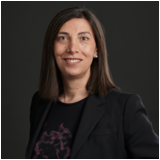
Emily Leproust, CEO and Co-Founder, Twist Bioscience

As an early pioneer in the high-throughput synthesis and sequencing of DNA, Dr. Leproust is disrupting markets to enable the exponential growth of DNA-based applications including chemicals/materials, diagnostics, therapeutics, food and digital data storage. In 2020, BIO presented her with the Rosalind Franklin Award for Leadership. Foreign Policy named her one of their 100 Leading Global Thinkers and Fast Company named her one of the Most Creative People in Business. Prior to Twist Bioscience, she held escalating positions at Agilent Technologies where she architected the successful SureSelect product line that lowered the cost of sequencing and elucidated mechanisms responsible for dozens of Mendelian diseases. She also developed the Oligo Library Synthesis technology, where she initiated and led product and business development activities for the team. Dr. Leproust designed and developed multiple commercial synthesis platforms to streamline microarray manufacturing and fabrication. She serves on the board of directors of GeneDx as well as the Nuclear Threat Initiative, a Washington DC-based nonprofit, nonpartisan global security organization focused on reducing biological threats. She is an investment advisor for NFX Bio and co-founder of Petri, an accelerator for start-ups at the forefront of engineering and biology. Dr. Leproust has published over 30 peer-reviewed papers - many on applications of synthetic DNA, and is the author of numerous patents. She earned her Ph.D. in Organic Chemistry from University of Houston and her M.Sc. in Industrial Chemistry from the Lyon School of Industrial Chemistry.
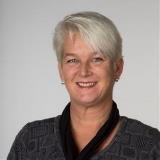
Jeanette Leusen, PhD, Professor AntibodyTherapy, University Medical Center Utrecht

Professor Jeanette Leusen received her PhD in 1995 at the University of Amsterdam (UvA), The Netherlands, studying neutrophils. At present, she is full professor antibody therapy in the University Medical Center Utrecht with an academic group of 24 FTE. She has co-authored >160 publications and is co-inventor on 14 patent applications. She is also scientific founder of 2 companies, for IgA in oncology and infections and targeting CD64 for autoimmune diseases.
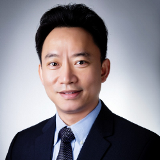
Jing Li, PhD, CEO, VelaVigo

Dr. Li is the founder and CEO of VelaVigo. Prior to founding VelaVigo, he served as Senior Vice President in WuXi Biologics. Before joining WuXi Biologics, he worked for Novartis Biologics Center as Senior Manager of Portfolio & Alliance Management. Before that, he worked for Novartis Oncology as Lab Head and Program Team Head. Prior to Novartis, he worked for Wyeth (now Pfizer) as Senior Scientist and Project Leader. Dr. Li received his M.D. and Ph.D. degrees in molecular immunology and oncology from Peking University Health Science Center (the former Beijing Medical University), and MBA degree from Yale University School of Management. He completed his postdoctoral training at Tufts University. With over 25 years of professional experience in antibody engineering and more than 20 years of industry experience in the drug discovery and development field. He is a member of AACR (American Association for Cancer Research), ASCO (American Society of Clinical Oncology) and FOCIS (Federation of Clinical Immunology Societies). Dr. Li has filed over 70 patent applications and authored more than 20 publications.
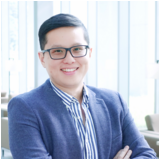
Yu-Chih Lin, Tech Specialist, Field Applications, Sino Biological Europe GmbH

Dr. Lin serves as a technical specialist at Sino Biological Europe, offering expertise in recombinant proteins, antibody products, and CRO services. Prior to joining Sino Biological in Frankfurt, Dr. Lin worked as a field application scientist at Sycell, specializing in spatial proteomics.

Lars Linden, PhD, Senior Vice President Development, SideraBio

Lars Linden is SVP Development at SideraBio and responsible for building a highly differentiated pipeline of large molecules in the cardiometabolic space. Till January 2025 Lars has served as VP, Head of Biologics Research at Bayer driving research activities covering antibodies, multi-specifics, therapeutic proteins and AAV biology. Lars joined Bayer in 2007 and has held various positions as lab head, group lead and director in in the Biologics Organization where he was responsible for production of antibody-based research compounds and tools for biologics projects of Bayer’s early research pipeline and also overseeing developability assessments for clinical candidates. Lars has also a track record of successfully leading preclinical research portfolio projects in oncology (ADCs and IO) and ophthalmology. Previously he had worked on structural biology of GPCRs and ion channels in a small biotech environment. Lars did his PhD in Structural Biology at the Max Planck Institute for Biochemistry/Technical University of Munich int he group of Robert Huber.
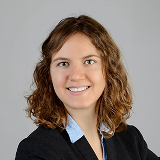
Stephanie Linker, PhD, Senior Computational Biochemist, Merck Group

Stephanie Linker is a Senior Computational Biochemist at Merck KGaA in Group Digital Innovation. She is passionate about understanding and designing molecules to optimize their functions. Her focus areas include structure prediction techniques and physics-based modeling. Stephanie holds a PhD in Computational Chemistry from ETH Zurich.
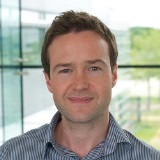
Christopher Lloyd, PhD, Director, Biologics Engineering, AstraZeneca

Chris is a Director and Group Lead within Biologics Engineering (BE) at AstraZeneca, based in Cambridge, UK, working on the development of highly innovative antibody-based modalities for the treatment of cancer. He has over 20 years’ experience in the field of antibody engineering and protein biophysics, across multiple therapeutic areas and contributing to various drug programs in clinical development. He is currently responsible for leading the immune cell engager technology platform development and oversees early-stage research projects within BE for the Immune-Oncology therapy area.
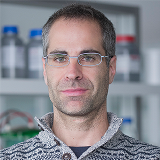
Jacinto López Sagaseta, PhD, Head, Protein Crystallography and Structural Immunology Unit, Navarrabiomed

Jacinto López-Sagaseta is an expert in protein chemistry with broad expertise in the structural basis of antigen recognition by immune receptors. He is the Head of the Unit of Protein Crystallography and Structural Immunology at Navarrabiomed, a position he has held since its establishment in 2019. Previously, he conducted research at leading international institutions, including the University of Chicago (2009-2015), Novartis Vaccines (2015-2016), and GSK Vaccines (2016-2017). He has a strong track record of solving complex macromolecular assemblies-including protein-protein, protein-lipid, and protein-peptide interactions-as well as antibody-antigen structures (Nature Communications, 2018). His expertise spans recombinant protein production and purification, surface plasmon resonance (SPR), biolayer interferometry (BLI), X-ray crystallography, and AI-driven protein discovery. He is also lead consultant at Phase Solution Protein Discovery.
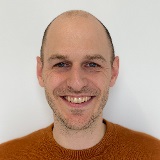
Nikolai Lorenzen, PhD, Scientific Director, Biophysics and Injectable Formulation, Novo Nordisk AS

Nikolai Lorenzen has worked with biophysics and formulation of biopharmaceuticals in the research organization of Novo Nordisk for 10+ years both as a specialist and leader. Nikolai received his education within protein biophysics by first taking a MSc degree partly in a Peptide & Protein Chemistry masters program at Stockholm University, Sweden, and partly at the Interdisciplinary Nanoscience Centre at Aarhus University, Denmark. Nikolai then did his PhD studies in the research group of Professor Daniel Otzen, at Aarhus University, where he worked with protein aggregation and misfolding.

James D. Love, PhD, Vice President, Cross Modality Workflows, Novo Nordisk AS

Dr. Love is heading an area utilising automation to advance drug discovery and development across the Novo Nordisk value chain. Prior to his work at Novo, he was working in the USA for 15 years at different academic and biotech companies, developing high-throughput methods focusing on antibody development and protein production, in particular integral membrane proteins. Prior to this, he was educated at Oxford and Cambridge University, where he trained as a structural biologist.
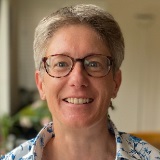
Marjolijn N. Lub-de Hooge, PhD, Hospital Pharmacist, University Medical Center Groningen; Clinical Pharmacy and Pharmacology, Nuclear Medicine and Molecular Imaging, University of Groningen

Professor Marjolijn Lub-de Hooge is a hospital pharmacist/radiopharmacist and professor at the department of Clinical Pharmacy and Pharmacology, and at the department of Nuclear Medicine and Molecular Imaging of the University Medical Center Groningen (The Netherlands). She obtained her PhD on pharmaceutical aspects and molecular imaging of new receptor targeted drugs. Her researchline mainly focuses on molecular imaging to support drug development and to optimize treatment of cancer patients with novel (targeted and immuno) therapies. She is an expert in the development, evaluation, and translation of new radiopharmaceuticals and optical tracers to the clinical setting. And she is also involved in the subsequent clinical application of these new tracers to support drug development, guide personalised treatment.
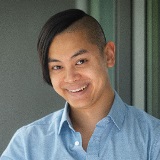
Maik Luu, PhD, Assistant Professor, Cellular Immunotherapy, University Hospital Wuerzburg

Dr. Maik Luu, PhD, is a tenure track assistant professor at the University Hospital Würzburg, specialized in investigating the interaction between microbiome-derived metabolites and cellular immunotherapy. He earned his PhD degree in T cell immunology in 2019 from the Philipps-University Marburg, focusing on the impact of the microbiome on autoimmunity and inflammation. During his postdoc, Dr. Luu has investigated mechanisms of mucosal homeostasis and strategies to improve T cell-mediated cancer immunotherapy. His lab primarily focuses on synergizing microbial postbiotics and CAR T cell engineering to improve cellular therapy for malignant and non-malignant diseases. The team uses syngeneic mouse models, metabolic tracing and pharmacologic interventions for the identification of immunomodulatory microbial metabolites and dissecting their modes of action on epigenetic and metabolic level, thereby allowing the translation of basic research into next-generation cell products. Dr. Luu has published extensively in leading journals and has presented his work at national and international conferences. He has received several honors such as the EBMT/EHA Emerging Investigator Award and the Bright Spark Research Award by the American Association of Immunology. Dr. Luu is an appointed member of the Young Academy at the Bavarian Academy of Sciences and scientific project manager of the EU IMI consortium T2EVOLVE. Driven by the passion for immunology, Dr. Luu’s goal is to elucidate the mechanisms by which the microbiome influences cellular therapy outcome and to make it accessible for clinical application.
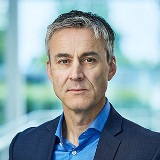
Geir Åge Løset, PhD, CEO and CSO, Nextera AS

Dr. Geir Åge Løset has more than 25 years of academic and industrial experience within the biotechnology sector where his work has focused primarily on antibody, T cell receptor and MHC engineering by use of phage display. Dr. Løset earned his PhD at the University of Oslo and spent parts of his post-doctoral training at the CSIRO Molecular and Health Technologies in Melbourne, Australia. Dr. Løset is Chief Executive Officer and co-founder of Nextera AS. He is an associate member of the K.G. Jebsen Coeliac Disease Research Centre and an Associate Professor at the Department of Biosciences, University of Oslo.
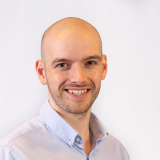
Paul MacDonald, PhD, Data Scientist, Protein Design Informatics, GSK

Paul MacDonald is a Senior Principal Scientist at GSK leading in silico developability work for antibody discovery. Originally graduating with a BSc in Mathematics, Paul completed a PhD in Biology and now works for Protein Design and Informatics within Data Automation and Predictive Sciences.
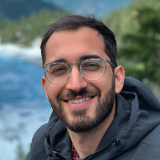
Ali Madani, PhD, Founder and CEO, Profluent Bio

Ali Madani is the founder and CEO of Profluent, an AI startup in protein design, based in Berkeley, CA. Previously, he led machine learning research initiatives at Salesforce Research utilizing deep learning, language modeling, and computer vision. Most notably, Ali was the architect of the ProGen moonshot which advances generative modeling for protein design.

Hazel Mak, PhD, Senior Protein Scientist, Discovery Sciences R&D, AstraZeneca

Hazel is a Senior Research Scientist working on oncology-related protein targets in the Protein Science team at AstraZeneca. Prior to this, she earned a PhD from Imperial College London in Clinical Medicine and Biochemistry where she biochemically and structurally characterised an elusive Salmonella effector protein. Her experiences have enabled her to develop her expertise in protein expression, purification, biochemical and structural analysis. She is also passionate about mentoring and STEM outreach.
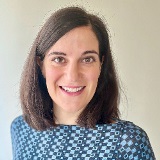
Francesca Malvezzi, PhD, Expert Scientist, Lead Generation, Molecular Partners AG

Francesca Malvezzi is a Senior Scientist in the Lead Generation department at Molecular Partners and the technical project leader for several Radio-DARPin Therapeutic projects in collaboration with Orano Med. Previously, she held various roles, from target design to DARPin generation, contributing to the development of DARPin therapeutics. Francesca gained her expertise in structural biology and biophysics during her PhD at the Institute of Molecular Pathology in Vienna, Austria, and her postdoctoral work at AstraZeneca in Cambridge, UK, specializing in protein-protein interactions and protein conformation analysis.
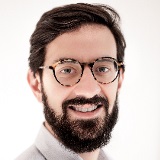
Paolo Marcatili, PhD, Head, Antibody Design, Novo Nordisk

Paolo Marcatili is an associate professor at the Technical University of Denmark, where he leads the "AI for immunological molecules" group. He has developed many state-of-the-art tools for characterising the structure and function of molecules of immunological relevance, in particular antibodies and T cell receptors, by applying deep learning tools to integrate sequence and structural data.
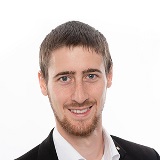
Anthony Marchand, PhD, R&D Scientist, bNovate Technologies

Anthony Marchand holds a MSc in Life Science Engineering from EPFL, as well as a PhD in Bioengineering & Biotechnology from the same university with a specialization in computational protein design under the supervision of Prof. Correia. He was awarded with the 2024 Outstanding Thesis Award by the doctoral program, as well as the 2023 Finn Wold Young Investigator Award by The Protein Society. He worked for 8 laboratories in academia and industry across Europe in the field of protein engineering, immunology and oncology.
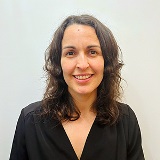
Julia Martinez Fraile, PhD, Senior Scientist, Elasmogen Ltd.

Dr. Julia Martinez Fraile is a Senior Scientist at Elasmogen with over fifteen years of multidisciplinary experience in Biochemistry and Molecular and Cell Biology in both academia and industry. She holds a PhD in Molecular Biology, a Master’s in Cancer Research and a degree in Biochemistry from the University of Oviedo, Spain. After her PhD, she worked as a Scientist in Merck Life Science until she joint Elasmogen in 2019 holding the position of KTP Associate. Since then, Julia has focused her work on drug discovery developing multi-functional soloMERs for the treatment of autoimmune inflammatory diseases.
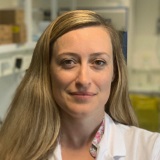
Laurie Menger, PhD, Researcher, Immunity & Cancer, Institut Curie

Laurie Menger is an INSERM immuno-biotechnologist. She is the group leader of the Advanced T-cell therapy team (ATIP-2022, U1015) at Gustave Roussy, the leading cancer center in Europe. She benefits from long expertise in high throughput screening strategies (Sci Transl Med 2012, patent WO2010EP55404), T cell therapy and engineering from UCL Cancer Institute and Institut Curie. She previously established clinically relevant protocols to KO immunosuppressive genes such as the glucocorticoid receptor in viral-specific T cells (Blood 2015). She was also the first to inactivate PD1 in tumor-infiltrating lymphocytes (Cancer Res 2016) to strengthen T-cell therapies. She established genome-wide engineering of primary T-cells to accelerate target discovery (STAR protocol 2023). With this systematic interrogation, her team identified SOCS1 as a major checkpoint inhibitor of CD4 T cells, whose inactivation restored CAR19 T cells persistence, composition and efficacy in vivo (Sci Immunol 2021). Her team recently interrogated genes providing T cells with resistance to allogeneic rejection in vivo for the widespread translation of T-cell therapy as a drug. They identified Fas as a major target and demonstrated that base-edited CD3/FAS-KO human CAR-T cells outperform CD3/B2M-KO CAR-T in resistance to both allo-T and NK cells mediated rejection (Nat. Biomed Engin, 2024, patent WO2022023576A1). This discovery challenges the current dogma of deleting B2M and will pave the way for rapid/easy/safe production of allo-CAR-T from healthy donors. Her team was the first in Europe to establish in vivo genome-wide CRISPR screens in primary T cells, developing a functional pipeline to systematically characterize target genes reprogramming T-cell functionality in complex immunosuppressive intercellular interactions recapitulating patient’s tumor microenvironment. They are now integrating additional developments in synthetic biology using genome-scale CRISPR activation editing, deciphering the regulators of CD4 antitumor immune responses (EP24305178.6), developing translational models with base-edited expanded tumor-infiltrating lymphocytes, combinatorial CAR therapies and targeted delivery of chromatin modifiers providing resistance to exhaustion.
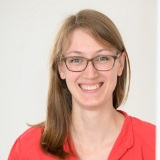
Katrin Mestermann, PhD, Scientific Project Manager, Fraunhofer Institute for Cell Therapy & Immunology IZI

Coming to Würzburg in 2009, I didn't expect to stay. After finishing my Master of Science in Biology in 2011, I got my PhD when working with Prof. Michael Hudecek on pharmaceutical control of CAR T cells using small molecule inhibitors. Since then, I have focused my work on manufacturing of CAR T cells and improvement of CAR T function. Being at the bridge between scientific research and clinical translation is highly motivating me. Thus, it is my pleasure to be part of the current establishment of a new group within the Fraunhofer Society for applied science in Würzburg, a journey that has just recently started in 2024.
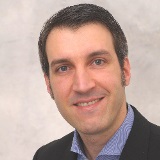
Erich Michel, PhD, Postdoctoral Researcher, Department of Biochemistry, University of Zurich

Erich Michel is a senior scientist in the Plückthun lab at the University of Zürich, where he develops and applies experimental and computational methodology for engineering and design of repeat proteins. In the lab of Kurt Wüthrich at the ETH Zürich, Erich was trained as a structural biologist and developed cell-free protein expression platforms for selective isotope labeling of proteins. Subsequently, he extended this platform to enable amino acid-specific segmental isotope labeling by combining cell-free expression and expressed protein ligation in the lab of Fred Allain. These tools were then applied to characterize self-assembly and peptide binding of Armadillo repeat proteins in the lab of Oliver Zerbe. Intrigued by the potential of Armadillo repeat proteins as modular peptide binders, Erich joined the lab of Andreas Plückthun, where he now leads the engineering and design of repeat proteins.
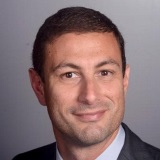
Mauro Mileni, PhD, Founder & CEO, Abilita Bio

Mauro is the founder of Abilita Bio, Inc. and inventor of its core EMP™ technology. He has gained significant experience over 20 years of conducting membrane protein research and contributing to industry drug discovery projects. Mauro has authored eighteen peer-reviewed scientific articles, including publications in Cell, Nature, PNAS, and JACS. He received his Ph.D. from the Max Planck Institute under Nobel laureate Prof. Hartmut Michel and carried out his postdoctoral studies as a Pfizer fellow in the Stevens lab at The Scripps Research Institute (TSRI), widely regarded as the world’s top lab for GPCR structural studies. Prior to founding Abilita Bio in 2014, Mauro worked as a Structural Biologist at Receptos, Inc. and has consulted for Eli Lilly & Company.
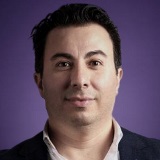
Juan Carlos Mobarec, PhD, Head Computational Structural Biology-Associate Director, Mechanistic and Structural Biology, Discovery Sciences, R&D, AstraZeneca, Cambridge, UK

Juan Carlos Mobarec, PhD, leads the computational structural biology design at AstraZeneca in Cambridge, UK. He guides the development and application of advanced technologies for novel targets across multiple therapeutic areas. His industry experience spreads across collaborations with other pharma companies, technology start-ups, academics, and also establishing high-performing teams. With a proven track record of developing and applying innovative AI and ML technologies, he has previously held senior research positions at BenevolentAI, Heptares Therapeutics, and the University of Essex. He earned his PhD in computational biology in an NSF-sponsored interdisciplinary doctoral program between the Icahn School of Medicine at Mount Sinai and the Courant Institute of New York University in the USA. He has published innovative and influential cross-collaborative articles in high-impact peer-reviewed journals, including Cell, Nature, EMBO Journal, etc.

Anna Moberg, Sr Manager Biacore Applications & Consumables, RnD Biacore System, Cytiva Life Sciences

After studies in analytical chemistry at Uppsala University in Sweden, Anna Moberg joined Biacore RnD in 1998 working with system, application and consumables development for Biacore systems. With more than 25 years of experience with Biacore systems, her work has resulted in numerous products and applications. Currently she holds a position as Senior manager at Cytiva RnD in Uppsala, Sweden responsible for Biacore applications and consumables. Anna is also heading the Biacore Market Support team focusing on customer collaborations and generating marketing and training materials.

Kiana Mohajeri-Stickels, Head of Synthetic Biology, Synthetic Biology, Prolific Machines

Kiana Mohajeri-Stickels leads synthetic biology and platform development efforts at Prolific Machines, including overseeing pre-product projects with early research partners for the production of difficult-to-produce therapeutics. Prior to Prolific, she served as a lead scientist and the first employee, at a stealth-mode startup, where she drove high-throughput screen-based experiments for development of a novel genome engineering nuclease. As a PhD student, Kiana designed, led, and executed multi-disciplinary functional genomic studies at Massachusetts General Hospital and Broad Institute, utilizing iPS-derived neural CRISPR models to understand genic and non-coding molecular mechanisms underlying neurological disease. She earned her PhD from Harvard University in Biological and Biomedical Sciences with a focus in Genetics and Genomics as a NSF GRFP Fellow
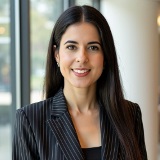
Dana Moreno Sanchez, Protein Expression Scientist, Alchemab Therapeutics

Dana is a senior scientist with over eight years of experience specialising in therapeutic antibody discovery and development, having worked at leading biotechnology companies including Kymab, Sanofi, and currently, Alchemab. With a wealth of expertise spanning all stages of antibody production, she has dedicated her career to developing agile and novel expression platforms tailored specifically to the dynamic needs of small biotechs and is now applying her skills and experience to cell based assay development. Holding a Master’s degree focused on innovative expression platform technologies, Dana is passionate about advancing efficient, flexible solutions that accelerate the progression of antibodies from discovery through to clinical development

Andre Mueller, Marketing Mgr, Biologics Solutions, Unchained Labs

Andre is the Marketing Manager for Biologics Solutions at Unchained Labs supporting the development of new biologic and gene therapy drugs. His expertise covers fluorescence, static light scattering, and dynamic light scattering for biophysical characterization of proteins and viral vectors. His research experience spans from structural biology to plant physiology and across labs in Germany, Sweden, Denmark, and the USA. Andre earned his PhD at the Carlsberg Laboratory and had a post-doc appointment at Stanford University.
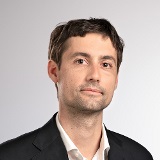
Yannick Muller, PhD, Assistant Professor, Allergology & Innovative Immunological Therapies, CHUV

Yannick Muller (YDM) is a clinician-scientist, i.e. an MD-PhD specialist FMH (Foederatio Medicorum Helveticorum) in clinical immunology and allergy (2016) and general internal medicine (2017). Since 2020, YDM is working as “médecin cadre” and head of the allergy unit at the division of immunology and allergy of the CHUV. In June 2021, YDM was appointed Assistant Professor at the Faculty of Biology and Medicine of the University of Lausanne become affiliated to the Center of Human Immunology at Lausanne (CHIL). In 2022, the CHIL was nominated as a new FOCIS (Federation of Clinical Immunology Societies) center of excellence. Yannick Muller is the director of this new focus center of excellence. His laboratory is primarily focused on precision gene editing and redirecting human regulatory T cells for autoimmune and allergic diseases.
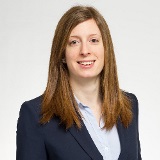
Patrizia Murer, PhD, Head, Protein Engineering, Anaveon AG

Patrizia Murer is Head of Protein Engineering and Project Leader at Anaveon, where she focuses on the design and development of novel immunotherapies. Patrizia holds a PhD from ETH Zürich, where she worked on antibody-cytokine fusion proteins for immunooncology.
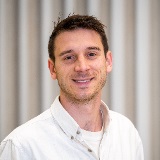
Ferran Nadal-Bufi, PhD, Postdoctoral Research Fellow, Centre for Inflammatory Research, The University of Edinburgh

Dr. Ferran Nadal-Bufi completed his undergraduate and master's studies in Barcelona, Spain. In 2017, he moved to Brisbane, Australia, to pursue a PhD at the Queensland University of Technology and the University of Queensland under the supervision of Sonia Henriques and David Craik. After a brief postdoctoral position at UCLouvain in Brussels, Belgium, he moved to Edinburgh, UK, in 2023 to join Marc Vendrell’s lab at the University of Edinburgh. His research focuses on advanced therapeutics, including peptides, proteins, and antibodies, with a particular emphasis on cellular delivery. He is currently developing fluorescent tools to guide the rational design of Antibody-Drug Conjugates (ADCs).
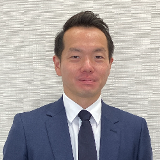
Shusuke Nambu, PhD, Chief Scientist, Analytical Development Department, Chugai Pharmaceutical Co. Ltd.

Shusuke Nambu is a biochemical scientist with ten years of experience working in Chugai. Shusuke specializes in structural characterization of bio-pharmaceutical product in CMC, especially using mass spectrometry, and also is responsible for CQA assessment. Before his joining Chugai, Shusuke worked as an assistant professor in a university and characterized structure of proteins and enzymatic activities using X-ray crystallography and several spectroscopy such as resonance Raman and electron paramagnetic resonance.
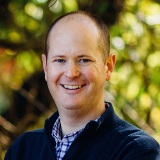
David P. Nannemann, PhD, Vice President, Rosetta Commons Foundation

David is an expert in protein engineering and computational design, with extensive experience applying AI-driven modeling tools in an industry setting. He serves as Vice President of the Rosetta Commons Foundation and Industry Chair on the Rosetta Commons board, helping bridge academic advancements with industry applications. As Managing Member of Rosetta Design Group, he collaborates with companies of all sizes to tackle complex challenges in biologics design. David's deep expertise in leveraging cutting-edge tools like Rosetta, AlphaFold, and diffusion-based models for protein design make him an invaluable guide for participants looking to apply AI-driven biologics design in real-world settings.

Horacio G. Nastri, PhD, Vice President, Protein Science and Technology, Incyte Corporation

Dr. Nastri is currently the VP of Protein Science and Technology at Incyte Corp. His group is responsible for end-to-end discovery and engineering of monoclonal and bispecific antibodies for oncology applications. His group uses both immunization, as well as display approaches for the generation of lead molecules, which are further optimized by a combination of in vitro and in silico approaches. Dr. Nastri started his career in the antibody field at Dyax Corp., where he developed and co-invented key technologies utilized to build the Dyax Fab libraries. He then headed the Antibody Technologies group at EMD Serono, where he implemented new approaches for selecting antibodies by single cell B-cloning and phage display. He became an Inventor of Avelumab, a clinical-approved anti PD-L1 antibody. He joined Pfizer CTI as a Biotherapeutic Site Head in NY, where he collaborated with local academic leaders to enable and advance novel therapeutic programs. During his career, Dr. Nastri became an inventor of multiple antibody therapeutic molecules and antibody discovery enable technologies, while participating in a number of projects resulting in IND applications.
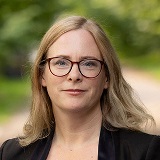
Marika Nestor, PhD, Professor, Immunology, Genetics, and Pathology, Uppsala University

Marika Nestor is a Professor in Biomedical Radiation Sciences at Uppsala University, Sweden. She obtained her PhD in 2006 at Uppsala University, and heads a translational research group since 2007, focusing on creating and optimizing cancer-targeting radiopharmaceuticals and radiosensitizers. Her group has created and characterized several novel radioconjugates, one if which is currently pursued towards clinical translation. Prof. Nestor, honored with awards like the Senior Investigator Award and the Attractive Innovation Award, receives support from prestigious organizations like The Sjöberg Foundation, Sweden’s innovation agency VINNOVA, The Swedish Cancer Society, Eurostars, and The Swedish Research Council.

Miroslav Nikolov, PhD, Senior Scientist & Laboratory Head, Roche Pharma Research and Early Development pRED, Roche

Miroslav grew up in Bulgaria, and before joining Roche in 2017, he spent multiple years working on mass spectrometry-based proteomics approaches, protein biochemistry and lab automation. At the mass spectrometry department in Large Molecule Research (LMR) at Roche Innovation Center Munich (RICM), he leads an MS lab, focused on automation, data management and software. Besides that, his lab and department cover MS analytics and are responsible for characterization of molecules from early research to entry into clinical development. Outside of work, he gets excited about music, technology innovation, gadgets and fast cars.
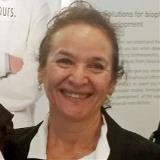
Ahuva Nissim, PhD, Professor Emeritus, Antibody and Therapeutic Engineering, William Harvey Research Institute, Queen Mary University of London

Graduated in Molecular Immunology in 1992 from the Weizmann Institute of Science in Israel and was trained as a postdoctoral fellow at the MRC Centre for Protein Engineering in Cambridge until 1995. During this period she developed phage display semi-synthetic human antibody library, the so call ‘Nissim’ library which has been used worldwide. In November 2000 was appointed at Queen Mary University. My studies are interdisciplinary and involve translational research at the William Harvey Research Institute and with intensive worldwide collaborations. My studies have been mostly focused on the mechanisms that lead to the formation of disease tissue-specific pathogenic post-translationally modified proteins and the exploitation of identified pathogenic proteins to develop platform technologies for novel disease - and tissue-specific, diagnosis and targeted treatment.
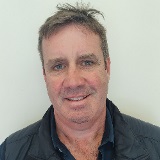
David O’Connell, PhD, Associate Professor, Biomolecular & Biomedical Science, University College Dublin

I am a research scientist who is deeply fascinated by the behaviour of proteins in cells, in living systems and in recombinant engineered systems. The junction of biology, chemistry and physics is of particular interest to me and is manifest in my many collaborative relationships in Europe and the US. I am also a Science Foundation Ireland funded investigator with BEACON, the Bioeconomy Research Centre, that enables me to use my expertise in protein engineering to drive creation of value in the circular economy, ensuring that excellent science creates products and technologies with sustainable properties, and to further enhance the reputation of UCD as Ireland’s number one university.
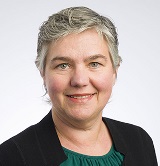
Olga Obrezanova, PhD, AI Principal Scientist, Biologics Engineering, Oncology R&D, AstraZeneca

Dr. Olga Obrezanova is a Principal Scientist in the Augmented Biologics Design group at Biologics Engineering, AstraZeneca, based in Cambridge, UK. With 20 years of experience, Olga specializes in applying machine learning & artificial intelligence and developing computational tools for biologics and small molecules drug discovery. Her work is focused on preclinical immunogenicity assessment of biologics and advancing in silico approaches for predicting immunogenicity and developability.

Sochi Ogbonna, PhD, Researcher, Manufacturing Technology Association of Biologics

Sochi Ogbonna earned her PhD in Engineering from the University of Osaka, Japan, in 2024. Following the completion of her doctorate, she joined the Manufacturing Technology Association of Biologics as a researcher, where she works on the analysis of cellular proteins using mass spectrometry. Concurrently, she is undertaking a postdoctoral fellowship at the Biochemical Engineering Laboratory, the University of Osaka.
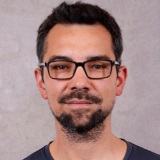
Diego A. Oyarzun, PhD, Reader in Computational Biology, Informatics Forum, University of Edinburgh

Diego Oyarzún is a Reader in Computational Biology at the University of Edinburgh. He leads a research team at the interface of biology and computation, with a focus on AI-powered discovery and decision support systems for biomedicine and biotechnology. Diego is Fellow of the Royal Society of Biology and the Alan Turing Institute, the UK's national institute for AI and data science. He has received awards from the World Economic Forum and the G20 for his work at the interface of data science and biotechnology. His work relies on techniques drawn from control theory, optimisation, network science, and machine learning, to understand the structure and function of biological processes, with applications in synthetic biology, drug discovery, and fundamental science.
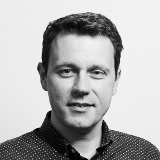
Marcin Paduch, PhD, Vice President, Head of Platform Biology, Metaphore Biotechnologies

Marcin is the Head of Platform Biology at Metaphore. He is a trained structural biologist and protein engineer bringing a passion for blending multidisciplinary science and technology. Marcin has a long track record of innovation and has led diverse teams in high-impact research collaborations, formulating successful strategies for drug discovery campaigns, and fast-tracked preclinical development. He has developed several high-throughput, data-driven drug discovery platforms, ranging from biotherapeutics, including cell therapies, to small molecules. Before joining Metaphore Bio, Marcin served as an Executive Director at Xilis, where he developed workflows for drug screening and mechanism of action optimization in organotypic cell culture and patient-derived tumor organoids. Before that, he led technology development efforts at Arsenal Bio, the first programmable cell therapy company, advancing logic gate CAR-T programs through the clinic, System1 neuroscience startup developing therapeutics in cerebral organoid models reinventing neuro drug discovery, and Grail, where he worked on developing the Galeri multicancer early detection test, which is expected to dramatically improve the current paradigms of cancer diagnostics and management. Before working in startups, Marcin spent nearly a decade as a director serving multiple industrial consortia and developing a portfolio of next-generation, antibody-based cancer therapies backed by major pharma companies. Marcin holds a PhD from the University of Wroclaw in biochemistry and molecular biology and a Master of Science in biotechnology.
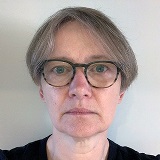
Monika Papworth, PhD, Principal Scientist, Biologics Engineering, AstraZeneca

Following a PhD in Molecular Biology from the University of Manchester in 1995, Monika joined the Marie Currie Research Institute, where she worked on viral transcription factors. In 1998 she moved to MRC LMB Cambridge to continue working on DNA-binding proteins based on designer zinc fingers with Sir prof Aaron Klug. Having joined Cambridge Antibody Technology/AZ in 2006 Monika has been working in Biologics Engineering, developing new technologies and candidate therapies in the areas of oncology and cardiovascular and metabolic diseases.
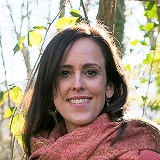
Galatea Paredes, PhD, Associate Director, Technology Project & Portfolio Management, T Charge Cell Therapies, Novartis Pharma AG

Galatea Paredes has over 14 years of experience in Pharma Development, working with both small molecules and cell therapies. Currently serving as the Associate Director of Technical Project & Portfolio Management at Novartis Pharma, she has successfully led global cross-functional teams and managed complex projects in the field of autologous cell and gene therapies. Known for her strategic communication skills and innovative approaches, she holds a Doctorate in Process Engineering from ETH Zurich.

Paul Parren, PhD, CSO, Gyes; Professor, Molecular Immunology, Leiden University Medical Center

Professor Dr. Paul W.H.I. Parren is a pioneer in translating antibody knowledge into innovative biologic drugs for treating human diseases. He holds a PhD in molecular immunology from the University of Amsterdam (1992). Dr. Parren was an Associate Professor at The Scripps Research Institute in La Jolla, California. From 2002-2017, he led research and preclinical development at Genmab, and from 2018-2023, he headed R&D at LAVA Therapeutics NV, bringing it to a clinical-stage, NASDAQ-listed, biotechnology company. His work contributed to nine FDA and EMA-approved therapeutic antibodies (incorporated in eleven antibody products), including four therapeutics from the DuoBody bispecific antibody platform. His scientific publications have >42,000 citations (h-factor 107) and he holds >360 issued patents in US, EU and JP. He is a tenured Professor of Molecular Immunology at the LUMC in Leiden, chairs the Board of Directors of the non-profit trade organization The Antibody Society, and provides independent drug development advice through Sparring Bioconsult BV. He recently cofounded Gyes BV (2022), Moirea BV and Olethros BV (2024), an ecosystem of start-up companies pioneering the development of highly selective multifunctional therapeutic antibodies.
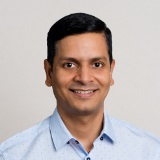
Vijaya Pattabiraman, PhD, Co-Founder & CTO, Bright Peak Therapeutics

Vijaya Pattabiraman is a Co-founder of Bright Peak Therapeutics and serves as Chief Technology Officer. Dr. Pattabiraman has made seminal contributions to Bright Peak’s technology and brings in extensive expertise and know-how in small molecules, peptides and biologics. He has more than 15 years of experience across modalities for academic and translational research. He is co-inventor on multiple patents and has co-authored several peer-reviewed publications, book chapters in the field of chemical protein synthesis, peptide antibiotics and small-molecules therapeutics. Dr. Pattabiraman has fostered many academic and biotech collaborations and leads a multi-disciplinary global team.
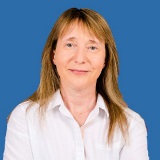
Sofie Pattyn, Founder & CTO, IQVIA Laboratories

Sofie Pattyn, CTO and founder of ImmunXperts, has over 20 years of experience in the field of immunogenicity assessment (vaccines and biotherapeutics) and in vitro assay development with a focus on functional assays for immunogenicity, immune oncology, and cell and gene therapy products. She has extensive hands-on lab experience and has managed and coached several in vitro teams over the last decade. From 2008 until 2013, she was Head of the in vitro Immunogenicity group at AlgoNomics (Ghent, Belgium) and Lonza Applied Protein Services (Cambridge, UK). Prior to that, she worked at Innogenetics in Belgium for over 15 years.
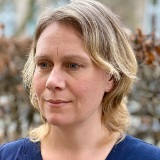
Marie østergaard Pedersen, PhD, Principal Scientist, R&D, Novo Nordisk AS

I have been working at Novo Nordisk A/S for 13 years with biophysics as speciality. I have had a particular focus on peptides used to treat patients with diabetes and obesity. In current years, my focus has been expanding from instrumentation and methods towards developing seamless dataflows enabling FAIR data for ML/AI integration. https://dk.linkedin.com/in/marie-%C3%B8stergaard-pedersen-62348b2

Mikkel W. Pedersen, PhD, CEO & CSO, Commit Biologics ApS

Mikkel is an experienced human biologist with 20 years of expertise in biologic drug discovery and development. He holds a PhD in Cancer Biology from the University of Copenhagen and has a comprehensive background in antibody-based drug discovery and development within therapeutic areas such as oncology, autoimmune diseases and infectious diseases. He has extensive knowledge of the entire drug discovery process, from target identification and lead selection through pre-clinical development and clinical evaluation. He has played pivotal roles in bringing more than 10 different therapeutic programs from ideation through to clinical development. Mikkel has held senior leadership positions, most recently serving as Chief Scientific Officer (CSO) for Nykode Therapeutics, and before that serving as CSO for Symphogen in Denmark. His strong national and international scientific network extends across academia and industry. Mikkel is also a co-author of over 40 peer-reviewed publications.
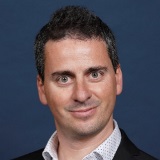
Mario Perro, PhD, Head of Biologics Research, Ichnos Glenmark Innovation

Mario Perro has worked in the field of oncology and cancer immunology since 2006. First focusing on Adoptive T cell transfer for the treatment of Acute Myeloid Leukaemia (AML), in 2015 Mario redirected his studies in the development of bispecific checkpoints and T cell engagers at Roche. Among many drug molecules evaluated, Mario contributed to the characterisation of Glofitamab and the development of Artificial Intelligence approach to investigate Tumour Microenvironment modification induced by a CEA targeted TCE in combination of checkpoint inhibitors. At present, Mario is heading the Biologic Research at IGI, focusing on next-generation multi-specific antibodies such as ISB 2001, a BCMAxCD38xCD3 T cell engager.
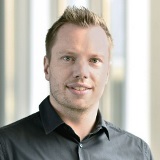
Martin Pflügler, PhD, CEO, TWYCE GmbH

Martin Pflügler holds a PhD in Immunology from the University of Tuebingen and worked as postdoc at the German Cancer Research Center (DKFZ) and in the lab of Gundram Jung. He is engaged in discovery, development, and production of bispecific antibodies for more than 10 years and is inventor on several patents describing novel bispecific constructs and current clinical candidates for immunotherapy of cancer.CEO, TWYCE GmbH
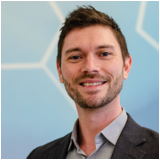
Nick Pittman, Senior Marketing Manager, Waters

Nick Pittman has over 20 years of experience with mass spectrometry and liquid chromatography, and specializes in the application of Waters’ analytical solutions for biopharmaceutical analysis
Having worked with Waters for 12 years across several roles, Nick has experience in many business and application areas. Before joining Waters, he spent 10 years in the Pharmaceutical industry, working on LC and LC-MS for drug development at Pfizer, UK

Mary Ann Pohl, Dir Alliance Mgmt, Alliance Mgmt, Ailux Biologics by XtalPi

Mary Ann Pohl joined Ailux Biologics in 2023 as an Alliance Manager, serving as a technical liaison between external partners and internal scientific teams. Prior to Ailux, Dr. Pohl was Director of Antibody Discovery at Molecular Templates and Associate Director, Antibody Generation at the Tri-Institutional Therapeutics Discovery Institute in New York City. With over 14 years of experience in antibody discovery, she has built multiple functional teams and labs from the ground up. Dr. Pohl completed a postdoc fellowship at Albert Einstein College of Medicine, received a PhD and MS in Microbiology from New York University School of Medicine, and holds a BS in Biological Sciences from Cornell University.
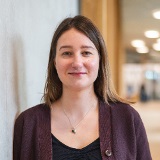
Ryte Poskute, Senior Scientist, Analytical Sciences, AstraZeneca

Ryte Poskute is a Senior Scientist in the BioPharmaceuticals R&D department group at AstraZeneca, Cambridge, UK. With a strong background in Analytical Science of Biopharmaceuticals, Ryte contributes to process development of platform mAb and complex biological molecules by playing a pivotal role in analytical method development and characterization activities.

Arnaud Poterszman, PhD, Research Director, Integrated Structural Biology, IGBMC

After studying at ENS Cachan (now Paris-Saclay), Arnaud Poterszman completed his PhD from Strasbourg University and joint the CNRS one year later. He holds a Research Director position and performs his studies in the Department of Integrated Structural Biology at IGBMC, Illkirch France. He has a dual expertise in Structural and Molecular biology with insights on expression technologies and sample preparation. His research is focused on eukaryotic multi-protein complexes involved in transcription regulation and DNA repair by nucleotide excision, particularly, the transcription/DNA repair factor TFIIH and its partners (Orchid 0000-0002-6702-5777)

G. Jonah Rainey, PhD, Associate Vice President, Eli Lilly and Company

Jonah Rainey holds a PhD in Biochemistry from Tufts University and completed postdoctoral training at the University of Wisconsin and the Salk Institute. He has engaged in discovery, research, and development of bispecific antibodies for more than 15 years. He is an inventor on several patents describing novel bispecific platforms and current clinical candidates that exploit these platforms as well as an author on almost 30 publications. Jonah contributed to research and early development leading to multiple clinical candidates from Phase I and through approved products and led many advanced preclinical programs in oncology, infectious disease, autoimmunity, and other therapeutic areas. Previous industry experience includes MacroGenics, MedImmune/AZ, Oriole Biotech, Gritstone Oncology, and Alivamab Discovery Services. Currently, Jonah is a Senior Director in Protein Science at Eli Lilly & Co.
- Engineering Antibody-Drug Conjugates
- Machine Learning for Protein Engineering Part 1
- TS2: Introduction to Multispecific Antibodies: History, Engineering, and Application
- Innovative CAR Therapy
- Emerging Targets for Oncology & Beyond
- Advancing Multispecific Antibodies and Combination Therapy to the Clinic
- Analytical Characterisation of Biotherapeutics
- Optimising Expression Platforms
- Engineering Antibodies & Beyond
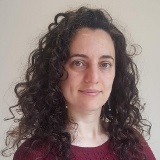
Chiara Rapisarda, PhD, Group Leader, Sanofi

Dr. Chiara Rapisarda is a structural biologist and Group Leader in cryo-electron microscopy (cryo-EM) at Sanofi in Paris. With a PhD from King's College London, she has conducted postdoctoral research at Harvard Medical School and the Pasteur Institute. Dr. Rapisarda has made significant contributions to understanding bacterial secretion systems and is currently focused on applying cryo-EM to accelerate drug discovery.
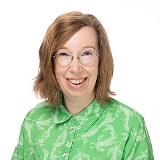
Kim Remans, PhD, Head, Protein Expression & Purification Core Facility, EMBL Heidelberg

Dr. Kim Remans joined EMBL Heidelberg in July 2015 and is in charge of the Protein Expression and Purification Core Facility. Before that, she worked as a postdoctoral researcher in the group of Prof. Dr. Alfred Wittinghofer in the Max Planck Institute for Molecular Physiology in Dortmund (Germany). Her main research topic was the structural and functional characterization of ciliary transition zone proteins involved in different genetic diseases. Dr. Remans holds a PhD in Bioscience Engineering from the Free University of Brussels (Belgium). During her PhD research she studied different aspects of the lipoprotein transport pathway in the opportunistic pathogen Pseudomonas aeruginosa. Dr. Remans obtained her master degree in Bioscience Engineering from the Free University of Brussels (Belgium). In this master program, the emphasis was on cellular and genetic biotechnology and how to apply these techniques in different research fields.

Diane Retallack, PhD, President & COO, Primrose Bio

Diane Retallack, PhD was a founding member of the team that established the Pfenex Expression Technology® platform, overseeing strain engineering, HTP screening, and upstream development. With over 25 years of experience in molecular biology, protein expression, and executive management, she has contributed to multiple therapeutic programs from product conception through commercialization. Diane completed her doctorate at the University of Michigan and post-doctoral work at the University of Wisconsin-Madison.
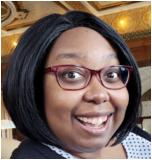
Crystal Richardson, Sr Business Partnership Mgr, Gene Synthesis, GENEWIZ from Azenta Life Sciences

Crystal brings over eight years of expertise in antibody discovery and protein engineering, offering tailored technical guidance to ensure seamless transitions from pilot projects to large-scale, high-throughput (>1,000) antibody production.
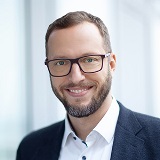
Fabian Richter, PhD, Director, Immatics Biotechnologies GmbH

Fabian was inspired by the sequence-structure-function relationship of immunoglobulin domains since first encountering immunology. He received his training in antibody engineering at the University of Stuttgart where he significantly contributed to the development of a novel monovalent TNFR1 inhibitory antibody - currently in clinical development - during his Ph.D. and post-doc. Fabian joined Immatics in 2019, committed to learn more about immunoglobulin domains in the context of T cell receptors (TCRs). He now leads the TCR & Bispecifics Development Department at Immatics.
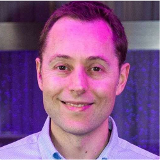
Nathan Robertson, PhD, Scientific Director, Biologics Discovery & Development, LifeArc

Nathan is Director of the Biologics Discovery and Development team at LifeArc, focusing on delivering antibody therapeutics and bridging the gap between early phase discovery to the clinic. Nathan’s previous roles were Director at LabGenius focused on the discovery and engineering of T-cell engagers using AI/machine learning to generate non-intuitive antibody designs for immune-oncology, following a role as Head of Antibody engineering at MiroBio discovering antibody agonists against checkpoint receptors for autoimmune diseases. Prior to this Nathan lead the Antibody Discovery team at OXGENE developing a proprietary mammalian display to screen naïve antibody libraries against integral membrane proteins and 11 years at Heptares Therapeutics engineering and facilitating/solving the atomic structures of GPCR co-ligand complexes by x-ray crystallography.

Marc S. Robillard, PhD, CSO & Founder, Tagworks Pharmaceuticals

Marc Robillard, CSO & founder of Tagworks Pharmaceuticals. Marc is founder and CSO of Tagworks, a pioneer of in vivo click chemistry, and the inventor of the now widely used Click-to-Release approach for improved systemic therapies. He spun the technology out of Philips Healthcare and then drove its development into a broadly applicable platform technology for systemic therapies, while building a broad IP estate, productive partnerships, and a strong team and blue-chip investor base. At Philips Marc worked on molecular imaging and drug delivery programs, eventually focusing on in vivo click chemistry applications in these domains. Prior to Philips, he worked at Kreatech Diagnostics on the development of probes for microarray-based detection of DNA, RNA and proteins. In addition, he was a visiting scientist at the School of Biotechnology and Biomolecular Sciences, University of New South Wales, Sydney. Marc obtained his MSc and PhD in bio(in)organic chemistry at, respectively, the University of Groningen and the Leiden Institute of Chemistry, The Netherlands. He has published 41 peer-reviewed papers and is a co-inventor on 22 patents.
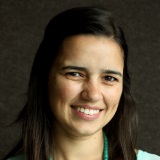
Margarida Rodrigues, Global Apheresis Technical Steward CGT, Novartis Pharma Stein AG

With over 15 years of experience in the biopharmaceutical industry, I bring a wealth of expertise in the development, production, and commercialization of Cell and Gene Therapy (CGT) products. My career has been marked by a deep commitment to advancing patient outcomes, leveraging proven project management and leadership capabilities to drive results and overcome complex challenges. Thriving in collaborative, cross-functional environments, I am known for my ability to resolve issues, foster innovation, and deliver meaningful progress in the dynamic and rapidly evolving field of CGT. As the industry continues to unlock groundbreaking possibilities, I remain passionately focused on contributing to transformative therapies that make a profound impact on patients’ lives.
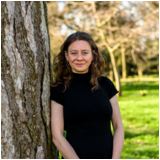
Lurdes Rodrigues-Duarte, Director of R&D, Isogenica Ltd

With over 20 years of experience in in vitro and in vivo pre-clinical immunology research, Lurdes has explored numerous clinically relevant areas such as autoimmunity, cancer and infectious diseases. Over the past decade, she has leveraged her academic extensive experience in the field of antibody discovery, including in the development of the world’s first clinically effective oral biologic for inflammatory bowel disease. Leading Isogenica’s R&D team, she pioneers the development of new technologies suited to the testing and development of successful clinical candidates.
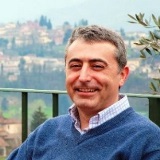
Giuseppe Roscilli, PhD, CTO & Director, Drug Evaluation & Monoclonal Antibody, Takis Srl

Giuseppe Roscilli is a distinguished biotechnologist and Partner, serving as Chief Technology Officer (CTO) at Takis Biotech in Rome, Italy. Dr. Roscilli specializes in monoclonal antibody research and immune-oncology. He holds a PhD in Molecular Medicine from the University of Rome "La Sapienza," where he focused on drug resistance mechanisms and patient chemosensitivity. Dr. Roscilli has a rich background in antibody development. At IRBM (Merck&Co), he worked n voious fields from Monoclonal antibody development, to gene therapy and small molecule development where he was instrumental in identifying the PARP-1 inhibitor Niraparib, now used for treating ovarian cancer. At Takis Biotech, he initially directed the Drug Evaluation and Monoclonal Antibody Department, leading a team in generating and characterizing novel antibodies. Now, as CTO, he oversees strategic research projects and the integration of new technologies. His work emphasizes bispecific antibodies and T-cell engagers for cancer therapy. Dr. Roscilli has authored over 50 peer-reviewed papers and holds several patents in antibody and vaccine technologies.

Thomas Rose, Head of Expression Systems, Pharmaceutical Cell Lines, ProBioGen AG

Thomas Rose, PhD, is Head of Expression Systems at ProBioGen. He received his MSc in Biotechnology from the University of Applied Science in Berlin, his PhD in Biochemistry from the Free University of Berlin and joined ProBioGen in 2001. His work focuses on cell line development and expression technologies for protein drugs. He was instrumental in establishing the Freedom™ CHO-S™ Kit, as well as ProBioGen’s CHO.RiGHT® platform, Pathway Modulator and DirectedLuck® technologies. He also has extensive experience in cell line development for a variety of complex proteins.
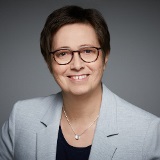
Christine Rothe, PhD, Chief Development Officer, iOmx Therapeutics AG

Christine Rothe serves as Chief Development Officer at iOmx Therapeutics where she is responsible for research and development programs. Christine has a track record in discovery and development of drug candidates. Before joining iOmx, Christine held positions of increasing responsibility in R&D and Alliance Management at Pieris Pharmaceuticals and MorphoSys AG. At Pieris, Christine played a major role in shaping the drug discovery process and bringing bispecifics from the start of the program into the clinic. Christine started her industry career at MorphoSys leading technology development as well as therapeutic antibody projects.
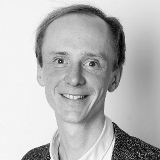
Peter Rugbjerg, PhD, Lecturer, Chalmers University; CSO and Founder, Enduro

Peter is a bioengineer and entrepreneur, with PhD and postdoc training from Techn. Uni. of Denmark and Chalmers. Founder of Enduro and today serves as CSO, overseeing R&D and implementation projects.
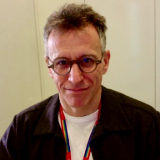
Alberto Sanchez Fueyo, PhD, Professor, Hepatology, Inflammation Biology, Kings College London

Alberto is a Professor of Hepatology, Deputy Director of the Roger Williams Institute of Liver Studies at Kings’ College London, and Honorary Transplant Hepatology Consultant at King’s College Hospital. His research has focused on understanding the mechanisms of immunological tolerance in transplantation and developing novel immunomodulatory therapies, for which he has received funding from MRC, NIHR, NIH and EU, among others. Additional research interests include the generation of genetically engineered regulatory T cells for immunotherapeutic purposes, which is now being pursued in collaboration with Quell Therapeutics, a King’s spin-off biotech which he contributed to found in 2019.
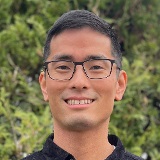
Kei Saotome, PhD, Senior Principal Scientist, Structural Biology, Regeneron

Kei Saotome obtained his PhD at Columbia University, where he conducted X-ray crystallography studies of TRP ion channels in the lab of Dr. Alexander Sobolevsky. He carried out his postdoctoral training at Scripps Research as a Jane Coffin Childs Fellow in the labs of Drs. Andrew Ward and Ardem Patapoutian, using cryoelectron microscopy (cryoEM) to investigate molecular structures of Piezo1 and other membrane proteins. He has been at Regeneron Pharmaceuticals since 2019, where he focuses on using structural biology to help discover and characterize antibody-based drugs.
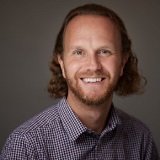
David B. Sauer, PhD, Principal Investigator, Membrane Protein Structural & Chemical Biology, University of Oxford

David Sauer is a biophysicist focusing on the structure and function of membrane channels and transporters. As group leader at the University of Oxford since 2021, he has been studying the structure and function of membrane proteins for 20 years. David completed his graduate degree studying potassium channel structure and ion selectivity with Youxing Jiang at the University of Texas Southwestern Medical Center. This was followed by postdoctoral training with Da-Neng Wang at New York University School of Medicine. There he described the structure, transport mechanism, and chemical inhibition of SLC13/DASS membrane transporters. Since joining the Oxford's CMD, David had lead a group studying membrane proteins' function, pathogenesis, and chemical targeting by small molecules. This has resulted in the first detailed study of proline import by the transporter SIT1, and its complex with the SARS-CoV2 (COVID-19) receptor ACE2. His group has also revealed the ping-pong reaction mechanism, and product-bound inhibited state of the ceramide synthase CerS6. Finally, in a collaborative study, David's group revealed the substrate binding and transport triggers for SPNS2, which exports the immunoregulatory sphingosine-1-phosphate.
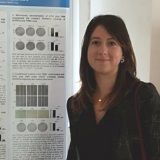
Arianna Scagliotti, PhD, Senior Scientist, Etcembly

Arianna is a Senior Scientist in Preclinical Research at Etcembly, a biotech company developing AI-designed TCR-based immunotherapies. She is responsible for the in vitro validation of T cell engager candidates, focusing on their efficacy, specificity, and safety. Arianna earned her PhD in Translational and Molecular Medicine from the University of Milano-Bicocca in 2021, where she studied the mechanisms underlying metronomic chemotherapy in triple-negative breast cancer.
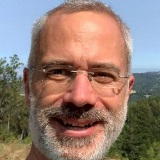
Tilman Schlothauer, PhD, Senior Principal Scientist, Roche Diagnostics GmbH

Tilman Schlothauer joined Roche in 2004 as a postdoc in the Department of Biochemistry. He studied chemistry at the University of Marburg. He started his PhD at the University of Freiburg at the Institute for Biochemistry and Molecular Biology and finished it at the Center of Molecular Biology Heidelberg (ZMBH) in 2004. Since 2006, Tilman has been in a group leader position in the Department of Biochemical and Analytical Research and since 2008, also Project Leader in the Technology Project Immune Effector Functions. During this time several new analytical tools have been developed such as SPR assays and affinity columns that supported BLA of GAZYVA in 2014. In addition Tilman was the co-inventor of the LALAPG mutation that is now used in 18 clinical projects. In the Group Leader position he developed cell-free functional assays for therapeutic protein characterization with respect to target binding and Fc functionality of mAb type therapeutics. In the current Matrix Scientist role Tilman is supporting pRED portfolio projects and coordinating the analytical activities from Li to EiH.

Stefan Schmidt, CEO, evitria AG

Dr. Stefan R. Schmidt MBA, is CEO at evitria AG, a company dedicated to preclinical antibody production services in Zürich after leading operations at BioAtrium AG, a joint venture of Lonza and Sanofi in Visp, Switzerland as COO. Previously he held the position as CSO and other senior executive roles at Rentschler Biopharma, Germany with overall responsibilities for biologics development and manufacturing. Before that, he was CSO at ERA Biotech in Barcelona, Spain, directing the company’s R&D efforts based on fusion proteins. Prior to that, he worked at AstraZeneca in Sweden where he led the unit of Protein Sciences within Global Protein Science & Supply as Associate Director. He started his leadership career more than 25 years ago at Biotech companies in Munich, Germany where he built up protein biochemistry teams for Connex and GPC-Biotech. He holds a PhD in Biochemistry from the Julius Maximilians University in Wuerzburg, Germany and an MBA from the University in Gävle, Sweden
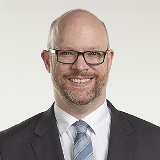
Dominik Schneider, PhD, Senior Manager, R&D Enabling Technology, CSL Behring Innovation

Dr. Dominik Schneider is a science and technology leader specializing in bridging research and innovation with advanced technological solutions. He holds a degree in Bioengineering and earned a PhD in Biochemistry with Summa Cum Laude honors from Martin Luther University of Halle-Wittenberg. Starting his career in protein production and engineering, he transitioned into industry roles focused on lab automation and digital transformation. Currently, as Senior Manager of R&D Enabling Technology at CSL Behring, he leads global initiatives to drive digital transformation, advance cross-functional research, and develop scalable, data-driven solutions that support efficient and future-ready R&D across complex international scientific environments.
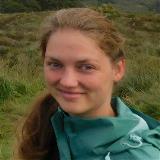
Maren Schubert, PhD, Junior Research Group Leader, Virus-Like-Particle Based Technologies, Helmholtz Center for Infection Research

Maren Schubert studied biotechnology at the TU Braunschweig. Afterwards she did her PhD at the Helmholtz Center for Infection Research (HZI), optimizing recombinant protein expression in insect cells and developing a fast baculovirus-free expression method. The following two years she was head of the recombinant protein production facility at the Rudolf Virchow Center in Würzburg, expressing and purifying challenging target proteins. In 2018, she joined the lab of Prof. Stefan Dübel at the TU Braunschweig starting her own group mainly working on antigen and antibody expression in insect cells. Here she established baculovirus-free virus-like-particle expression in insect cells for antibody development and screening. Now she she heads the group of Virus-like-particle based technologies at the HZI, using VLPs for pandemic resilience and as anti-infectives.

Janine Schuurman, PhD, Biotech Consultant, Lust for Life Science B.V.

Dr. Schuurman’s career centers around the antibody molecule as a biological source of inspiration and therapeutic modality. Dr. Schuurman joined Genmab’s R&D team in 2000 as one of the first scientists-her most recent position being Senior Vice President heading Genmab’s Antibody Research and Technologies. She is a co-inventor of many therapeutic antibodies and of the DuoBody, HexaBody, and HexElect technologies, which enable the generation of bispecific and effector-function enhanced antibodies. These technologies are being applied to antibody therapeutic discovery programs at leading pharmaceutical and biotechnology companies worldwide and have resulted in FDA-approved therapies such as RYBREVANT (amivantamab), EPKINLY (epcoritamab), TECVAYLY (teclistamab), and TALVEY (talquatamab). Dr. Schuurman has championed many successful academic and industry partnerships in antibody therapeutics and complementary research fields. Dr. Schuurman joined The Antibody Society’s Board of Directors in 2020 and currently serves as President of this international, non-profit trade association which represents individuals and organizations involved in antibody-related research and development. Dr. Schuurman is frequently invited to serve as a speaker, as well as a chair, at scientific conferences around the world due to her vision, impactful scientific publication track record, and dynamic presentations. She received her PhD in immunology from the University of Amsterdam. Dr. Schuurman is currently an independent biotech consultant (Lust for Life Science B.V.) and collaborates with many organizations, including Bioqube Ventures and Cartography Biosciences.
- Engineering Antibody-Drug Conjugates
- Machine Learning for Protein Engineering Part 1
- Innovative CAR Therapy
- Emerging Targets for Oncology & Beyond
- Advancing Multispecific Antibodies and Combination Therapy to the Clinic
- Analytical Characterisation of Biotherapeutics
- Optimising Expression Platforms
- Engineering Antibodies & Beyond
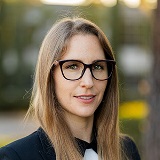
Aude Segaliny, PhD, Vice President, Research & Development, Amberstone Biosciences

Dr. Aude Segaliny is an accomplished scientist in cancer research and preclinical pharmacology. As a founding scientist of Amberstone Biosciences and its Tumor Microenvironment Activated Therapeutics (T-MATE™) Platform, she has executed critical projects and delivered on key milestones throughout her career. Dr. Segaliny is a responsible leader who drives effective communication between internal teams and external collaborators, advisors, and partners. Dr. Aude Segaliny has over 15 years of experience in immunology, cell biology, cytokine and receptor biology, microfluidic single-cell functional screening platform, and in vitro/in vivo characterization assays, with a focus on cancer therapeutics discovery. She received her PhD training with a heavy focus on cytokine biology in the context of bone cancer. Her PhD study brought new insights into IL-34 biology in the pathogenesis of osteosarcoma, where she generated an anti-IL-34 therapeutic antibody. During her postdoctoral tenure at UCI, Dr. Segaliny led multiple translational research projects including one where she delivered a stem cell-based candidate therapy for metastatic breast cancer. This significant research contributed to a successful technology licensing to and pre-IND filling by a commercial biotech partner based in California. In her current role at Amberstone, Dr. Segaliny leads a team of immunologists, biomedical engineers, and in vivo biologists to identify and characterize Amberstone’s next-generation immunotherapeutic antibodies by leveraging cutting-edge technologies and external collaborations. She was instrumental to the establishment of the company’s proprietary T-MATE discovery platform (licensed out in 2023), which has been crucial to the company’s leading programs, including the ABS-101 development candidate currently in pre-IND.
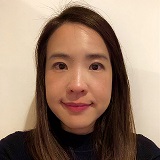
Nikki Sereesongsaeng, PhD, Senior Scientist, Institute for Cancer Research

Nikki is a pharmacist and molecular biologist with a PhD from Queen’s University Belfast. She brings extensive experience across academia and industry, with a career rooted in translational research and therapeutic development. Since joining the Institute of Cancer Research in 2020, Nikki has worked under Professor Terry Rabbitts, advancing to the role of Senior Scientist in 2023. Her research focuses on intracellular antibody fragments, innovative tools designed to target chromosomal transcription factors - opening new frontiers in oncology and precision medicine. In addition to her academic work, Nikki serves as a scientific consultant to Kodiform Therapeutics, a pioneering biotech start-up. She provides strategic guidance on cell-based assays and intracellular antibody capture (IAC) technologies, helping to shape the company’s scientific direction.
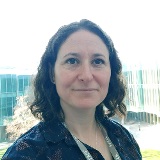
Isabelle Sermadiras, Associate Principal Scientist, AstraZeneca

Isabelle Sermadiras is a Biotechnology Engineer trained in Bordeaux, France. Her journey began in Belfast, where she worked as a Purification Scientist at Fusion Antibodies. In 2010, she joined AstraZeneca (formerly MedImmune) as a Protein Engineer and Scientist, contributing significantly to various drug projects involving peptides, monoclonal antibodies, and multispecifics. Recently, Isabelle transitioned from the lab to pursue her passion for data science and computational structural biology.

Andrew Sewell, PhD, Distinguished Research Professor & Wellcome Trust Senior Investigator, Division of Infection and Immunity, Cardiff University School of Medicine

Andrew Sewell initially trained in Chemistry and undertook a PhD in Genetics at the University of Liverpool (1991) before embarking on postdoctoral training at the University of Utah. He returned to the UK in 1995 to research how the HIV virus evades the human immune system at the Nuffield Department of Medicine, University of Oxford where he became a Wellcome Trust Senior Fellow. He relocated to Cardiff University in 2006 and became a Wellcome Trust Senior Investigator and has been continuously Wellcome-funded for over 25 years. His research group focuses on T-cell ligands and the receptors that recognise them (αβTCR, γδTCR, CD4 and CD8). Most of the Sewell laboratory’s recent work is based around understanding the basic biology of antigen recognition by human T-cells using novel pipelines for the discovery of new T-cell targets. Current Sewell group research projects include: Dissection of successful immune responses after successful cancer immunotherapy; TCR gene transfer therapy (TCR-T); Novel CAR-T technologies; T-cell receptor-optimised peptide skewing or the repertoire of T-cells (TOPSORT); Artificial (non-biologic) T-cell antigens as vaccines; T-cell/TCR-based diagnostics in autoimmune disease; and unconventional (non-HLA-restricted) T-cell responses to infection and tumours.

Monique Seymour, Sr. Sales Executive & Development Mgr EMEA + India, Commercial, Rapid Novor

Monique Seymour graduated from the University of Glasgow with a Master's Degree in Biotechnology and Management. She has years of experience in proteomics, working with scientists in both Diagnostic and Therapeutic areas to mitigate risk and speed up discovery using next generation protein sequencing and other innovative technologies. Monique is passionate about furthering life sciences research to improve global patient health.
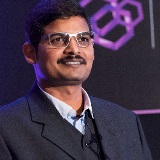
Ramesh Kumar Shanmugam, PhD, MBA, Associate Director, Biopharmaceutical Development, AstraZeneca

Ramesh Kumar is a distinguished leader in biopharmaceutical development and manufacturing sciences, known for his results-driven and strategic approach. With over 18 years of industry experience, Ramesh has made significant contributions from candidate identification through to the development of commercial dosage forms. His expertise is underscored by exceptional problem-solving and decision-making skills, enabling the integration of complex scientific information into comprehensive drug development plans. Beyond his professional achievements, Ramesh is an avid reader and puzzle enthusiast, pursuits that continually inspire his creativity and innovative thinking.
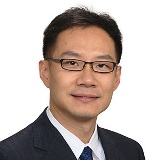
Yang Shen, PhD, Executive Director of Antibody Engineering, Bispecifics, Regeneron

Yang Shen, PhD, joined Regeneron in 2018 and currently serves as Executive Director, Antibody Engineering in Bispecific Department and Co-Chair of Protein Therapeutics, Pipeline & Technology Section. Yang founded Antibody Engineering Group and played an instrumental role in establishing Altibody platform. He and his team work on designing, producing, and screening alternative format molecules to deepen our understanding of biology and create new therapeutic opportunities at Regeneron. He received his PhD in Structural Biology from Columbia University. Prior to joining Regeneron, Yang held increasing roles at ImClone Systems and Eli Lilly between 2008 and 2018.
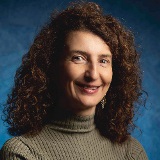
Julia M. Shifman, PhD, Professor, Biological Chemistry, The Alexander Siblerman Institute for Life Sciences, The Hebrew University Jerusalem

Julia Shifman is a Professor of Biochemistry and Biophysics at the Department of Biological Chemistry, The Hebrew University of Jerusalem, where she served as department chair from 2018 to 2024. Since the beginning, her research group has been dedicated to understanding and engineering of protein-protein interactions. Over the years, she dedicated substantial effort to developing computational methods for predicting affinity- and specificity-enhancing mutations in protein-protein complexes. Her efforts have particularly focused on engineering inhibitors of protein-protein interactions starting from natural binding partners as well as from unrelated small protein domains. Her universal approaches can be applied to develop therapeutics for any disease where a particular protein-protein interaction plays a critical role. Current projects in the Shifman lab aim to engineer inhibitors for various protein targets including Ras, SH2 domains, trypsins, USPs and others. Dr. Shifman earned her Ph.D. in Biophysics from the University of Pennsylvania and completed postdoctoral training at Caltech. She was a visiting professor in at the Sachdev Sidhu's lab at the Donnelly centre for Cellular and Biomolecular Research at the University of Toronto (2011-2012), integrating computational and combinatorial protein engineering, and at UCSF (2021) in William DeGrado’s lab, where she initiated research on photoswitchable binding proteins.
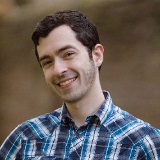
Jarrod Shilts, PhD, R&D Lead Scientist, ExpressionEdits Ltd.

Jarrod has been part of ExpressionEdits since the beginning of the company’s journey to change how commercial gene expression is done, joining the founding team as Lead Scientist for R&D. ExpressionEdits has revised the design of the basic building block of the field, the transgene, which has remained essentially unchanged since the 1970s. Our technology incorporates both coding and non-coding DNA into transgenes through a process of ‘intronization’, which unlocks higher protein expression and other improvements that come from engaging cellular machinery that were overlooked by the cDNA transgenes of the past. Prior to ExpressionEdits, Jarrod developed innovative approaches to measure human cell surface proteins at scale in order to discover new drug targets based on cell-to-cell communication while working at the Wellcome Sanger Institute. He received his PhD from the University of Cambridge for work at the interface of biochemistry, systems biology, and bioinformatics.

Christian Sievert, Head of Strain Development, Strain Development, eleva GmbH

Dr. Christian Sievert is a trained biologist interested in evolutionary processes and creating value by transforming knowledge into useful applications. He studied the molecular evolution of a plant secondary pathway until 2014 at the University of Kiel, Germany. For the next two years, he explored mechanisms of experimental evolution using industrial strains at Arizona State University, USA. At the University of Münster, Germany, he studied the evolution of parasitism. In 2017, he joined Eleva as a Scientist, applying lessons learned from evolution to engineering strains. Today, he is the Head of Strain Development at Eleva and plays a key role in advancing the company’s moss-based platform.
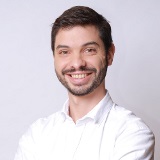
Daniel M. Simão, PhD, Head, Bayer Pharma Satellite Lab, iBET Instituto de Biologia Experimental Tecnologica

Daniel Simão is the Head of Bayer Pharma Satellite Lab, part of the Animal Cell Technology Unit within IBET’s Health & Pharma Division. Daniel graduated with a degree in Biology from the University of Lisbon and holds an MSc in Molecular Genetics and Biomedicine from the NOVA School of Science and Technology. He earned his PhD in Bioengineering Systems from the MIT-Portugal Doctoral Program in 2016, where his research focused on developing stem cell-based 3D in vitro models of the central nervous system for preclinical studies. His work advanced neural differentiation methodologies using stirred culture systems, exploring neuron-glia interactions and applying these models to evaluate viral vectors for gene therapy. Following his PhD, Daniel secured a postdoctoral fellowship at the Adenovirus Receptors, Trafficking and Vectorology Laboratory at IGMM in Montpellier, France, where he worked on constructing and producing CAV-2 vectors for gene transfer to the central nervous system. In 2017, he joined the Bayer Pharma Satellite Lab, contributing to the development of a microfluidics-based antibody discovery platform and applications of next-generation sequencing technology. Since becoming Head of Lab in 2021, Daniel has led a team focused on R&D projects for the biopharmaceutical industry, particularly in biologics research. His current academic research centers on cardiovascular pathologies, investigating the interactions between tissue-resident cells and immune cells in promoting or resolving pathological features. Novel immune-competent human cardiac cell models are being developed using cells derived from human induced pluripotent stem cells (hiPSC) and human primary cells. Additionally, new modalities are being explored such as adaptive cell therapies (e.g., CAR T cells) as potential treatments for cardiac fibrosis.

Angus M. Sinclair, PhD, CSO, LabGenius Therapeutics

Angus Sinclair PhD is the CSO of LabGenius Therapeutics with over 20 years experience in the biotech industry. Prior to joining LabGenius Therapeutics, Angus was the EVP of Research at IGM Biosciences, the Senior Director of Oncology at Northern Biologics Inc, and a Scientific Director of Oncology at Amgen. During his tenure in biotech, Angus progressed multiple antibody-based and small molecule therapeutics through preclinical research and development to the clinic. Before joining Amgen, Angus held several academic positions at UT Southwestern Medical Center, Texas; University of Cambridge, UK and UCSD, California.
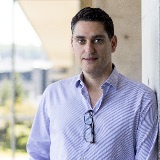
Dimitris Skokos, PhD, Vice President, Cancer Immunology, Regeneron Pharmaceuticals

Dimitris Skokos, PhD joined Regeneron in 2008 as Staff Scientist and now serves as Executive Director of Cancer Immunology. Dimitris’ team is responsible for developing the next generation of combination immunotherapeutic strategies, including the CD28 costimulatory bispecific antibodies and other foundational antibody medicines to treat cancer. He holds more than 10 patents and 25 publications, and was part of the team that developed the FDA-approved treatment for metastatic cutaneous squamous cell carcinoma, and Basal Cell Carcinoma, Libtayo. He has had the honor to work with esteemed scientists, George D. Yancopoulos and Roy P. Vagelos. Prior to joining Regeneron, Dr Skokos was a post-doctoral fellow at the Rockefeller University, working with Ralph Steinman (Nobel Laureate, 2011) and Michel Nussenzweig. He received his PhD and Master’s degrees in Molecular Immunology from the Pasteur Institute, University Paris 5, Rene Descartes School of Medicine, and his BSc. in Cellular Immunology and Physiology from University Paris, France.
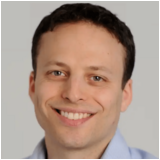
Peter Slavny, CTO, FairJourney Biologics

Recognised for goal-focussed innovation and consistent delivery.
Led numerous successful biotherapeutic drug discovery campaigns to deliver >6 molecules into the clinic.
Co-founded IONTAS in October 2012 within a team of 4 people and played a key role in driving growth of the business to 30 people, and acquisition in 2020 as an established brand in the biotech ecosystem.
Currently responsible for scientific leadership and delivery of the antibody discovery & protein engineering portfolio as Chief Technology Officer in the FairJourney Biologics Group.
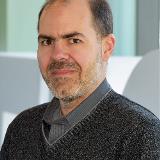
Eric Smith, PhD, Senior Director, Bispecifics, Regeneron Pharmaceuticals, Inc.

Dr. Eric Smith received his PhD in Microbiology and Immunology from Duke University in 1997. Following a postdoctoral fellowship at NYU he joined Regeneron in 2002 as a member of the Antibody and Trap Technologies group, where he worked on cytokine traps and related molecules. In 2008 he was a founding member of the Bispecific Antibodies team and is currently the Executive Director of Bispecifics at Regeneron.

Pietro Sormanni, PhD, Group Leader, Royal Society University Research Fellow, Chemistry of Health, Yusuf Hamied Department of Chemistry, University of Cambridge

Pietro Sormanni is a group leader supported by a Royal Society University Research Fellowship at the University of Cambridge. His research focuses on the development of innovative data-driven technologies of rational antibody design, to obtain antibodies against targets that have been challenging to access using conventional approaches, and to improve or predict biophysical properties crucial for the successful development of antibody therapeutics. In his work he has established numerous collaborations and industrial partnerships, whose outcomes are beginning to demonstrate that computational approaches can be applied alongside established procedures to streamline antibody development, and to offer time- and cost-effective novel alternatives. Prior to taking up this post, Pietro held a postdoctoral Borysiewicz Biomedical Sciences Fellowship from the University of Cambridge, and obtained a PhD in Chemistry and an MSc in Theoretical Physics.

Philipp Spycher, PhD, CSO, Araris Biotech AG

Philipp Spycher is the CSO at Araris Biotech AG. As the inventor of the Araris ADC Technology, he has a profound background in Bioconjugation and ADCs. He was the founder CEO, positioning Araris to shift the paradigm in how to think about developing targeted cancer therapies. During his post-doctoral work at the Paul Scherrer Institute (PSI, Switzerland), he introduced the novel approach using transglutaminases for antibody conjugation that led to the discovery of the Araris ADC Technology. Philipp won the PSI Founder Fellowship as well as several other prices and grants to commercialize the technology. He obtained his Master’s Degree and Ph.D. from ETH Zurich (Switzerland) at the interface of Material Science and Protein Engineering.
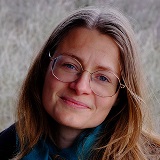
Catharina Steentoft, PhD, Senior Scientist, Antibody Technology, Novo Nordisk

I have an academic background in glycobiology and glycoproteomics, with a particular interest in mapping truncated O-glycosylation in cancer and developing glycopeptide-specific antibodies for cancer immunotherapy including CAR T cells. I joined the pharmaceutical industry and Novo Nordisk two years ago, focused on driving therapeutic antibody discovery using the Adimab platform as well hybridoma technology.
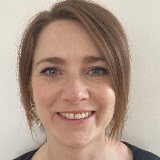
Amberley Stephens, PhD, Senior Protein Scientist, Biologics Engineering, AstraZeneca

Amberley joined Biologics Engineering at AstraZeneca as a Senior Scientist in 2022. Before joining AstraZeneca she did a Postdoc at the University of Cambridge investigating the misfolding of proteins in Parkinson's and Alzheimer's diseases. She currently focuses on expression and purification of complex membrane proteins in different formats as antigens for biologics discovery campaigns.
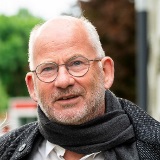
Jan Steyaert, PhD, Professor, Vrije Universiteit Brussel (VUB); Director, VIB-VUB Center for Structural Biology, VIB

Jan Steyaert ir. PhD is a full professor at the Vrije Universiteit Brussel (VUB) and Scientific scientific Director of the VIB-VUB center for Structural Biology (VIB). He is the founder and now senior advisor of Confotherapeutics. Last years, the Steyaert lab pioneered the use of nanobodies for chaperone-assisted X-ray crystallography (www.steyaertlab.eu), aiming at the highest hanging fruits of structural biology including membrane proteins, amyloidogenic proteins, and now also (transient) multiprotein complexes. Recent work focusses on exploiting the conformational complexity of therapeutic targets for Nanobody-enabled drug discovery and on the design of novel antibody formats for applications in single particle cryo-EM.
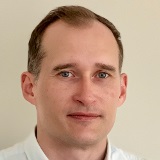
Pawel Stocki, PhD, Vice President Research, Ossianix

Heading antibody discovery and engineering at Ossianix since 2015. We are utilising single domain antibodies to tackle the problem of brain delivery of therapeutic payloads across the blood-brain-barrier. Prior to joining Ossianix, I was working at Medimmune on intracellular delivery of biologics and as Research Director at Psynova Neurotech.

Rajesh Sundaresan, PhD, Scientific Leader, Protein Cell and Structural Sciences, GlaxoSmithKline

Rajesh Sundaresan is a protein biochemist with a PhD from the Tokyo Medical and Dental University, Japan and spent over 15 years working in academia, developing and applying NMR methods for protein-protein, protein-lipid interactions and membrane protein signalling. At GSK he has worked on enabling drug discovery approaches for soluble and membrane protein targets, embedding novel formats for membrane protein solubilisation and nanoparticle-based screening platforms.

Natasa Tagasovska, PhD, Principal Machine Learning Scientist and Scientific Manager, Prescient Design, Genentech, Roche

Natasa Tagasovska is a Principal Machine Learning Scientist and Scientific Manager at Prescient Design, Genentech in the Frontier Research team. Her interests revolve around ML methods for causal learning and uncertainty estimation, and recently she explores their capabilities within applications in computational biology. Prior to Prescient, she was a Sr. Data Scientist at the SDSC at EPFL-ETHZ, where she worked on interdisciplinary projects, applying ML to physical and social science research efforts. She holds a PhD in Information Systems (Data Analytics track) from University of Lausanne and a BS and MSC in Computer Science and Engineering. During her studies she interned at Facebook (Meta) AI Research and NATO.
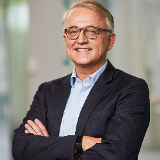
Paul Peter Tak, MD, PhD, FMedSci, President & CEO, Candel Therapeutics

Paul Peter received his medical degree from the Amsterdam University Medical Center (AUMC) and was trained as an internist and immunologist at Leiden University Medical Center, where he also received his PhD. He worked as a scientist at the University of California San Diego and next served as Professor of Medicine at Amsterdam University Medical Center. He has published extensively in peer-reviewed journals, received numerous awards, has been elected Fellow of the Academy of Medical Sciences, is Honorary Senior Visiting Fellow at University of Cambridge, and was recognized by PharmaVOICE100 in 2021 and the Medicine Maker 2013 Power List in 2023. At GlaxoSmithKline he served as Senior Vice President, Chief Immunology Officer, and Global Development Leader (2011-2018). He was also the Chair of the Scientific Review Board. Next, he became Venture Partner at Flagship Pioneering. In September 2020 he became the President and CEO of Candel Therapeutics, which develops viral immunotherapies. He is currently also on the Board of Sitryx Therapeutics (co-founder; Oxford), Levicept (London) and Chair of the Board of Citryll (Oss).
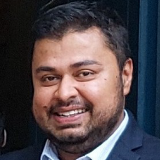
Sandeep K. Talapatra, PhD, Leader Protein Science, Protein Cell & Structural Sciences, GSK

With 14 years of experience in the field of Protein Science, Dr. Sandeep Talapatra holds a PhD in Molecular Physiology conferred by the Beatson Labs, University of Glasgow, UK. His expertise ranges from academic research to the industry, where he has published extensively in the field of protein science. Dr. Talapatra has pioneered the development of novel targets for recombinant protein production in drug discovery. Currently, at GSK, he is focused on improving protein production by maximizing throughput, success rate, and reducing timelines.
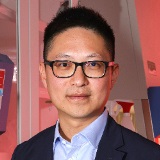
Li Tang, PhD, Associate Professor, Institute of Bioengineering (IBI) & Institute of Materials Science & Engineering (IMX), école Polytechnique Fédérale de Lausanne (EPFL)

Li Tang received his BS in Chemistry from Peking University, China, in 2007, and PhD in Materials Science and Engineering from University of Illinois at Urbana-Champaign, USA, in 2012, under the supervision of Professor Jianjun Cheng. He was a CRI Irvington Postdoctoral Fellow in the laboratory of Prof. Darrell Irvine at Massachusetts Institute of Technology during 2013-2016. He joined the faculty of Institute of Bioengineering, and Institute of Materials Science & Engineering, at école polytechnique fédérale de Lausanne (EPFL), Switzerland, as a Tenure-Track Assistant Professor in 2016, and promoted to Associate Professor with tenure in 2022. He is also the Vice Dean for Innovation, and Director of Innovate4Life program at School of Life Sciences, EPFL. His research focuses on developing multidimensional immunoengineering approaches for enhanced cancer immunotherapies. Dr. Tang is the recipient of Friedrich Miescher Award (2025) from Life Sciences Switzerland (LS2), Leenaards Prize for Translational Medical Research (2025), Biomaterials Science Lectureship (2025), CAB Mid-Career Investigator Award (2024), Biomaterials Award for Young Investigators (2024), Cancer Research Institute CLIP Award (2021), Anna Fuller Award (2021 and 2022), European Research Council (ERC) Starting Grant Award (2018), and named in the MIT Technology Review’s "Top 35 Innovators under Age 35" list of China region (2020).
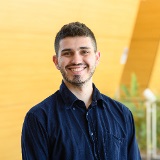
Ariel Tennenhouse, Graduate Student, Biomolecular Sciences, Weizmann Institute of Science

Ariel is a PhD student with Sarel Fleishman at the Weizmann Institute of Science. He did his bachelor’s degree in chemical biology at UC Berkeley and moved to the Weizmann Institute in 2019. He is a member of the Teva National BioInnovators Forum and the Azrieli Fellows Program. His research focuses on developing one-shot computational methods to co-optimize antibodies for many properties critical for therapeutic development. He is now applying these methods to design synthetic antibody repertoires for accelerated discovery of developable antibodies. Broadly speaking, he is excited about using protein engineering and design to generate large-scale datasets to learn fundamental principles about proteins and biological functions.
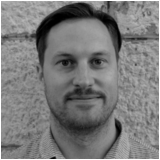
Nels Thorsteinson, Director of Biologics, Biologics, Chemical Computing Group

Nels Thorsteinson joined Chemical Computing Group (CCG) in 2008 as an Applications Scientist and is now the Director of Biologics. He is responsible for performing scientific research and support, programming custom applications, and guiding CCG's 3D biologics modeling applications development. Before joining CCG, Nels majored in biomedical computing at Queen's University in Canada and went on to complete his graduate studies at the University of British Columbia focusing on bioinformatics and computational chemistry.
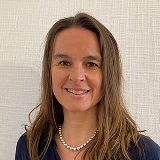
Sophie Tourdot, PhD, Immunogenicity Sciences Lead, BioMedicine Design, Pfizer

Sophie received her PhD in Immunology from the Université Paris Cité, France. She has over 20 years of experience in vaccine, immunotherapy and biologics research and development. She joined Pfizer in 2017 where she leads a group focused on immunogenicity risk assessment and mitigation of Pfizer’s biologics and is co-chair of the Immunogenicity Advisory Council. Sophie acts as Director of Scientific Affairs for the European Immunogenicity Platform.
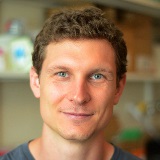
Michael Traxlmayr, PhD, Group Leader, CD Laboratory for Next-Generation CAR T Cells, University of Natural Resources & Life Sciences

Michael Traxlmayr obtained his PhD in the field of antibody engineering in the lab of Christian Obinger, at BOKU in Vienna, Austria, followed by postdoctoral studies in the lab of Dane Wittrup at MIT, where he engineered non-antibody-based domains for specific antigen binding. After returning to Vienna, he started to apply his protein engineering skills in the CAR T cell field. For that purpose, he teamed up with Manfred Lehner from the CCRI in Vienna. In their “CD Laboratory for Next Generation CAR T Cells," they engineer novel protein tools to enable regulation of CAR T cell activity with small molecule drugs and to improve CAR T cell specificity. A novel technology for small molecule-regulated CAR control, which emerged from this collaborative project, was recently awarded as the “BOKU invention of the year 2020.”

Nathan D. Trinklein, PhD, Co-Founder and President, Rondo Therapeutics

Nathan is a co-founder of Rondo Therapeutics and currently serves as President and CSO. Prior to starting Rondo, Nathan was Chief Technology Officer at Teneobio where he played a key role in starting the company and led the team that was responsible for lead discovery, lead optimization, and development of the T-cell engager platform that was acquired in 2021. Prior to Teneobio, Nathan was a co-founder and CEO of SwitchGear Genomics, a venture-backed HTS platform company that was acquired in 2013. Earlier in his career, Nathan served as the Technical Director of the Stanford ENCODE project and received his Ph.D from Stanford University. Nathan also serves on the Board of Governors for the Stanford Medicine Alumni Association. Nathan has published over 30 peer-reviewed papers and is an inventor on over 15 patents.

Leendert A. Trouw, PhD, Professor, Department of Immunology, Leiden University Medical Center

During my career, I have continuously focused on complement and (auto)antibodies. In my PhD-studies I became fascinated by the pathological consequences of complement and autoantibodies and was the first to show the pathogenicity of anti-C1q autoantibodies (J.Clin.Invest.2004). My post-doc studies in Sweden, revealed the importance of complement-inhibitors binding to free-DNA and dead cells (J.Exp.Med.2005). Subsequently, I choose to work (supported by a Veni-grant) in the Dept. of Rheumatology, LUMC, to implement obtained knowledge on complement and autoantibodies in a clinical setting. Several autoantibodies are known in Rheumatoid Arthritis but in 2011, with my team, I discovered a new autoantibody recognizing carbamylated-proteins (Proc.Natl.Acad.Sci.2011). During the last five years, using my Vidi-grant, I have unravelled the anti-CarP antibody response in depth and observed that they are present years before disease onset and are associated with development of RA and with disease severity. The predictive, diagnostic and prognostic properties have now been replicated in several international studies and following patenting, a commercial test is now being developed. How autoantibodies contribute to arthritis is still unknown, but I have demonstrated the complement activating potential of RA-associated antibodies. With my ERC-grant, we study the role of complement in autoantibody responses develop against modified self-proteins. In addition, I planned to use my expertise in complement and autoantibodies to develop modified-autoantibodies as therapeutics. Therefore, I have moved my group from the Rheumatology to the Immuno-Haematology (LUMC), one of the top Dutch immunology departments focusing on multiple disease areas, allowing a broad implementation of our findings.
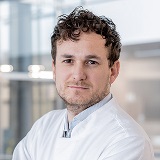
Carlo Tur, MD, University Hospital Erlangen, Medicine 3, Friedrich Alexander University Erlangen-Nuremberg

I obtained my Medical Degree from the University of Rome "La Sapienza" in 2018, and completed my residency in Rheumatology in 2023 at the Catholic University of the Sacred Heart in Rome, under the direction of Professor M.A. D’Agostino. During my training, I acquired expertise in musculoskeletal ultrasound and developed skills in ultrasound-guided minimally invasive biopsy techniques. In 2023, I joined the group led by Professor G. Schett in Erlangen, where I am currently pursuing a PhD in Advanced Immunomedicine. My research focuses on characterizing the tissue immune environment in response to different B cell-depleting strategies.
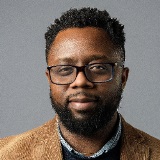
Obinna C. Ubah, PhD, Principal Scientist & Future Leaders Fellow (UKRI), Autoimmune Inflammatory Diseases Drug (Biologics) Discovery & Development, Elasmogen Ltd.

Obinna leads the immunology drug discovery and development at Elasmogen Limited. He holds a PhD in Molecular Biology and Antibody, and has more than a dozen peer reviewed publications and several patents.
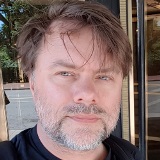
Joost Uitdehaag, PhD, Head of Biology, Crossfire Oncology

Joost Uitdehaag is an accomplished expert in oncology drug discovery, both in the antibody and small molecule field. Before joining Crossfire Oncology, he led early discovery teams at Schering-Plough, MSD and AstraZeneca. He is founding member of an oncology-based biotech company, and chaired the development team at LAVA Therapeutics that brought a bispecific antibody into Phase I. As Head of Biology at Crossfire, he is bridging the targeting possibilities of small molecule oncology with the high therapeutic window of antibody therapies by developing new degrader-antibody-conjugates.
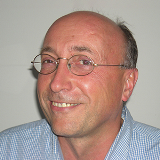
Thomas Valerius, MD, Professor, Stem Cell Transplantation & Immunotherapy, Christian Albrechts University of Kiel

Thomas Valerius studied medicine at the University of Erlangen-Nürnberg, Germany. After his training in Internal Medicine, he specialized in Hematology/Oncology and Rheumatology. Since May 2003, he has been working at the Christian Albrechts University in Kiel, Germany, where he is currently the provisional Clinical Director of the Section for Stem Cell Transplantation and Immunotherapy. His main scientific interests have been effector functions of monoclonal antibodies in tumor therapy with particular focus on improving myeloid effector cell recruitment.
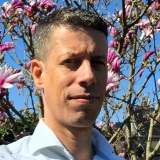
Leon Van Gurp, PhD, Senior Data Scientist, Discovery Data Science, Genmab BV

Leon van Gurp completed his PhD at the Hubrecht Institute, collaborating on hallmark single-cell transcriptomics datasets of human pancreatic islets and mouse pancreas development. He combined this research with 4D intravital microscopy to elucidate mechanisms underlying beta cell genesis. As a postdoc at the University of Geneva, he investigated adult human islet cell plasticity through CRISPR screening and multi-omics profiling. Currently, Leon is working as a Senior Data Scientist at Genmab, specializing in custom high throughput analytics in the context of next-generation antibody formats.

Odysseas Vavourakis, Generative Antibody Design, University of Oxford

I'm a DPhil (PhD) student in the Oxford Protein Informatics Group (OPIG) under the supervision of Prof Charlotte Deane and Dr Rebecca Croasdale-Wood (AstraZeneca). My research focusses on advancing de novo antibody design using generative models, and I am broadly interested in machine learning approaches to biomolecular structure and design. I hold a MSc in Computational Biology & Bioinformatics from ETH Zurich and a BSc in Biochemistry from Heidelberg University.
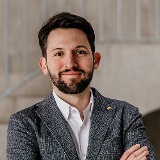
Rodrigo Vazquez-Lombardi, PhD, Co-Founder & CSO, Engimmune Therapeutics AG

Rodrigo Vazquez-Lombardi is co-founder and CSO of Engimmune Therapeutics. His research for over a decade has focused on the molecular engineering and development of immunotherapies including cytokine, antibody and T cell receptor (TCR) therapeutics. During his doctoral studies, Rodrigo discovered a novel mechanism of action of interleukin-2-Fc fusion proteins against cancer, namely Treg depletion. As a PHRT Postdoctoral Fellow at ETH Zurich, he established the TCR-Engine platform combining CRISPR-Cas9 genome editing, mammalian display, deep sequencing and computational methods for TCR engineering, as well as additional platform technologies now licensed to Engimmune, which he co-founded in August 2021. As CSO at Engimmune, he leads a multidisciplinary team applying AI-guided engineering of soluble TCR therapeutics for oncology indications of high unmet medical need. Rodrigo holds a BSc (Hons I) degree from the University of Sydney and a PhD from the University of New South Wales (Garvan Institute).
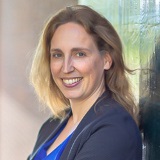
Yvonne Vercoulen, PhD, Associate Professor, Center for Molecular Medicine, University Medical Center Utrecht

Yvonne Vercoulen is a principal investigator and associate professor at the Center for Molecular Medicine of the UMC Utrecht and a member of the Utrecht Young Academy. Throughout her career she has developed a fascination for immune regulation and aims to understand how errors result in tissue inflammation and cancer. She trained as a PhD student in T cell immune regulation at Utrecht University, and as a Marie-Curie international postdoctoral fellow in T cell receptor signal transduction at UC San Francisco. Dr. Vercoulen’s team at the UMC Utrecht works at the interface of immunology and cancer to identify cellular and molecular underpinnings of disease using spatial omics technology. The Vercoulen lab asks fundamental questions to, for example, understand how immune cells contribute to cancer development, prognosis and therapy response. The team has developed multiplex spatial analyses technology integrating microscopy with imaging mass cytometry and applies both protein and spatial RNA multiplex analyses to investigate the interplay between different cell types in the tissue. Studying tissue and intercellular communication in the tumor microenvironment is essential to understand the mechanisms of disease and therapy response. Dr. Vercoulen’s team collaborates closely with clinicians and researchers from multiple disciplines and strives to drive the field of spatial tissue biology forward and bring this to a level of clinical application.
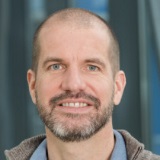
Martijn Verdoes, PhD, Associate Professor, Chemical Immunology, Leiden University Medical Center

Martijn Verdoes earned his PhD in Organic Chemistry from Leiden University in 2008. After a postdoc at Stanford University with an NWO Rubicon fellowship, he returned to the Netherlands in 2013 to join Radboudumc’s Department of Tumor Immunology. Since 2016, he leads a multidisciplinary research group using chemistry and protein engineering to study and manipulate the immune system, in particular in cancer. Verdoes received an ERC Starting Grant and Institute for Chemical Immunology (ICI) Tenure Track Fellowship, securing a tenured Assistant Professor position in 2019 and an Associate Professor position in 2022. Since September 2024, Martijn holds an Associate Professor position at the Department of Immunology at the LUMC, continuing to develop chemistry-based precision immunomodulatory approaches.
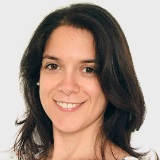
Vanessa Verissimo, Research Scientist, Therapeutic Antibodies, Bayer Pharma AG

I am a Senior Scientist at Bayer AG with over 15 years of experience in antibody drug discovery in the pharmaceutical industry. I hold a degree in Cellular and Molecular Biology and a MSc in Molecular Genetics and Biomedicine from NOVA University of Lisbon. I am specialized in antibody lead discovery, with emphasis on phage display technologies. I have designed and implemented effective strategies for antibody generation and established in vitro assays to characterize antibody molecules. In recent years, I have taken on leadership roles in managing antibody discovery projects at Bayer and with external partners.
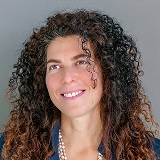
Alessandra Villa, PhD, Director, Antibody Platform Development, Kling Biotherapeutics

Alessandra Micaela Villa is an industrial biotechnologist by training, with a PhD at ETH-Zurich on the generation of therapeutic antibodies for tumor targeting. After few years as antibody lab-head, she moved to the European Institute of Oncology in Milan to deep dive in cancer stem cell biology paradigm, working on primary patients' samples. Due to her passion for targeted therapeutics, Alessandra then moved to Philochem group in Zurich as group leader to design and develop immunocytokines from R&D to the IND. In 2021 Alessandra joined Molecular Partners as director to pioneer targeting of radio-ligand-therapeutics with a small ankyrin-based scaffolds. Since November 2024, Alessandra is leading the Antibody platform-development group in Kling Biotherapeutics group.
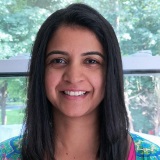
Jyothsna Visweswaraiah, PhD, Director, Biotherapeutics, Drug Creation, Seismic Therapeutic

Dr. Jyothsna Visweswaraiah is an accomplished leader with extensive experience in drug development, having successfully advanced new therapies into clinical trials. Currently, she serves as the head of the Biotherapeutics group under the Drug Creation Department at Seismic Therapeutic.
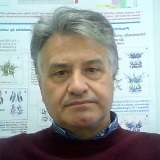
Luigi Vitagliano, PhD, Director, Institute of Biostructure and Bioimaging, Department of Biomedical Science, National Research Council Italy

Dr. Luigi Vitagliano received his PhD in Chemical Sciences from the University “Federico II” of Naples, Italy. He is currently Research Director at the Institute of Biostructures and Bioimaging of the Italian National Research Council, where he has been the head of the Napoli Centro Unit from 2010 to 2013. He also teaches at the PhD school in Biomolecular Sciences of the University of Campania L. Vanvitelli. He has been a member of the international committee for the beam-time allocation at the Elettra Synchrotron from 2004 to 2018 and a consultant for Bracco Imaging (2015-2016). Over the years, Dr. Vitagliano has been a visiting scientist at several International Institutions (Imperial College, London (UK), Mount Sinai School of Medicine, New York (USA), IGBMC, Strasbourg (France), Rutgers University, New Jersey (USA), Aarhus University (Denmark)) His research interests are focused on the structural interpretation of protein function. These activities are generally conducted by combining experimental (spectroscopy and crystallography) and computational (molecular modeling/dynamics, protein structure prediction, and data mining) techniques. His activities have led to the publication of more than 220 papers in journals indexed in Web of Science-including Science, Nature Cell Biology, J. Clinical Investigations, Embo Journal, JACS, NAR, PNAS, J. of Neuroscience. Dr. Vitagliano is or has been coordinator/responsible for projects funded by Regional (Campania Region), National (Italian National Research Council, Italian Minister for Research, Italian Space Agency, CNCCS consortium), and International (European Union) Institutions for a total amount of more than 3.5 million euros. He is currently a member of the editorial board of Scientific Reports (Nature Publishing Group), Biomolecules, Diagnostics, Plos One, and Protein and Peptide Letters. He has been a speaker at several national and international meetings including the Iucr2023 world meeting, Gordon conference, and Murnau conference. He has also chaired the organizing committee of several national and international Congresses/Schools/Workshops.
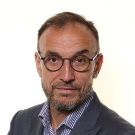
éric Vivier, DVM, PhD, CSO, Innate Pharma

éric Vivier, DVM, PhD, is Professor of Immunology at Aix-Marseille University and at the Public Hospital of Marseille (AP-HM). In addition, he was appointed in 2018, Scientific Director of Innate Pharma, a biotechnology company dedicated to improving cancer treatment with innovative therapeutic antibodies that exploit the immune system. He completed his post-doctoral training at Harvard Medical School, then joined Aix-Marseille University as professor at the Centre d'Immunologie de Marseille-Luminy (CIML) in 1993 before becoming its director from 2008 to 2017. He is also one of the founders of Marseille-Immunopôle, an immunology cluster created in 2014 linking fundamental and therapeutic research, innovation and industrial development on the Aix-Marseille metropole. Eric Vivier's work focuses on innate immunity and in particular Natural killer and other innate lymphoid cells, at Ciml, at AP-HM and at Innate-Pharma. Professor Vivier has published over 300 scientific articles and is on the list of the most cited researchers https://urldefense.com/v3/__http://scholar.google.fr/citations?user=NlmFOgMAAAAJ&hl=fr&oi=ao__;!!JQ5agg!MT6aZ4s15fk0PDPP8G0-3jdnBMvH_YYxd5kHsmNoNlKqp1C658801NrkSGMnxMO4gUmI4D1y$ A laureate of the European Research Council (ERC advanced grants), a member of the EMBO, the Académie Nationale de Médecine and the Institut Universitaire de France, Prof. Vivier has received several awards including those from the Ligue Nationale contre le Cancer (1996, 2004 and 2013) and the European Federation of Immunological Societies (EFIS, 2004).

Bjørn Voldborg, MSc, Head, National Biologics Facility, DTU Bioengineering, Technical University of Denmark

Bjørn Voldborg has more than 20 years of experience working with recombinant protein expression from both academic and industrial settings. Bjørn was team leader in the biotech company Pharmexa A/S, responsible for molecular cloning and expression of protein-based drug candidates. From this, he went to the NNF Center for Protein Research at the University of Copenhagen as Head of the Protein Production Unit, and, since 2012, Bjørn has been heading the CHO Cell Line Engineering project dedicated to the engineering of improved protein production cell factories, and since 2021 he has been heading the Cell Line and Protein Production in the National Biologics Facility at the Technical University of Denmark.
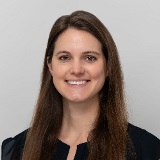
Ellen Wagner, PhD, Director, Technology Development, GigaGen Inc.

Ellen Wagner received her PhD in chemical engineering from the University of Texas at Austin, where she studied antibody and TCR engineering for infectious disease. Ellen is currently the Director of Research at GigaGen (a Grifols Company), where she develops methods for generating and characterizing recombinant polyclonal antibody therapeutics.
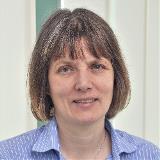
E. Sally Ward, PhD, Director, Translational Immunology; Professor, Molecular Immunology, Centre for Cancer Immunology, University of Southampton

Sally Ward completed her PhD research in the Department of Biochemistry at Cambridge University in 1985 under the mentorship of Professor David Ellar. From 1988 to 1990, she carried out research on antibody repertoire technology in Sir Greg Winter’s laboratory at the MRC Laboratory of Molecular Biology in Cambridge. In 1990 she joined the University of Texas Southwestern Medical Center, Dallas, as an Assistant Professor. From 2002-2014, she was a Professor in the Department of Immunology at the same institution and in 2004 was appointed to the Paul and Betty Meek-FINA Professorship in Molecular Immunology. Since 2014, she has been a Professor at Texas A&M University Health Science Center, and has recently been appointed as Director of Translational Immunology and Professor of Molecular Immunology at the Centre for Cancer Immunology in Southampton, U.K. In 2010, she was a founding co-organizer of the Gordon Research Conference ‘Antibody Biology and Engineering’. She is currently vice president of the Antibody Society. Her interdisciplinary research involves the use of a combination of fluorescence imaging, protein engineering and in vivo studies to develop antibody-based therapeutics to treat cancer and autoimmunity.

Stefan Warmuth, PhD, CTO, Technology & CMC, Numab Therapeutics AG

Stefan is responsible for the CMC activities at Numab including protein engineering, analytics, and formulation, USP and DSP development. In his role as project lead, he further managed Numab’s lead program ND021 until FIM. Before joining Numab in 2015, Stefan worked in the pharmaceutical development at CSL Behring, focusing on process development and optimization to support clinical production and up-scaling. Stefan studied biochemistry in Tübingen and Zurich and graduated with a degree in Biochemistry from the ETH Zurich and obtained his PhD in Structural Biology and Biochemistry from the University of Zurich.

Paul Wassmann, PhD, Senior Principal Scientist, Biologics Research Center, Novartis

Paul Wassmann, Ph.D., Senior Principal Scientist, NIBR Biologics Center (NBC), Novartis Pharma AG, Switzerland Analytical technology and strategy lead for NBEs at the Characterization/ Formulation/ Bioinformatics unit (CFB). This role includes evaluation and coordination of implementation of appropriate innovative and strategic concepts in analytical space for challenging and completely new Biologics modalities with main focus on liabilities evaluation of Biologics molecules and their developability assessment. Prior industry experience includes Project management for Biosimilar projects at Solvias AG, Switzerland, and Scientific role in Antibody Engineering and Analytics departments at Glenmark SA, Switzerland. Holds a doctorate in Structural Biology from Biozentrum Basel, Switzerland.
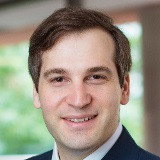
Kipp Weiskopf, MD, PhD, Whitehead Fellow, Whitehead Institute for Biomedical Research

Kipp Weiskopf, M.D., PhD, is a Valhalla Fellow at Whitehead Institute for Biomedical Research in Cambridge, MA. He is a leader in the field of macrophage-directed therapies and oversees a research laboratory that studies novel macrophage and myeloid immune checkpoints for the treatment of cancer. Dr. Weiskopf is concurrently appointed as a Hematology and Oncology fellow at Dana-Farber Cancer Institute in Boston, MA. Dr. Weiskopf earned his medical and graduate degrees at Stanford University. As a member of Dr. Irving Weissman’s laboratory, he characterized the CD47/SIRPa interaction as an immune checkpoint that regulates macrophages in cancer. He engineered therapies that stimulate macrophages to attack tumors and showed these could be effective for many types of cancer. Dr. Weiskopf is an inventor on over 15 U.S. patents pertaining to macrophage-directed therapies. He co-founded ALX Oncology, a biotech company that is investigating macrophage-directed therapies in multiple Phase I and II trials for cancer. Other technology that Dr. Weiskopf invented has been licensed to Forty Seven, Inc. (acquired by Gilead). More recently, he co-founded DEM Biopharma to identify novel “don’t eat me” signals that can be targeted for cancer and other life-threatening diseases. Dr. Weiskopf completed his medical training in the Internal Medicine Residency Program at Brigham and Women’s Hospital and is board certified in Internal Medicine. He has previously been awarded a Winston Churchill Scholarship, an NCI Ruth L. Kirschstein NRSA Fellowship, the Harold M. Weintraub Graduate Student Award, and first place in the Collegiate Inventors Competition. Dr. Weiskopf previously earned a B.A. from Amherst College and an M.Phil. in genetics from University of Cambridge.

David Weiss, Sr. Director Marketing & Product, Marketing, Telesis Bio -

David Weiss is the Director of Marketing and Product at Telesis Bio where he is focused on bringing cutting edge synthetic biology technologies, such as Gibson SOLA Enzymatic DNA Synthesis, to the market to revolutionize the way in which researchers are able to achieve their development goals. With over 20 years in the genomic and synthetic biology markets, he leverages his expertise to drive strategic growth and foster partnerships that propel advancements in diagnostic and therapeutic development. With a proven track record including successfully guiding customers through the complexities of developing cutting-edge diagnostics and therapies, he is able to ensure that innovative solutions are not only conceptualized but also effectively brought to market.
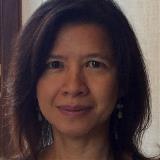
Maria Wendt, PhD, Global Head (VP) of Digital and Biologics Strategy and Innovation, Large Molecule Research, Novel Modalities, Synthetic Biology and AI, Sanofi

No bio available.
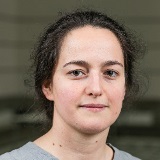
Sarah Westarp, Group Lead, Applied Biocatalysis, Bioprocess Engineering, Technische University Berlin

I studied biotechnology at Technische Universität Berlin, earning my diploma in 2018. After graduation, I joined the industry, working at BioNukleo GmbH in Berlin-a company focused on developing biocatalytic processes for pharmaceutically relevant nucleoside and nucleotide analogues. My work there centered on optimizing nucleoside synthesis, as well as protein production, purification, and process scale-up. Alongside my industrial work, I began my doctoral research at the TU Berlin, applying our understanding of the thermodynamic behavior of enzymatic transglycosylation reactions to enable the synthesis of novel nucleoside analogues. I completed my doctorate in 2024 and returned to academia to explore open questions related to optimized enzyme expression and reaction engineering. Currently, I lead the Applied Biocatalysis Group at the Chair of Bioprocess Engineering, under the supervision of Professor Peter Neubauer at Technische Universität Berlin.
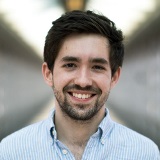
Jeremy Wohlwend, PhD, CTO, Boltz

Jeremy is a recent PhD graduate from MIT, advised by Regina Barzilay. Jeremy's research focuses on biomolecuar modeling and applications in immunology. Jeremy is one of the authors of Boltz-1 and Boltz-2, leading open-source models for structure and binding affinity prediction.
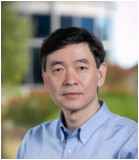
Jiansheng Wu, Senior VP and Head of CRO Services, CRO Services, WuXi Biologics USA LLC

Dr. Jiansheng Wu is the Head of CRO Services and Senior Vice President at WuXi Biologics. With vast experience and expertise in protein sciences, he has been instrumental in establishing global protein production facilities and developing cutting-edge technologies. Having participated in over 50 drug development projects, Dr. Wu is a leading authority in automated expression, purification, and characterization of diverse proteins. Previously at Genentech for 15 years, he made significant contributions to innovative protein expression and purification technologies.
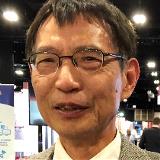
Kevin Zen, PhD, Principal Consultant, Biologics CMC Consulting

Kevin is a passionate, committed CMC subject matter expert, developing biologics to help patients and serving biotech community by teaching CMC-related training courses. Kevin has served leadership positions developing therapeutic biological products at AbbVie, AnaptysBio, Catalent Biopharma Solutions (CDMO), IGM Biosciences and Opthea. Kevin not only has in-depth expertise in Analytical Development but also has broad experience in Biologics CMC operation. In the past decades, he has successfully managed many biological drug candidates from early development to commercial. In addition to developing therapeutic biological products in-house, Kevin also had extensive experience working with external CDMO and CRO, including production cell line development, bioprocess development, DS/DP cGMP manufacturing, process characterization, process performance qualification (PPQ), formulation development by DoE, analytical procedure development and validation, reference standard qualification, extended characterization, and CMC analytical comparability.
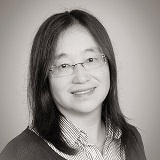
Yingnan Zhang, PhD, Senior Principal Scientific Manager, Biological Chemistry, Genentech, Inc.

Yingnan Zhang, PhD in Biochemistry, is a Senior Principal Scientific Manager at Genentech. She got her Ph.D in the field of enzymology and glycobiology from University of Miami, FL mentored by Dr. Keith Brew. She joined Genentech as a postdoc mentored by Dr. Sachdev Sidhu. She has been involved in many projects with phage display as technology platform during her career at Genentech. These include: generating specificity map for PDZ domain family; discovery of Dvl antagonist for Wnt signaling pathway regulation, identification of specific peptide inhibitors to proteases, e.g. BACE1 and caspase 6; engineering ubiquitin to specific inhibitor of DUB by exploring conformation diversity of ubiquitin; identification of peptide antagonists against PCSK9, and development of drug discovery platform with Disulfide Constrained Peptides (DCP) and Venom scaffolds. She has led the lab focusing on diversity display by phage and yeast surface at Department of Biological Chemistry/Early Discovery Biochemistry in Genentech for 16 years.
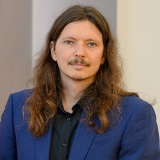
Stefan Zielonka, PhD, Senior Director, Antibody Discovery and Protein Engineering, Merck Healthcare KGaA & Professor of Biomolecular Immunotherapy, Technische Universität Darmstadt

Stefan works as Senior Director at Merck Healthcare KGaA (EMD Serono), Germany, where he heads Global Antibody Discovery and Protein Engineering (ADPE). He holds a PhD in chemistry as well as a habilitation in biochemistry. In addition, he is Professor of Biomolecular Immunotherapy at Technical University of Darmstadt.
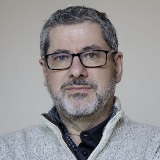
Luis da Cruz, PhD, Vice President, Research, Kisoji Biotechnology Inc.

Luis da Cruz is Vice President of Research at KisoJi Biotechnology, where he oversees preclinical development across the company’s therapeutic pipeline. Since joining KisoJi in 2016, he has played a central role in building and advancing the company’s proprietary platforms for single domain antibody discovery (KisoMouse and KisoSeek) and for multispecific antibody generation (KisoBody). Luis brings deep expertise in antibody and biomarker development, gained through research roles spanning both biotech startups and global pharmaceutical companies. He has led and contributed to multiple preclinical programs and clinical-stage efforts at Arius Research, Roche Pharma, Astellas/Agensys (focused on ADCs), and Boehringer Ingelheim (as a Clinical Scientist). Luis holds a PhD in Protein Biochemistry from the University of Coimbra in Portugal and completed postdoctoral training in B-cell development and immunodeficiency at the Samuel Lunenfeld Research Institute in Toronto, Canada.
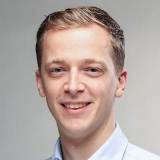
Jurrian de Kanter, PhD, Data Scientist, Genmab

Jurrian is a data scientist specializing in in-silico antibody design at Genmab. With a background in bioinformatics and data science, he focuses on leveraging antibody sequences, structures, and computational tools to enhance AI-driven predictions of antibody characteristics. During his PhD at the Prinses Máxima Centrum, he applied single-cell whole-genome sequencing to investigate chemotherapy-induced mutations and their role in secondary cancer development. Now, he integrates structural biology and machine learning to generate data that improve antibody engineering approaches.
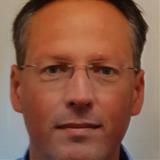
Hans van der Vliet, MD, PhD, CSO, Lava Therapeutics

Hans van der Vliet, MD, PhD is scientific founder and CSO of Lava Therapeutics, a biotech company that develops proprietary V?9Vd2 T-cell engagers, and a medical oncologist and professor at the department of medical oncology of the Amsterdam UMC, Cancer Center Amsterdam.
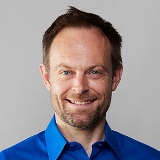
Johannes vom Berg, PhD, CSO, InCephalo Therapeutics AG; Group Leader Immunotherapy, Lab Animal Science, University of Zurich

Johannes vom Berg is a group leader at the Institute of Laboratory Animal Science (LTK), University of Zurich, Switzerland since 2019. Before that, his main occupation was to direct the LTK transgenic mouse core facility of the University of Zurich from 2014-2018. He studied biology and molecular medicine at University of Freiburg in Breisgau and at the Max Planck Institute for Immunobiology and Epigenetics in Freiburg, Germany with a research stay at the University of Calgary, Canada. Johannes received his PhD from the Institute of Experimental Immunology at the University of Zurich, Switzerland in 2012 where he also worked as a postdoctoral fellow before joining LTK. For his work on the inflammatory aspects of Alzheimer’s disease and immunotherapy of brain cancer he received the best Phd Award 2012 from the Neuroscience Center Zurich and the Herbert Fischer Postdoctoral Price 2014 from the German Society for Immunology. His main research interest is in neuroimmunology, with a focus on local combination immunotherapy of brain tumors and local delivery of biologics. A second research interest revolves around basic immunological studies towards immunotherapy of cancer for companion dogs. His laboratory combines immunology, protein and genetic engineering and various in vivo and ex vivo techniques. Since 2022, he is also working as the CSO of InCephalo Therapeutics, a UZH spin-off developing local immunotherapy approaches for brain cancer.
講演者・スポンサー更新
講演者・スポンサー更新
イベント情報更新
会議プログラム
工学ストリーム
ターゲットストリーム
二重特異性ストリーム
免疫療法ストリーム
分析法ストリーム
- Optimisation & Developability
最適化・開発可能性 - Analytical Characterisation
分析法の特性評価 - Protein Stability & Formulation
タンパク質の安定性・剤形

